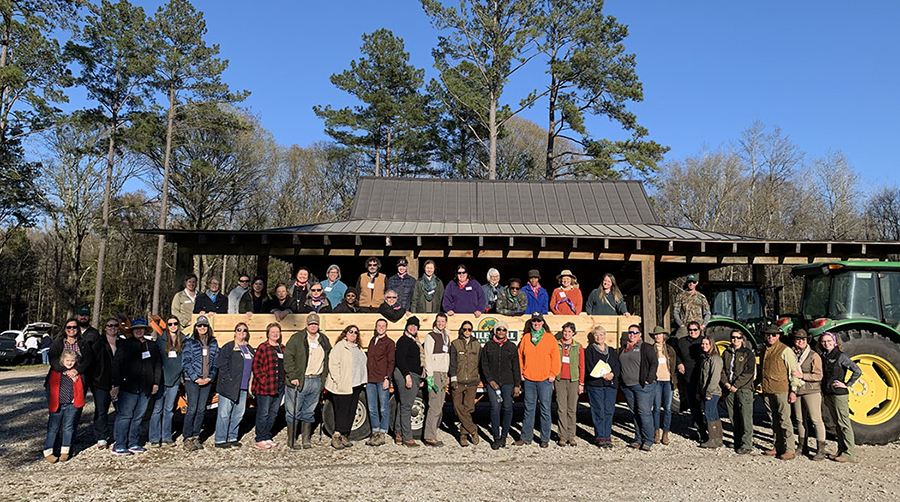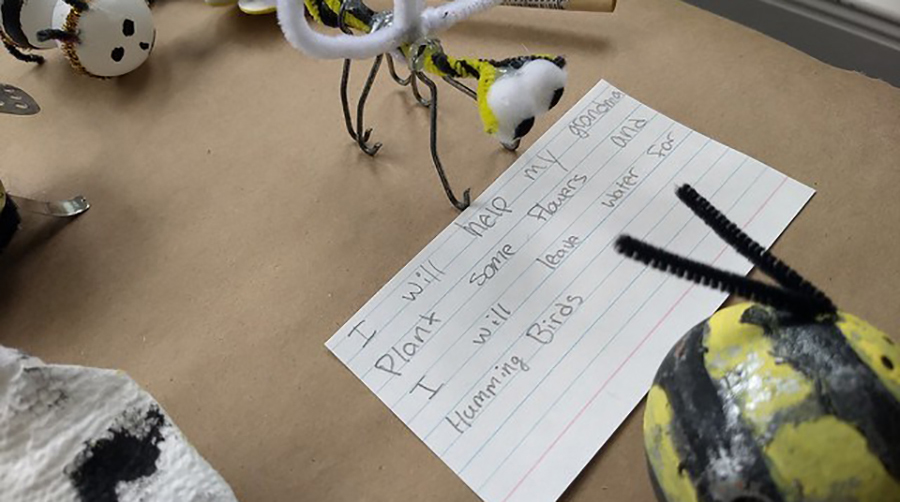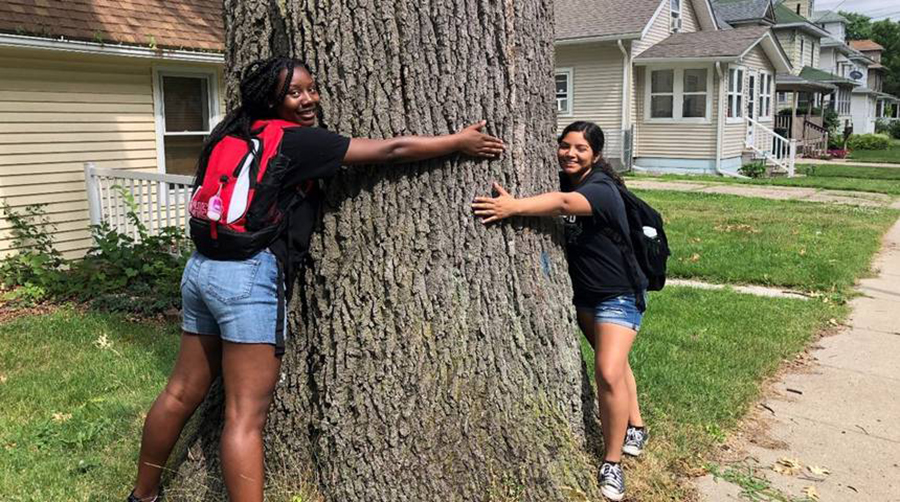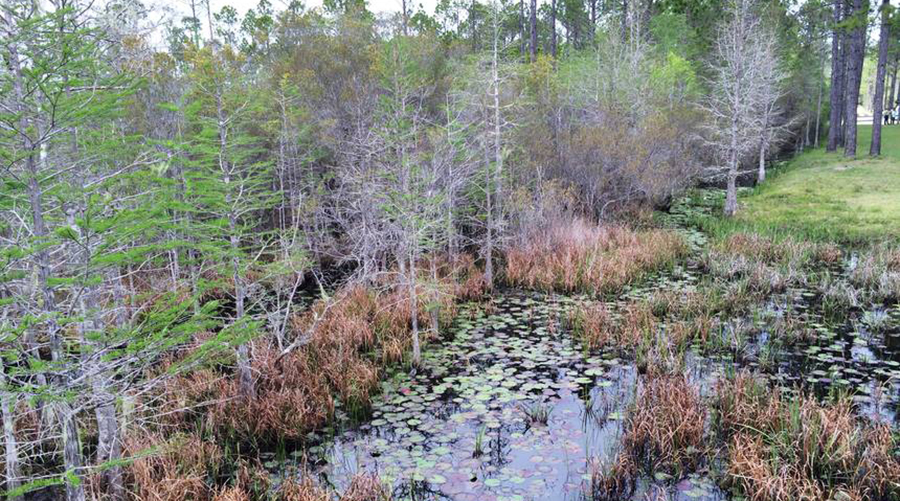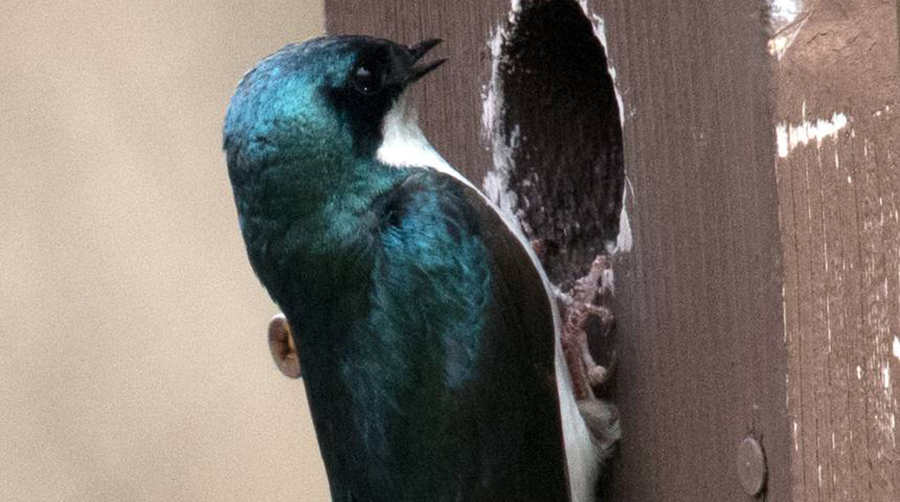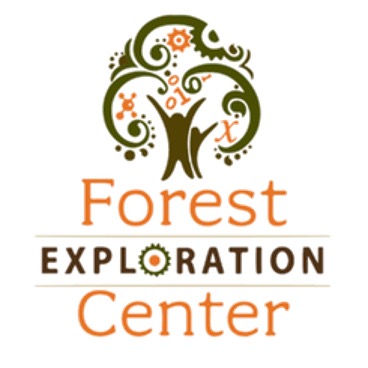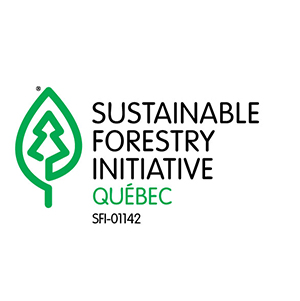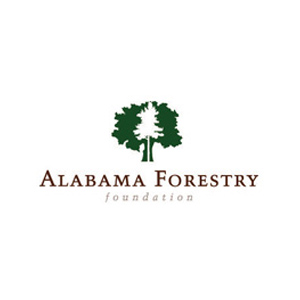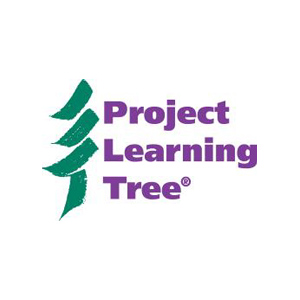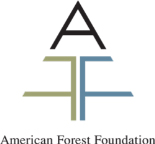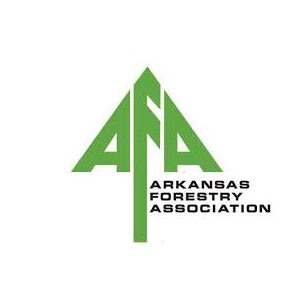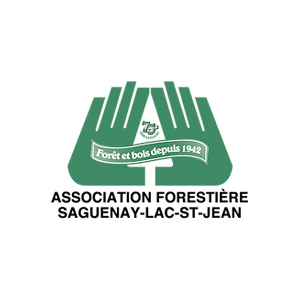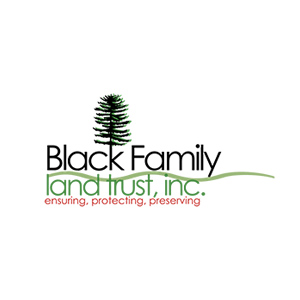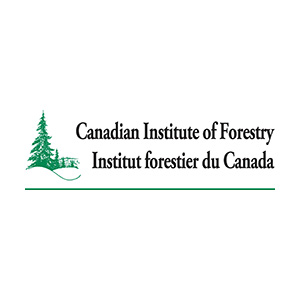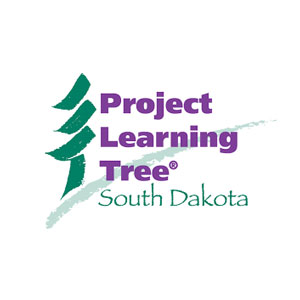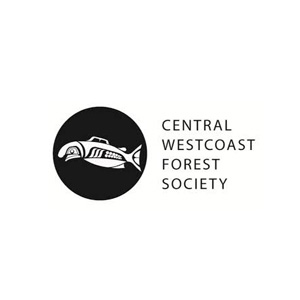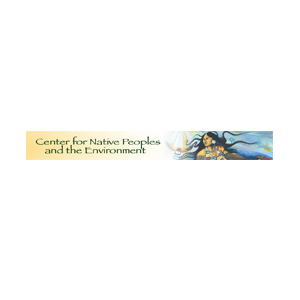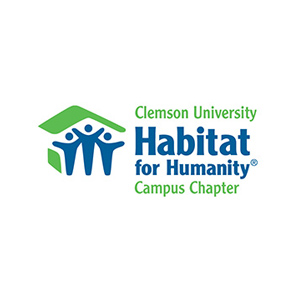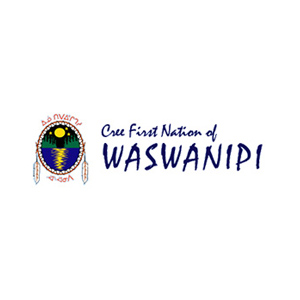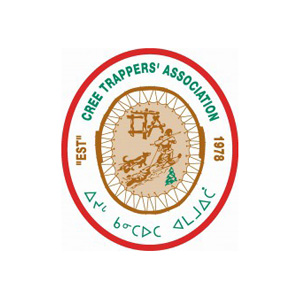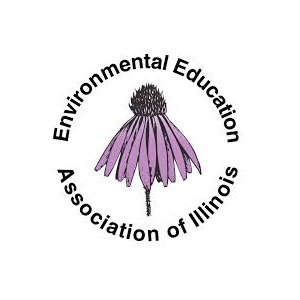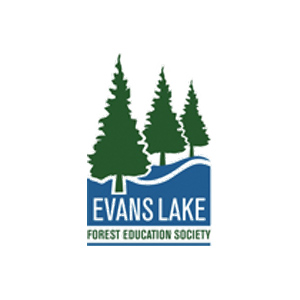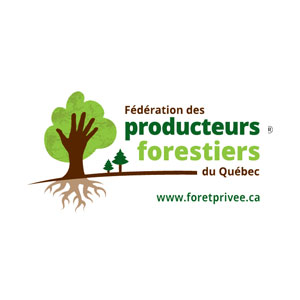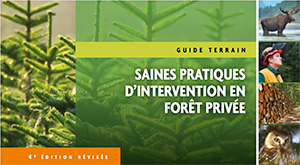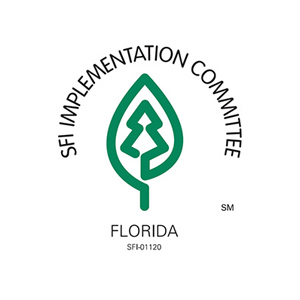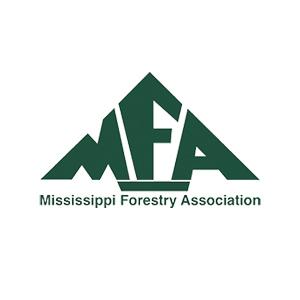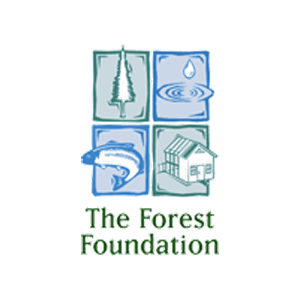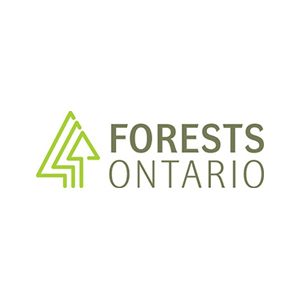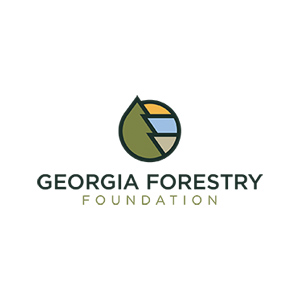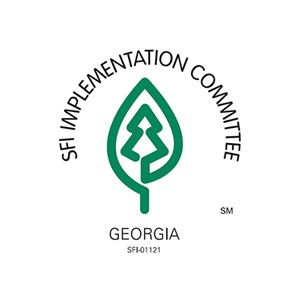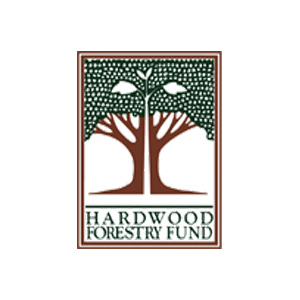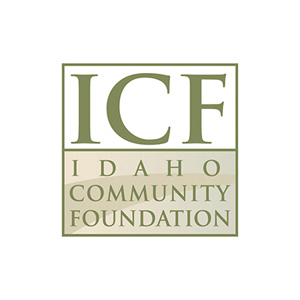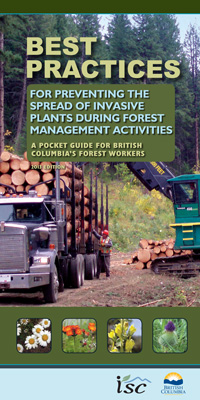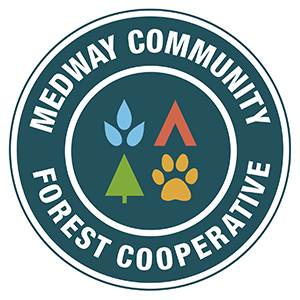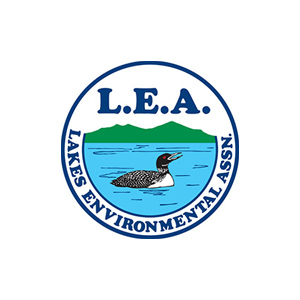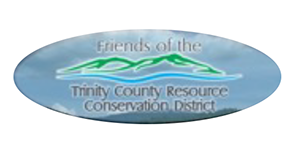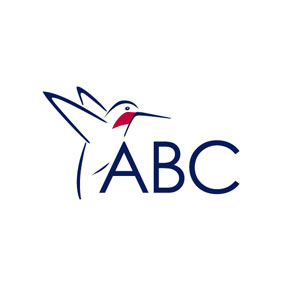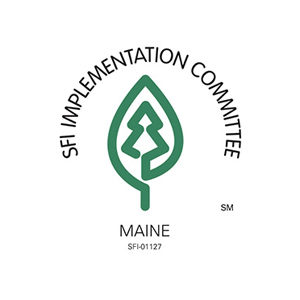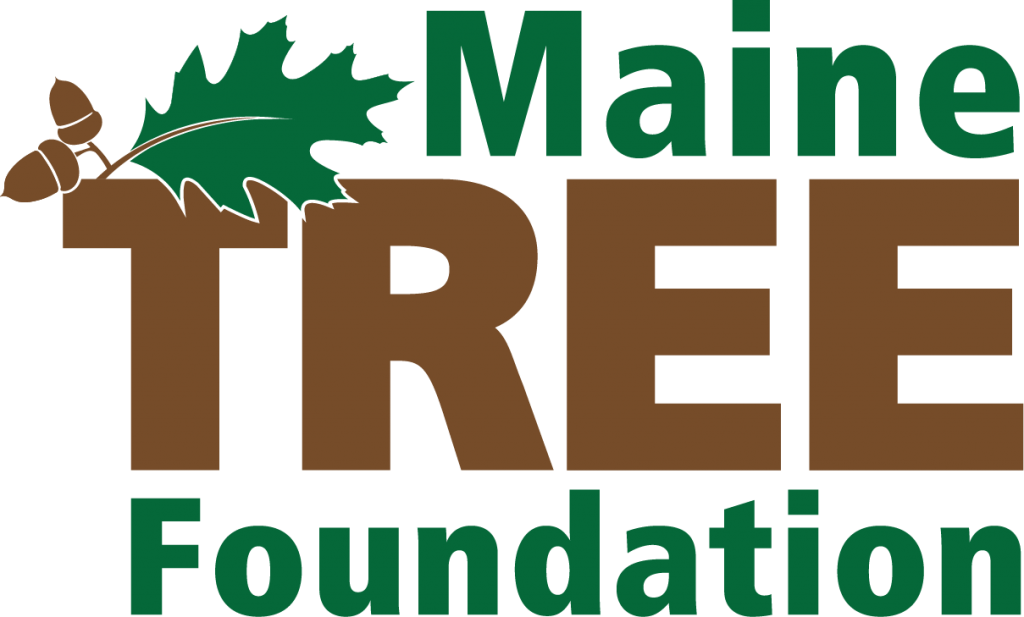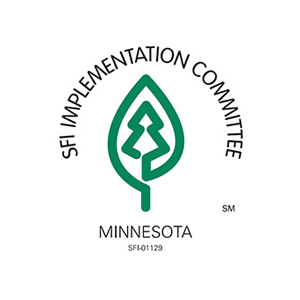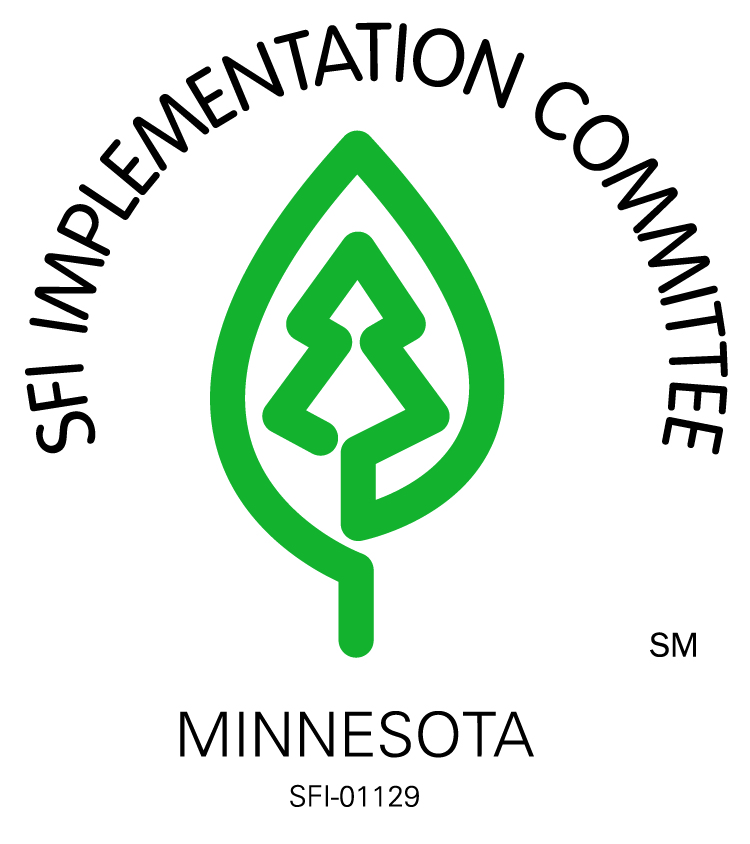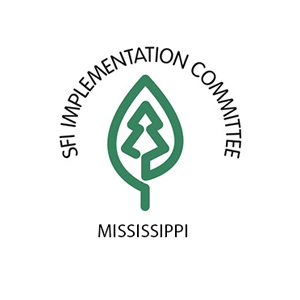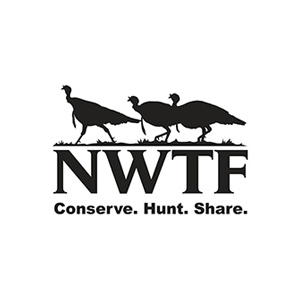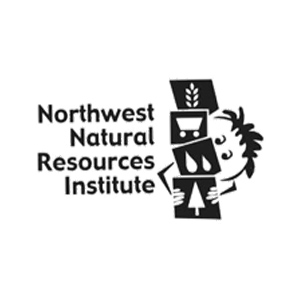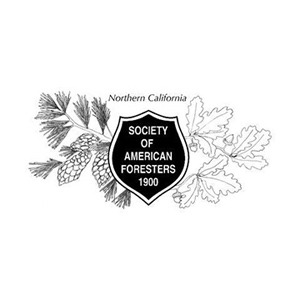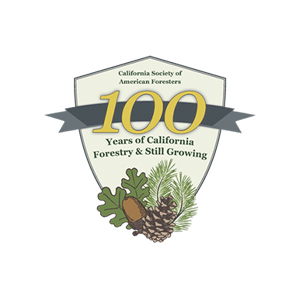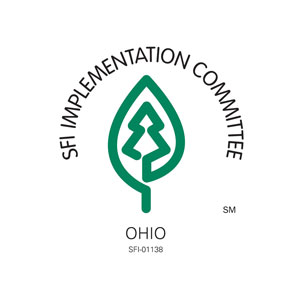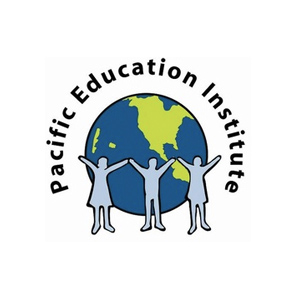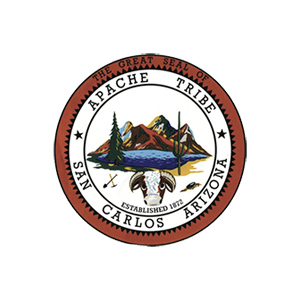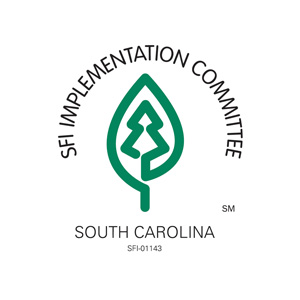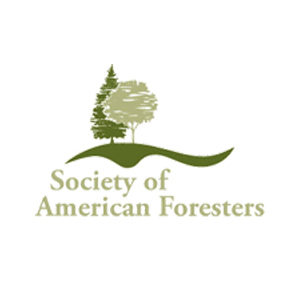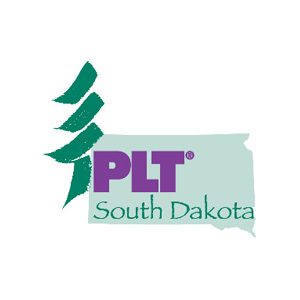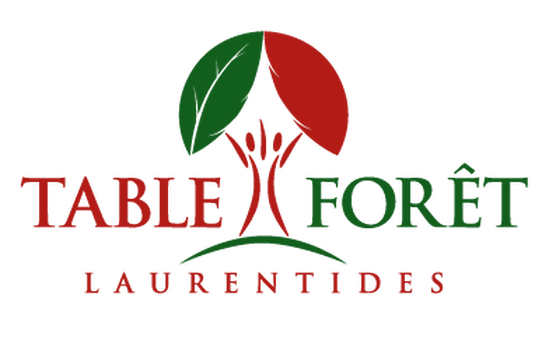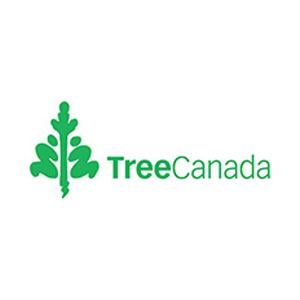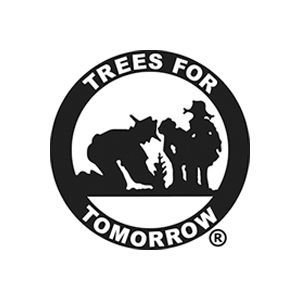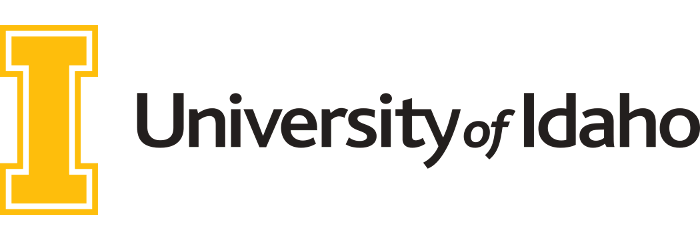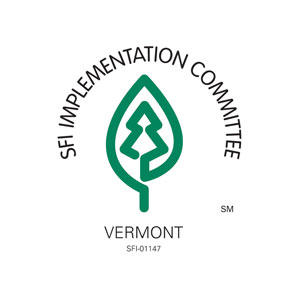EXEMPLES DE SUBVENTIONS COMMUNAUTAIRES
SFI collabore avec des femmes qui changent l’image des propriétaires forestiers
Les services de vulgarisation coopératifs de l’Université Clemson collaborent avec d’autres organismes et des entreprises de gestion des ressources naturelles appartenant à des femmes pour organiser des ateliers d’information à l’intention des femmes propriétaires forestières de Caroline du Sud.
Les forêts aident à surmonter les crises de santé publique dans les environs de Chicago
Saviez-vous qu’aux États-Unis et au Canada, les enfants passent plus de temps à l’intérieur que toutes les générations précédentes? On étudie encore les effets à long terme du « trouble du déficit de nature » des enfants nord-américains, mais l’on sait d’ores et déjà que le temps passé dehors favorise le développement physique et mental.
Des élèves du niveau secondaire tracent l’avenir des forêts à l’Université d’État du Michigan
L’aménagement forestier durable est un outil important pour assurer la santé de la planète et la prospérité mondiale qui est notre objectif commun. Or, malgré le besoin énorme de futurs chefs de file de la foresterie durable, bien des jeunes souhaitant poursuivre des études dans le domaine rencontrent des obstacles difficiles à surmonter. Le Programme multiculturel d’apprentissage de l’Université d’État du Michigan cherche à changer cela.
La foresterie durable peut aider à perpétuer l’héritage des propriétaires terriens afro-américain
Alors que nous nous apprêtons à célébrer le Mois de l’histoire afro-américaine, il importe de souligner une partie moins connue de cette histoire – l’héritage de la propriété de forêts parmi la communauté noire, et les chefs de file qui travaillent à le préserver.
L’Université Cornell rejoint les enfants avec des ateliers de construction de cabanes à oiseaux
Le Laboratoire d’ornithologie de l’Université Cornell est un chef de file mondial de l’étude, de l’appréciation et de la conservation des oiseaux. Mais les vastes possibilités éducatives qu’il offre ne sont pas réservées qu’aux seuls élèves des écoles réputées. Elles comprennent des programmes destinés aux jeunes, aux familles et aux collectivités locales et leur permettant de participer à des activités d’apprentissage pratique qui bénéficient aux oiseaux et à l’environnement.
Des arbres et des dindons : un partenariat fructueux
À l’Action de grâce, SFI et la Fédération nationale pour le dindon sauvage (en anglais : National Wild Turkey Federation, ou NWTF) des États-Unis ont rendu grâce pour une autre année de collaboration fructueuse dans la poursuite de buts communs : des forêts bien aménagées, la conservation de la faune, la protection des habitats et des possibilités de loisirs sur les terres publiques.
SUBVENTIONS PAR CATÉGORIES
Subventions communautaires de SFI
CENTRE D’EXPLORATION FORESTIÈRE
Introduction immersive aux emplois verts le long d’un sentier forestier accessible
Découvrir les carrières en foresterie et en conservation… en forêt!
Pourquoi ce projet est important
Un tiers de la main-d’œuvre du secteur forestier partira à la retraite au cours de la prochaine décennie. Or, il est essentiel de motiver les jeunes à poursuivre un parcours de carrière verte, car notre santé et notre bien-être dépendent en définitive de la diversité des professions qui assurent le maintien d’un monde naturel en santé, productif et durable pour nous tous. Le secteur de la forêt et de la conservation a aussi échoué à attirer et à retenir des professionnels noirs américains. Une récente enquête du Bureau du recensement des États-Unis a révélé que moins de 3 % des forestiers et des spécialistes de la conservation s’identifiaient comme Afro-Américains.
Le Centre d’exploration forestière est situé au cœur du plus grand district scolaire de l’État du Wisconsin et est au service de quelque 75 000 élèves répartis dans plus de 150 écoles. Nombre de ces écoles et de ces élèves n’ont pas accès à des espaces verts ni de moyens financiers suffisants pour fournir le transport nécessaire à des excursions. Le Centre est une ressource importante qui permet aux élèves de Milwaukee (dont 54 % sont Afro-Américains) d’avoir des liens avec les forêts locales, de créer des expériences en plein air enrichissantes, d’apprendre sur l’aménagement forestier et de découvrir de futurs cheminements de carrière verte.
Comment le projet relie les écoles aux forêts durables, fait de l’éducation forestière et inspire des emplois verts
Le projet de parcours d’exposition sur les emplois verts immerge les élèves et les enseignants de Milwaukee dans la nature, inspire la bonne gestion et montre que les carrières en foresterie sont un choix valable, enrichissant et viable pour les élèves vivant dans le centre urbain du Wisconsin.
Le projet s’appuiera sur l’activité « Qui travaille dans cette forêt » décrite dans le document Emplois verts – Exploration de carrières forestières d’Apprendre par les arbres et d’autres activités d’éducation forestière, en créant des stations d’exposition pratiques et intéressantes le long d’un sentier forestier accessible qui met en évidence la foresterie durable ainsi que les cheminements de carrière et professions vertes dans le secteur forestier. Il comprendra un volet autoguidé permettant de rencontrer virtuellement des personnes qui travaillent en forêt ou pour la forêt par le biais d’une expérience multimédia à laquelle les visiteurs pourront accéder en scannant des codes QR avec leur téléphone cellulaire.
Le sentier en boucle d’un kilomètre et demi offre un loisir intéressant pour tous et soutient l’auto-exploration et la découverte par les élèves sous l’ombrage du couvert forestier. Il a été conçu et construit selon les exigences de la loi des États-Unis sur les personnes handicapées concernant la circulation en fauteuil roulant, avec une poussette et à pied. Le long du sentier seront installées des stations d’exposition didactiques de conception professionnelle visant à approfondir la compréhension de la forêt, dont une série unique de douze stations d’exposition autoguidée et d’activités portant sur les carrières et huit autres, pratiques et intéressantes, sur la façon de gérer et de surveiller la santé de la forêt.
Contribution de la SFI
Le Programme de subventions communautaires de la SFI soutient le projet en tirant parti du réseau local de professionnels en foresterie et d’organisations forestières du Comité SFI de l’État et en créant un réseau régional d’expertise et de possibilités de réseautage liées aux carrières vertes. Le réseau d’APLA Wisconsin relie le projet aux ressources et programmes régionaux d’éducation environnementale d’APLA.
Partenaires
Le projet regroupe la section d’APLA de l’État et des partenaires du Comité SFI ainsi que des universitaires et des professionnels de l’État dans le domaine des ressources naturelles.
- Responsable du projet : Programme d’éducation forestière de la maternelle à la 12e année de LEAF Wisconsin
- SFI
- APLA Wisconsin
- Comité SFI Wisconsin
- Division des forêts du Département des ressources naturelles du Wisconsin

À propos du Centre d’exploration forestière
Le Centre est un organisme à but non lucratif qui se consacre à la foresterie durable, à l’éducation et aux loisirs accessibles. En créant des occasions intéressantes d’approfondir la compréhension de l’écologie forestière et de l’aménagement forestier durable, le Centre mobilise la collectivité et encourage la bonne gestion des forêts locales.
ÉCOLE D’ARCHITECTURE DE L’UNIVERSITÉ DE MIAMI
La forêt : une question de carbone
Aider les étudiants en architecture à voir et comprendre les avantages climatiques de choisir des matériaux de construction provenant de forêts aménagées de manière écologiquement soutenable
Pourquoi ce projet est important
De nombreux étudiants en architecture ont une compréhension limitée des avantages environnementaux de l’utilisation de matériaux de construction issus de la forêt. Cela peut les conduire à choisir des produits de construction à plus forte intensité de carbone pour leurs projets de conception après l’obtention de leur diplôme. Ce projet a pour but d’informer les étudiants en architecture des avantages climatiques du choix de matériaux de construction provenant de forêts aménagées de manière écologiquement soutenable. L’accent sera également mis sur la sensibilisation des étudiants à aux nombreux aspects de la production et de la séquestration du carbone.
Comment ce projet invite les étudiants en architecture à saisir et comprendre les avantages de la construction avec des produits forestiers durables
La méthodologie de base de ce projet est d’une grande simplicité : les étudiants quitteront pour quelques heures leur salle de classe pour une série d’activités de terrain. Ils visiteront une forêt aménagée de manière écologiquement soutenable. Ils participeront à la récolte du bois. Ils visiteront également des scieries et des usines de fabrication de bois lamellé-croisé (CLT) afin d’apprendre de première main l’intérêt de choisir des produits forestiers dans leurs travaux de conception. En outre, les étudiants rencontreront des professionnels de l’aménagement du territoire et de la gestion des ressources hydriques à travers le sud-est des États-Unis afin d’apprendre l’importance de la foresterie durable pour la conservation des habitats et d’autres valeurs écologiques clés comme la protection des réserves d’eau potable. Les étudiants verront également de leurs propres yeux le fonctionnement d’une chaîne d’approvisionnement de produits forestiers durables et l’influence grandissante des nouveaux produits forestiers, tels que le bois massif, sur la conception des bâtiments.
Après avoir participé à une charrette de design immersive en forêt, les étudiants seront en mesure d’établir et d’estimer la séquestration du carbone dans une forêt en exploitation. L’accent sera mis sur la reconnaissance et la définition de termes d’usage courant dans le domaine, y compris « puits de carbone », « production de carbone », « stockage de carbone » et « séquestration de carbone ». Les résultats mesurables seront déterminés par une série d’exercices au cours desquels les étudiants planifieront une série de scénarios de forêts en exploitation afin de comprendre l’influence de diverses activités sur la relation entre le carbone et les forêts aménagées durablement.
Contribution de SFI
Le programme de subventions communautaires de la SFI soutient ce projet. Les étudiants travailleront également dans des forêts certifiées SFI sous la direction de représentants d’entreprises certifiées SFI. Les produits certifiés SFI et le processus de certification seront également étudiés pour amener les étudiants à mieux comprendre la durabilité dans la construction et l’importance de spécifier des matériaux de construction en bois certifié dans leurs projets futurs. SmartLam North America, une entreprise certifiée SFI, accompagnera les étudiants dans la conception et la production d’un prototype en bois de masse utilisant du « CLT ».
Contribution du projet aux engagements communautaires de SFI
Le rapprochement des étudiants en architecture, des professionnels de la conception, des forestiers et des fabricants de bois a pour but de sensibiliser les futurs concepteurs, décideurs et constructeurs aux nombreux avantages du bois certifié SFI. Ces relations serviront également à renforcer les liens entre les entreprises certifiées SFI et la communauté des architectes de Floride. Le Comité de mise en œuvre des normes SFI de Floride servira également d’intermédiaire entre l’école d’architecture de Miami et le réseau SFI élargi.
Partenaires
Ce partenariat réunit du personnel enseignant, des architectes, des professionnels des ressources naturelles et des organisations certifiées SFI.
- Chef de projet : University of Miami School of Architecture
- Sustainable forestry Initiative
- Comité de mise en œuvre des normes SFI de la Floride
- Florida Forestry Association
- Atelier May
Informations connexes
University of Idaho—Demonstrating Benefits of SFI-Certified Wood in a Mass Timber Arena

À propos de l’École d’architecture de l’Université de Miami
La philosophie de l’école d’architecture de l’université de Miami est de construire un monde meilleur. Elle s’exprime par un programme de conception à la fois idéal et pragmatique, académique et pratique, théorique et réel. L’école forme des praticiens visionnaires qui considèrent l’architecture comme une combinaison d’art civique et de science du bâtiment. L’école compte actuellement plus de 504 étudiants, dont 374 étudiants de premier cycle et 130 étudiants diplômés. Environ 60 professeurs à temps plein et à temps partiel, ainsi qu’un personnel professionnel de 20 personnes, participent activement à la formation et au soutien des étudiants. Plus de 50 % des étudiants de l’école participent à des programmes d’études à l’étranger basés en Europe, en Asie, dans les Antilles et en Amérique latine. Pour en savoir plus.
INSTITUT D’ÉDUCATION DU PACIFIQUE
Expériences et formation en foresterie à l’intention des enseignants et des responsables communautaires
Des expériences de terrain où l’éducation forestière prend vie
Pourquoi ce projet est important
Les forêts couvrent plus de 31 % des terres émergées de la planète, mais elles ne sont pas réparties également, et les collectivités n’en jouissent pas toutes. Quoi qu’il en soit, les forêts constituent l’un de nos plus puissants outils pour atténuer les changements climatiques et offrent des solutions à nombre des plus importants défis de développement durable du monde. Des changements climatiques à la qualité de l’eau en passant par la biodiversité, les forêts bien aménagées offrent des solutions viables pour obtenir des résultats sur les plans social et environnemental. Il est important que différents groupes de personnes comprennent les valeurs et les bienfaits des forêts. L’éducation forestière permet aux gens de continuer à bénéficier des forêts et d’acquérir les outils et les connaissances dont ils ont besoin pour faire en sorte qu’elles soient durables à long terme.
Avec l’appui de partenaires, dont la SFI et Apprendre par les arbres (APLA), PEI concevra et offrira une expérience d’apprentissage professionnel de deux jours en foresterie pour les enseignants de la maternelle à la 12e année et les collaborateurs des collectivités forestières. La première journée comprendra une visite en forêt animée par l’Association des fermes forestières de l’État de Washington et le Programme d’éducation permanente en foresterie de l’Université de l’État de Washington, qui portera plus particulièrement sur l’aménagement forestier et les emplois verts. Les expériences sur le terrain auront lieu sur de petites parcelles de forêts privées et de fermes forestières, dans une scierie locale de la société Weyerhaeuser et sur un terrain forestier aménagé par l’État. La seconde journée de l’expérience comprendra un atelier de découverte des ressources du PEI et d’APLA. Les participants auront la possibilité d’échanger avec des partenaires communautaires et apprendront de nouvelles méthodes pour intégrer l’éducation forestière localement pertinente dans leur pratique d’enseignement.
Comment le projet relie les écoles aux forêts durables, répand l’éducation forestière et inspire les emplois verts
Le projet encouragera la collaboration entre les collectivités locales et le réseau de la SFI pour accroître la compréhension mutuelle des valeurs et des bienfaits que procurent les forêts aménagées durablement. Le fait de visiter des forêts avec de petits propriétaires forestiers et d’être exposé à une éducation forestière et une formation professionnelles destinées aux enseignants offre un solide cadre d’expérience personnelle. En motivant les enseignants à s’engager et à s’informer au sujet de l’aménagement durable des forêts de leur région, le projet encourage l’éducation forestière et aide indirectement à soutenir la prochaine génération de consommateurs verts et de futurs chefs de file de la durabilité.
Le projet relie des districts scolaires dont la clientèle est issue de collectivités rurales et éloignées qui sont historiquement défavorisées et sous-représentées. Il présente aux jeunes les nombreuses carrières dans le secteur de la forêt et de la conservation qui s’offrent à eux dans leur collectivité locale. En montrant aux enseignants à intégrer dans leurs leçons des liens avec des carrières équitables, en plein air et localement pertinentes, différents groupes d’élèves apprendront les défis environnementaux qui se posent dans leur collectivité et comprendront les solutions potentielles et les cheminements de carrière verte à privilégier.
Contribution de la SFI
Le Programme de subventions communautaires de la SFI soutient le projet en tirant parti des réseaux du Comité SFI Washington et en reliant le projet à l’expertise du secteur forestier régional par le biais de partenariats avec des associations, des fondations, des universités et des fermes forestières. Les membres du Comité SFI
Washington seront sur les lieux pour les parties sur le terrain et en atelier afin de présenter les ressources de la SFI concernant la productivité des terres, l’aménagement forestier, la construction de chemins, la récolte du bois, la planification de legs et le rétablissement du saumon.
Partenaires
Le projet regroupe la section d’APLA et le Comité SFI de l’État ainsi que des associations et fondations partenaires, des organismes de l’État et des universitaires.
- Responsable du projet : Institut d’éducation du Pacifique (commanditaire d’APLA Washington)
- SFI
- Comité SFI Washington
- Association des fermes forestières de l’État de Washington
- Programme d’éducation permanente en foresterie de l’Université de l’État de Washington
- Ferme forestière Custer Creek
- Fondation pour les forêts familiales
- Commissaires du comté Pacific
- District scolaire de South Bend
- Weyerhaeuser (organisation certifiée SFI)
Information connexe

À propos de l’Institut d’éducation du Pacifique
L’Institut d’éducation du Pacifique (PEI) vise à promouvoir l’éducation civique et scientifique en donnant aux gens les moyens de prendre des décisions éclairées et équilibrées en vue de collectivités justes et durables. Le PEI favorise les activités scientifiques à l’extérieur, intégrées, liées aux carrières, localement pertinentes et concrètes dans les ressources d’enseignement et la formation professionnelle. En savoir plus.
MUSÉE D’ART AMÉRICAIN CRYSTAL BRIDGES
Démonstration de l’architecture écologique avec des matériaux provenant de forêts de l’Arkansas aménagées durablement
L’exposition Art With the House of Trees relie les collectivités aux forêts
Pourquoi ce projet est important
La construction traditionnelle contribue largement aux émissions de dioxyde de carbone (CO2), et le cadre bâti est responsable de près de 50 % des émissions mondiales annuelles. Les matériaux locaux provenant de forêts aménagées durablement et certifiées SFI constituent une solution de remplacement plus écologique aux matériaux de construction traditionnels comme le béton et l’acier, tout en stockant le carbone et en offrant de magnifiques espacespour vivre, apprendre et travailler. Le projet de pavillon de la firme LEVENBETTS est une exposition interactive Architecture at Home qui offre un cadre pour la contemplation, la sensibilisation communautaire et l’apprentissage par l’expérience. L’exposition vise à faire prendre conscience de la provenance des matériaux de construction et de l’avenir du design innovateur écologiquement soutenable. Les visiteurs pourront se rendre compte du grave impact environnemental et économique des bâtiments et de l’importance de rendre plus accessible l’habitation écologique. Le pavillon et l’espace d’exposition offriront un cadre innovateur et invitant pour des événements communautaires, comme des programmes de Project Learning Tree, qui font de l’éducation forestière et qui font prendre conscience des nombreux bienfaits des forêts dans les collectivités urbaines et rurales.
Comment le projet relie les collectivités aux forêts locales et met en évidence les bâtiments écologiques
Gratuit et ouvert à tous, le Musée permettra aux visiteurs de voir et de toucher des designs innovateurs fabriqués à partir d’arbres locaux et d’apprendre au sujet des pratiques forestières et des produits forestiers durables. En mettant en valeur des produits en bois provenant des forêts régionales, le projet fait des liens directs avec la forêt par le biais d’objets concrets et de l’expérience et souligne que les maisons écologiques commencent par des forêts en santé. Le pavillon lui-même illustre de quelle façon l’architecture, le génie et la construction sont profondément liés au continuum de bienfaits que procurent les forêts régionales. Le pavillon deviendra une représentation matérielle des chaînes d’approvisionnement en produits forestiers durables et de leurs innombrables bienfaits pour les collectivités locales. Crystal Bridges espère poursuivre ces échanges avec un futur colloque à l’intention des professionnels de la foresterie et de l’architecture, afin de mettre en évidence les applications réelles et concrètes dans la construction et les designs durables à base de bois.
Contribution de la SFI
Le Programme de subventions communautaires de la SFI soutient le projet grâce à la sensibilisation que font les comités SFI auprès du milieu de l’architecture, du génie et de la construction au sujet du projet et des avantages d’employer des matériaux de construction certifiés SFI. En faisant le lien entre le projet et l’éducation environnementale et les programmes d’APLA, les visiteurs du pavillon et de l’exposition prendront connaissance des ressources en matière d’éducation forestière et d’emplois verts qui amélioreront la capacité du Musée d’atteindre les populations rurales et insuffisamment desservies.
Partenaires
Le partenariat regroupe le Musée d’art américain Crystal Bridges, la firme d’architectes LEVENBETTS, l’organisation certifiée SFI Resource Management Service et la Fondation pour l’éducation de l’Association forestière de l’Arkansas, commanditaire de PLT Arkansas.
-
- Responsable du projet : Musée d’art américain Crystal Bridges
- SFI
- LEVENBETTS
- Fondation pour l’éducation de l’Association forestière de l’Arkansas
- Resource Management Service (organisation certifiée SFI)
Information connexe

À propos de Crystal Bridges
Le Musée d’art américain Crystal Bridges a pour mission de célébrer l’esprit américain dans un cadre qui unit le pouvoir de l’art et la beauté de la nature. Fondé par la philanthrope et mécène Alice Walton, Crystal Bridges est un organisme public de bienfaisance à but non lucratif qui reçoit plus de 675 000 visiteurs par année. Inauguré en 2011, le Musée accueille gratuitement les visiteurs sur les huit kilomètres (cinq milles) de sentiers de sculpture et de promenade qui relient son parc de 49 hectares (120 acres) au centre-ville de Bentonville, en Arkansas. En savoir plus.
UNIVERSITÉ CLEMSON
Mise à l’essai de la Norme SFI de durabilité des forêts urbaines et communautaires
Collecte de données et documentation de la première forêt urbaine certifiée SFI
Pourquoi ce projet est important
En Amérique du Nord, où plus de 80 % des populations américaine et canadienne vivent dans des villes, se trouvent certains des paysages les plus urbains de la planète. Les forêts, qui constituent un élément important de ces environnements urbains, procurent nombre de bienfaits sociaux et environnementaux, dont une meilleure santé et un plus grand bien-être, un accès à des environnements d’apprentissage en plein air, des solutions aux changements climatiques, une pollution atmosphérique réduite, des températures plus fraîches et un design urbain amélioré. Malgré ces bienfaits, le couvert arboré et l’entretien des arbres varient selon les collectivités, et les citadins ne jouissent pas tous également des énormes bienfaits qu’apportent les arbres.
Comment le projet aide à recueillir et à partager une documentation importante liée à la certification
La foresterie urbaine et communautaire suppose la planification et la gestion des forêts urbaines, parce que la santé de ces forêts exige que le bon arbre soit planté au bon endroit et de la bonne façon. Maintenant sa certification SFI depuis 2013, l’Université Clemson a fait certifier la première forêt universitaire selon la Norme d’aménagement forestier SFI et a été une pionnière en aménagement durable des arbres de son campus, y compris la forêt expérimentale Clemson de plus de 6 880 hectares (17 000 acres). Elle travaille maintenant à obtenir une certification selon la nouvelle Norme SFI de durabilité des forêts urbaines et communautaires pour les 566 hectares (1 400 acres) de forêt urbaine sur son campus et documente ses efforts d’amélioration continue. Dans le cadre du projet, l’Université créera un site Web public pour faire connaître de quelle façon elle se documente et se prépare pour une vérification par une tierce partie.
Contribution de la SFI
Le Programme de subventions communautaires de la SFI soutient l’Université Clemson en fournissant les ressources nécessaires à la collecte de données et la documentation en vue de la certification, essentielles aux futures décisions de gestion et au soutien financier de l’Université.
Partenaires
Le partenariat comprend des professeurs et des étudiants des cycles supérieurs de l’Université Clemson, des professionnels de la foresterie et une organisation certifiée SFI.
- Responsable du projet : Université Clemson
- SFI
- Comité SFI Caroline du Sud
- Commission forestière de la Caroline du Sud (organisation certifiée SFI)
Information connexe
- Subvention – Université Clemson et réseau de Women Owning Woodlands en Caroline du Sud (en anglais)
- Le Comité SFI Caroline du Sud s’associe à l’organisme WOW pour préparer les femmes à un rôle actif dans la gestion des boisés (en anglais)
- La collaboration de la SFI avec les femmes change le visage des propriétaires de boisés (en anglais)
- Le secteur des produits forestiers de la Caroline du Sud – Relier les enseignants aux forestiers (en anglais)
- L’organisme Women Owning Woodlands (en anglais)
- La SFI aide à inspirer de futurs chefs de file de la forêt en Caroline du Sud (en anglais)

À propos de Collège d’éducation permanente coopérative en Agriculture, Foresterie et Sciences de la vie de l’Université Clemson
L’Université Clemson a été créée pour concrétiser la vision de son fondateur, à savoir « haut lieu d’apprentissage » voué à la mise en valeur des « ressources matérielles de l’État » au profit des habitants de la Caroline du Sud. Nourrie par un engagement constant envers l’aménagement responsable du territoire, Clemson est devenue une université de recherche avec une vision globale. Reconnue comme étant une des universités de recherche publiques les plus productives du pays, l’Université Clemson attire et réunit des étudiants et des professeurs dont le plus grand désir est de faire une différence dans la vie des autres. L’Université Clemson s’étend sur un domaine de près de 600 hectares dans la région nord de la Caroline du Sud, avec une partie du campus reposant sur les eaux du lac Hartwell et l’autre au cœur de la forêt expérimentale de Clemson. À mi-chemin entre Atlanta, en Géorgie, et Charlotte, en Caroline du Nord, l’Université Clemson offre aux étudiants la commodité d’une petite ville avec un accès facile aux attraits des grandes villes. En savoir plus.
Subventions Communautaires de SFI
Comité SFI Québec
Formation des producteurs de bois sur l’adaptation au changement climatique
Production d’un module interactif sur le changement climatique et le rôle que jouent les forêts certifiées pour l’atténuer, à l’intention des producteurs de bois
Intérêt du projet
Le changement climatique est l’un de nos défis mondiaux les plus pressants, et les forêts aménagées de façon soutenable comptent parmi nos plus importants moyens d’y répondre. Plus de 152 millions d’hectares (375 millions d’acres) de terres forestières sont certifiés selon la norme d’aménagement forestier. Seulement au Québec, ce sont plus de 31 millions d’hectares (77,5 millions d’acres) de terres forestières certifiées SFI. Les forêts aménagées de façon soutenable à une telle échelle absorbent le carbone à des taux impressionnants, ce qui les rend essentielles dans l’atténuation des effets du changement climatique. Le projet formera les producteurs de bois québécois afin d’accroître le potentiel d’atténuation du changement climatique des forêts qu’ils aménagent.
Contribution du projet à l’implication des producteurs de bois dans l’atténuation du changement climatique
Le projet produira un module de formation interactif et convivial sur l’atténuation du changement climatique, à l’intention des producteurs de bois. L’apprentissage vidéo et en ligne sera un outil essentiel à l’implication. Le module intégrera la meilleure information disponible sur l’aménagement forestier soutenable et le changement climatique et indiquera de quelles façons les activités des travailleurs forestiers peuvent jouer un rôle dans la réduction de ses effets. Le projet comprend aussi une revue de la formation actuellement offerte par le biais du Comité SFI Québec concernant les chemins forestiers, les opérations forestières et l’aménagement forestier soutenable. Les modules de formation actuels seront revus et mis à jour conformément aux exigences des Normes et règles SFI 2022.
Contribution de SFI
Le Programme de subventions communautaires de SFI soutient le projet. SFI assure aussi la direction en ce qui a trait à la foresterie climato‑intelligente, qui guidera le projet. Les nouvelles exigences de foresterie climato-intelligente constituent l’un des faits saillants des Normes et règles SFI 2022. Les forêts jouent un rôle central dans le cycle du carbone et peuvent, lorsqu’aménagées de façon appropriée, être l’une des solutions fondées sur la nature les plus efficaces face à la crise climatique. Les organisations certifiées SFI seront dorénavant tenues de faire en sorte que leurs activités d’aménagement forestier s’accompagnent de mesures d’adaptation au changement climatique et d’atténuation de ses effets. Le projet aidera les producteurs de bois du Québec à comprendre ce qu’ils doivent faire pour soutenir cette nouvelle approche de foresterie climato-intelligente.
Les activités de formation et de sensibilisation aideront à impliquer le milieu des producteurs de bois québécois. Le projet comprendra de plus un volet d’évaluation afin de connaître l’impact de la formation. Le Comité SFI Québec fera aussi appel au réseau SFI et à un ensemble de partenaires et de collaborateurs pour impliquer les producteurs de bois. La collaboration avec les associations forestières et la Fédération des producteurs de bois du Québec permettra de diffuser cette formation aux producteurs de bois de l’ensemble de la province. Des universités, des ministères des gouvernements provincial et fédéral ainsi que des organisations non gouvernementales du milieu de l’environnement comptent aussi parmi les porteurs du projet.
Partenaires
Le partenariat regroupe des chercheurs, des producteurs de bois, des membres d’associations forestières, des représentants gouvernementaux et des organisations certifiées SFI.
- Responsable du projet : Comité SFI Québec
- Sustainable Forestry Initiative
- Fédération des producteurs forestiers du Québec
- Université du Québec en Abitibi-Témiscamingue—L’Université du Québec à Montréal Chaire de recherche du Canada en écologie et en aménagement forestier durable
- L’ensemble du réseau des associations forestières du Québec
- Centre de recherche en foresterie, Université du Québec en Outaouais
Information connexe

À propos du Comité SFI Québec
SFI répond aux besoins locaux par l’intermédiaire des comités SFI aux niveaux des provinces canadiennes ou des États américains et des régions. Ces comités travaillent avec les associations forestières et professionnelles, les universités, les organismes gouvernementaux, les groupes de propriétaires forestiers, les groupes de conservation et bien d’autres à promouvoir les normes SFI comme un moyen de répandre la pratique de la foresterie responsable et d’obtenir des résultats concrets. Depuis 1995, les organisations certifiées SFI ont versé près de 75 millions de dollars en soutien à des programmes par l’entremise des comités SFI. Il s’agit, par exemple, de programmes de formation des bûcherons et des forestiers à l’intention des milliers d’entrepreneurs indépendants qui sont la clé d’une exploitation forestière de qualité. Le Comité SFI Québec a été fondé en 2002. Pour en savoir plus.
ÉCO HÉROS
Décodage des différences entre les certifications et les labels de développement durable
Des activités familiales gratuites pour découvrir la durabilité
Pourquoi ce projet est important
Les consommateurs sont de plus en plus conscients de l’impact de leurs décisions d’achat et recherchent de meilleures solutions pour la population et la planète. Nombre d’entre eux sont prêts à payer davantage pour soutenir les produits locaux et écologiquement soutenables. Alors que les familles et les entreprises se tournent vers des solutions de rechange plus écologiques, les certifications et labels de tierces parties prennent la valeur de garanties fiables. Éco Héros élabore sa plus récente mission consacrée à tout faire connaître au sujet des certifications de durabilité et des labels écologiques et à encourager ainsi les enfants à devenir des leaders environnementaux, en commençant à la maison.
Comment le projet aide à faire des liens entre la durabilité et nos actions en tant que consommateurs
Le projet comprendra la création de la plus récente mission d’Éco Héros : Certifié vert. Les enfants de 6 à 12 ans (et leur famille) pourront accéder à la mission grâce à l’application d’Éco Héros pour se renseigner sur les pratiques d’aménagement forestier durable et sur la façon dont a été élaborée la nouvelle Norme SFI de durabilité des forêts urbaines et communautaires. La mission sera gratuite et accessible en ligne en français et en anglais. Elle décrira en détail les différents types de certifications écologiques offertes et aidera à faire prendre conscience des nombreux bienfaits des forêts et de l’importance de nos actions en tant que consommateurs. Un guide imprimable que les enfants peuvent apporter avec eux lorsqu’ils font des achats est aussi inclus et inculquera des connaissances et des valeurs que les enfants qui les suivront à l’âge adulte.
Contribution de la SFI
Le Programme de subventions communautaires de la SFI soutient Éco Héros en soulignant les liens entre les normes de durabilité et l’éducation environnementale, en faisant mieux connaître aux jeunes les labels et allégations de durabilité sur les produits et en leur apprenant ce qu’ils signifient réellement.
Partenaires
Le partenariat regroupe Éco Héros, d’autres organismes internationaux de certification à but non lucratif et le Comité SFI Canada Central.
- Responsable du projet : Université Clemson
- SFI
- Comité SFI Canada central
- Marine Stewardship Council
Information connexe

À propos d’Éco Héros
Éco Héros est l’organisation des enfants pour la conservation dédiée à éduquer les enfants sur la biodiversité et la conservation et à leur donner les moyens de protéger les animaux et leurs habitats. Ses programmes sont éducatifs et stimulants, mais surtout, ils montrent aux enfants que ce que nous faisons aujourd’hui aura de l’importance demain. En savoir plus.
ALABAMA FORESTRY FOUNDATION
Wonder of Woodlands
Project Overview
The Alabama Forestry Foundation will develop learning materials and indoor/outdoor training sessions to educate stakeholders about some of the unique communities within Alabama’s landscape.
A $10,000 grant from SFI Inc. will help this project broaden the knowledge and expertise of foresters and loggers, and help tell the story of why it is critical to conserve Alabama’s diverse communities of animal and plant species. It will also help link how responsible forest management contributes to conserving this special ecosystem. Information on how to recognize, appreciate, and conserve these areas during active forest management will also be included.
Project Partners
In addition to the Alabama Forestry Foundation, partners include the Alabama Department of Conservation and Natural Resources, Alabama Forestry Commission, Alabama SFI Implementation Committee, Alabama Tree Farm, Auburn University’s School of Forestry and Wildlife Sciences and the U.S. Department of Agriculture Natural Resources Conservation Service.
AMERICAN BIRD CONSERVANCY
Working with Forest Landowners to Reverse Population Declines of
Forest Breeding Birds
American Bird Conservancy Managed Forests for Birds Workshop
Why This Project Matters
This project will deliver a workshop that explains how sustainable forestry can play a critical role in reversing the alarming decline in bird populations. An estimated three billion birds have been lost in the U.S. and Canada since 1970. This is the equivalent of more than a quarter of all birdlife. These findings were reported in the world’s leading scientific journal, Science, by researchers at seven institutions, including the American Bird Conservancy.
How This Project Will Help to Reverse Population Declines of Forest Breeding Birds
This workshop brings together SFI-certified forest management companies, forest harvesting professionals, and family forest landowners for discussions regarding forest management, bird habitat, and the critical role of managed forests in reversing population declines of forest breeding birds. This project will train and educate people who are engaged in actions affecting the future of our forests. It will also offer Continuing Forestry Education credits.
The workshop combines classroom-style presentations and forest-site discussions. This approach has proven to be valuable in several other states in training people in best practices at each stage of forest management to provide positive habitat conditions for birds. The birds range from species that readily respond to certain management practices such as harvest and replanting, thinning and burning, to bird species that require special considerations and advanced planning such as retention of snags, retention of large trees for nesting, or enhanced streamside management zones.
SFI’s Contribution
The SFI Community Grant Program is supporting this project. Bringing together partners from across the SFI network including forest industry, forest managers, wildlife biologists, state government representatives, and the Georgia SFI Implementation Committee will ensure that many perspectives and interests required for effective forest sustainability will be shared. Participants will include influential representatives of forest ownership and management. The diverse project partners will also ensure that they leverage resources and make the right connections for a productive workshop that can be replicated for additional impact.
How this Project Builds SFI Community Engagement
This project will elevate and enrich the link between people and forests by engaging both natural resource professionals who live and work in local communities as well as family forest owners. By bringing forest, wildlife, and harvesting professionals together with local landowners, the project will build a sense of community and appreciation of the different perspectives on forest management. With the Georgia Department of Natural Resources (DNR) involved in planning and execution, the project will directly engage the key wildlife conservation organization in Georgia.
The participation of Georgia DNR wildlife biologists and ornithologists as instructors will lend credibility and create opportunities for additional workshops in Georgia. The project leaders will also use their connections to Migratory Bird Habitat Joint Ventures to further network and engage bird conservation organizations and federal wildlife agencies with a mutual interest in well managed forests.
Partners
This partnership includes conservationists, researchers, SFI certified organizations, and family forest owners.
- Project lead: American Bird Conservancy
- Sustainable Forestry Initiative
- Georgia SFI Implementation Committee
- The Westervelt Company (SFI-certified organization)
- Timberland Investment Resources, LLC (SFI-certified organization)
- Georgia Department of Natural Resources
Related Information
American Bird Conservancy: Bringing Back the Forest Birds, Phase II
ABC Wins SFI President’s Award for Putting SFI’s Scale to Work for Birds
Collaborating for Conservation of Managed Forested Landscapes

About American Bird Conservancy
The American Bird Conservancy is a not-for-profit organization whose mission is to conserve native birds and their habitats throughout the Americas. ABC acts across the full spectrum of threats to birds to safeguard the rarest bird species, restore habitats, and reduce threats, unifying and strengthening the bird conservation movement. Learn more.
AMERICAN FOREST FOUNDATION
From Nature’s Perspective
Project Overview
Fostering an appreciation and understanding of the natural world is critical to healthy development in kids; yet in North America studies consistently find that kids are spending more time indoors and losing this essential environmental connection. To address this issue the American Forest Foundation’s Project Learning Tree (PLT) program received $5,000 to partner with Michigan Project Learning Tree and the Grand Traverse Conservation District to sponsor a conference for PLT Coordinators and educators in order to provide meaningful arts and environmental education to Michigan students while creating a model that can be implemented nationwide by other PLT state program networks.
The grant offers an ideal opportunity for AFF, PLT, the Conservation District and local schools to partner in providing a lasting impact. The Conference attendees gained professional development experience allowing them to widely implement Project Learning Tree. Additionally, students from local schools were given the opportunity to share their Project Learning Tree journals and artwork with the larger conference audience.
Supporting the SFI Standard
The project supported SFI 2010-2014 Standard Objective 17: Community Involvement in the Practice of Sustainable Forestry, including Performance Measure 17.2 requiring program participants support and promote public outreach, education and involvement related to sustainable forest management.
PROJECT RESOURCES

About Project Learning Tree
Project Learning Tree (PLT) is an award-winning environmental education program designed for teachers and other educators, parents, and community leaders working with youth from preschool through grade 12. PLT is a program of the American Forest Foundation.

ARKANSAS SFI IMPLEMENTATION COMMITTEE
Partners with Arkansas Forestry Association Education Foundation for PLT Workshops
Teacher Conservation Tour Workshop Series
Why this Project Matters
This extensive educator workshop, led by the Arkansas Forestry Association Education Foundation, focuses on the environmental, ecological, and economic benefits of Arkansas’s forestlands and timber industries. These benefits are often not fully appreciated by people outside the forest sector. Engaging teachers, who in turn will educate students, is an effective way to build understanding of and support for Arkansas’s sustainably managed forestlands.
Why is SFI Involved?
The SFI Community Engagement Grant Program is supporting this project.This project’s strong youth education component supports a core SFI priority. SFI offers teacher training and engages students in environmental education through Project Learning Tree (PLT) activities. PLT is an initiative of SFI that uses trees and forests as windows on the world to increase youth understanding of the environment and actions they can take to conserve it. PLT activities will be incorporated in the project.
These workshops provide extensive background information and knowledge to help educators incorporate PLT lessons into their course material and better teach on topics of forestry and natural resources management. Educators who have attended these workshops in the past have used the information with their students in career preparedness classes and job skill enhancement.
How the Project Builds SFI Community Engagement
The workshops offer opportunities for the Arkansas SFI Implementation Committee to collaborate with Arkansas PLT and the Arkansas Forestry Association Education Foundation to offer quality hands‑on education promoting sustainable forestry practices and wise use of wood resources. The Teacher Conservation Tour is one of the premier professional development workshops in Arkansas.
This extensive educator workshop focuses on the environmental, ecological, and economic benefits of Arkansas’s forestlands and timber industries. The sessions and onsite tours provide educators with a lot of time in the woods, learning about the interaction between forests, the environment, and the economy. Participants tour forest product manufacturing facilities, view forest ecosystems, and harvesting and replanting operations all while learning valuable information about our forest communities. Participants also meet and learn from natural resource professionals and members of the forest products industry who are in the field conducting this work on a regular basis.
Partners
This partnership includes educators, researchers, government, and SFI Program Participants.
- Project lead: Arkansas Forestry Association Education Foundation
- Sustainable Forestry Initiative
- Arkansas Forestry Commission
- Arkansas Game and Fish
- Farm Credit Services
- University of Arkansas Department of Agriculture Cooperative Extension Services
- Green Bay Packaging (SFI Program Participant)
- Weyerhaeuser (SFI Program Participant)
Related Information
- Project Learning Tree is an award-winning environmental education program designed for teachers and other educators, parents, and community leaders working with youth from preschool through grade 12.

About the Arkansas Forestry Association Education Foundation
The Arkansas Forestry Association Education Foundation sponsors a landowner education and assistance program for landowners seeking forest management information. As part of this program, the foundation holds a number of landowner education workshops throughout the state and publishes a variety of educational guides to provide landowners the information they need to make sound forest management decisions. It also serves as an information and education source to Arkansas’s teachers and students. The foundation offers teacher training as part of the Project Learning Tree curriculum as well as summer teacher training workshops and other activities. The Arkansas Forestry Association is the only private, nonprofit organization that speaks for the entire forestry community in Arkansas.
ASSOCIATION FORESTIÉRE SAGUENAY-LAC-ST-JEAN
Helping Youth Rediscover Quebec’s Forestry Culture
Forests and Forest Products, a Culture to be Rediscovered
Why this project matters
The Forests and Forest Products, A Culture to be Rediscovered Program, from the Association forestière Saguenay-Lac-St-Jean, has a track record of delivering tangible and measurable results when it comes to connecting youth to forests through education. Making these connections is good for youth because it can inspire a lifelong interest in science, technology, engineering and math (STEM) and open up rewarding career paths. Forests benefit too as youth enhance their understanding of the central role forests play when it comes to environmental, recreational and economic values.
The association tours elementary schools from September until June offering a half-day program that takes place in classrooms and in woodlots near schools for fourth-, fifth- and sixth‑grade students. The program reaches about 12,000 students every year. School-based forest education aims to educate youth about the social, economic, ecological and cultural importance of the forest environment and sustainable forest management. The association also wants to promote forestry and wood as an element of sustainable development and to interest young people in careers in forestry.
Why is SFI involved?
Connecting youth to forests is a key focus at SFI. Fostering an appreciation and understanding of the natural world is critical to healthy mental and physical development in youth. But today’s American and Canadian kids spend more time indoors than previous generations. That’s why a key component of SFI’s community engagement is educating youth and getting them outdoors, to ensure they can be effective future leaders and have a strong understanding of the value of responsibly managed forests.
Forests and Forest Products, A Culture to be Rediscovered gets kids outdoors and potentially opens up STEM-based career options. Workshops organized with college- and university‑level STEM and architecture technology students are designed to generate interest in forestry and forest products and related technical careers and professions.
The Quebec SFI Implementation Committee (SIC) will work to help ensure connections to forest products certified to SFI and Project Learning Tree materials. Project Learning Tree, an SFI program, is an award-winning environmental education program designed for teachers and other educators, parents, and community leaders working with youth from preschool through grade 12. Forests and Forest Products, A Culture to be Rediscovered offers an opportunity to expand PLT Canada, an initiative of SFI, in Quebec.
How the Project Builds SFI Community Engagement
This is a great program to engage a variety of youth, from primary grades to technical schools that also include architectural students. The primary partner is the Quebec’s Ministry of Forests, Wildlife and Parks but multiple schools, regional municipalities and Employment Quebec are also included. The support of the Quebec SIC will also build connections between SFI Program Participants, youth, educators, and government officials at the municipal and provincial levels.
Partners
This partnership includes SFI Program Participants, youth, educators, and government officials.
- Project lead: Association forestière Saguenay-Lac-St-Jean
- Sustainable Forestry Initiative
- Quebec SFI Implementation Committee
- Quebec Ministry of Forests, Wildlife and Parks
- Employment Quebec
- Five regional municipalities
- Four CEGEPs
- Four school districts (Rives du Saguenay, Lac St. Jean, Pays de Bluets, de la Jonquiere)
- Natural Sciences and Engineering Research Council of Canada (NSERC) PromoScience Program
Related information
- Project Learning Tree, an SFI program, is an award-winning environmental education program designed for teachers and other educators, parents, and community leaders working with youth from preschool through grade 12.
- The Marten Monitoring and Youth Knowledge Transfer Program, led by the Cree First Nation of Waswanipi in Quebec, is evaluating the impact of wildlife management guidelines on marten populations and transferring knowledge to Cree youth.
- Funding from SFI helps the Earth Rangers School Assembly Program offer a curriculum-linked assembly presentation, for grades 1 to 6, that uses science-based information to educate students about the importance of conserving biodiversity across Canada.

About the Association forestière Saguenay-Lac-St-Jean
Founded in 1942, the Association forestière Saguenay-Lac-St-Jean (French only) is a non-profit organization dedicated to educating, informing and educating the regional population about the importance of forests, the environment and sustainable development. The association uses interactive educational workshops in schools and forests, and its annual conference, for training and knowledge transfer. The Forest Products, A Culture to be Rediscovered Program works to help the residents of the Lac Saint-Jean area understand the challenges facing forests as well as their economic, social, environmental and cultural importance from a sustainable development perspective.
ASSOCIATION FORESTIÈRE DE L’ABITIBI-TÉMISCAMINGUE
L’éducation sur les forêts et les normes de certification forestière: Une étude de cas avec SFI
Les collectivités et les écoles sont invitées à en apprendre davantage au sujet des normes de certification forestière et des avantages de l’aménagement forestier soutenable
Intérêt du projet
Les forêts et produits certifiés SFI sont de puissants moyens pour atteindre des objectifs communs comme l’atténuation du changement climatique, la réduction des déchets, la conservation de la biodiversité, l’éducation des générations futures et le développement écologiquement soutenable. Or, trop souvent, les gens du public comprennent assez peu les avantages offerts par les exigences d’aménagement forestier soutenable qu’imposent les normes SFI et les autres normes de certification forestière. Une meilleure éducation forestière et une meilleure compréhension de la certification forestière aideront à diffuser des solutions pratiques et adaptables parmi les marchés et les collectivités qui s’attachent à poursuivre leur engagement croissant envers une planète durable.
Contribution du projet à l’éducation forestière et à la compréhension des normes de certification forestière
Le projet organise et anime des causeries faisant mieux connaître l’aménagement forestier soutenable et en quoi la certification forestière offre la garantie de bonnes pratiques. Cinq ateliers sont prévus, et un volet sur les forêts certifiées, comprenant des activités interactives, sera à la disposition des programmes des écoles secondaires.
Contribution de SFI
Le Programme de subventions communautaires de SFI soutient le projet. SFI fournira aussi une assistance technique pour s’assurer que les normes de certification sont interprétées et présentées correctement.
Contribution du projet à l’implication communautaire de SFI
Le projet impliquera directement les écoles secondaires et les groupes communautaires. Il atteindra aussi le public par l’intermédiaire du réseau régional de plus de 90 bibliothèques.
Partenaires
Le partenariat regroupe des écologistes, des représentants gouvernementaux et des organisations certifiées SFI.
- Responsable du projet : Association forestière de l’Abitibi-Témiscamingue
- Sustainable forestry Initiative
- Comité SFI Québec
- Norbord La Sarre (entreprise certifiée SFI)
- Produits forestiers Résolu (entreprise certifiée SFI)
- Eacom Val-d’Or (entreprise certifiée SFI)
- Emploi Québec
Information connexe
À propos de l’Association forestière de l’Abitibi-Témiscamingue
L’Association forestière de l’Abitibi-Témiscamingue (AFAT) est un organisme à but non lucratif qui regroupe quelque 600 membres, soit 200 entreprises et organismes, de même que 400 particuliers. Elle est représentative des multiples facettes du milieu forestier. L’AFAT est régie par un conseil d’administration de 15 personnes. Elle compte une équipe de cinq permanents. Chaque année, elle embauche de six à huit animateurs scolaires pour réaliser son programme éducatif scolaire et accueillir le grand public au Parc-Aventure Joannès. Pour en savoir plus (en français).
AUBURN UNIVERSITY
Lion’s Park Boy Scout Hut Build
Project Description
Through the SFI Community Partnerships grant program, Auburn University’s Rural Studio completed a student design-build project. The Lion’s Park Boy Scout Hut provides the Boy Scouts of Greensboro, AL a much needed headquarters.
Supporting the SFI Standard
The project will support SFI 2010-2014 Standard Objective 7: Efficient Use of Forest Resources and Objective 17: Community Involvement in the Practice of Sustainable Forestry, including Performance Measure 17.2 requiring that program participants support and promote public outreach, education and involvement related to sustainable forestry management.
Project Partners
In addition to the Auburn University’s Rural Studio, partners include Boy Scouts of Greensboro, Al; Probate Judge of Hale County and the Greensboro, AL Lions Club.

About Auburn University’s Rural Studio
Rural Studio is an off-campus design-build program of the School of Architecture, Planning and Landscape Architecture at Auburn University. It gives architecture students a more hands-on educational experience. The students work within the community to define solutions, fundraise, design and, ultimately, build remarkable projects.
Grant – Black Family Land Trust
BLACK FAMILY LAND TRUST
SFI Is Helping Keep Forestlands in the Hands of African American Families
Black Family Land Trust — A Tree, Is A Tree, Is A Tree 101
Why this project matters
Although African Americans had amassed 15 million acres/6 million hectares of land in the U.S. South between 1865 and 1919, today 97% of those lands have been lost, according to the Land Trust Alliance. The Black Family Land Trust is using forestry as a key tool to keep land in the hands of African American families.
Forestry offers many older farmers, landowners not living on their land, and multiple generations of heirs who want to keep their land together, an opportunity to protect their land assets while generating income from their land. Managed forestry can help landowners prosper in retirement and through multiple generations. It can also be a powerful tool to help resolve heirs’ property issues and ownership questions, and offers a means to help preserve the important social and cultural heritage of African American land ownership.
A Tree, Is A Tree, Is A Tree 101, supported in part by funding from SFI Inc., is the Black Family Land Trust’s three-part training on forest management, intended to introduce Southside Virginia landowners to managed forestry as an asset-protection strategy.
- Session I is an overview of forestry as a conservation and family economic development tool that highlights successful landowners with forest management plans who share their success stories.
- Session II introduces the concepts and terms of forest management and forest management planning.
- Session III is a basic overview of the economies of trees and forestry, and how to turn family forests into performing assets for today, tomorrow and for generations to come.
Why is SFI involved?
SFI is committed to identifying ways to support engaging African American forest owners in the U.S. South, including land retention. SFI, as an organization that stands for future forests, believes we can collaborate to help keep forests as forests and ensure that they are responsibly managed to provide conservation values as well as financial benefits to the African Americans who own these forestlands.
The Black Family Land Trust’s program aligns tightly with SFI’s support of underserved communities through forestry. Southside Virginia has one of the highest concentrations of forested and farm land held by African Americans in the state. We know from the Black Family Land Trust’s own work that the Southside region is ground zero for focusing on the potential loss of significant acres of forested land held in fragmented family ownership.
How the project builds SFI community engagement
This grant supports SFI’s community engagement efforts in two primary ways. It supports heritage values and it supports underserved communities through forestry programs. Through partnership and support of others operating effectively on these issues, and by using the natural connections of SFI Implementation Committees and our network of Program Participants, SFI can become a vital piece of the solution to the important issue of African-American land retention and sustainable management.
SFI’s community engagement efforts include the work of SFI Implementation Committees, SFI Community Grants Partners and SFI Inc. initiatives. These efforts have helped elevate and enrich the connections between people and forests. Our support for community-building organizations like the Black Family Land Trust enhances the vital links that exist between healthy forests, responsible purchasing and sustainable communities.
Partners
This partnership includes community leaders, government and the not-for-profit sector:
- Project lead: Black Family Land Trust
- Sustainable Forestry Initiative
- Virginia Department of Forestry
- U.S. Endowment for Forestry & Communities
Related information
- The U.S. Endowment for Forestry and Communities received a 2014 SFI Conservation and Community Partnerships Grant to support African American forestland owners.
- The U.S. Endowment for Forestry and Communities supports related work in multiple landscapes, including Southside Virginia.
- Black Family Land Trust

About Black Family Land Trust
The Black Family Land Trust, Inc. (BFLT), based in North Carolina, is one of the nation’s only conservation land trust dedicated to the preservation and protection of African-American and other historically underserved landowners assets. The BFLT utilizes the core principles of land conservation and land-based community economic development to achieve our goals. We measurably improve the quality of life for landowners, by providing families with the tools necessary to make informed, proactive decisions regarding their land and its use. The BFLT works primarily in the Southeastern United States, our programs are intergenerational in their design. We honor the legacy of those stewards of the land that came before us and have faith in those stewards of the land that will come after us.
- mswp-swap-loc : main_navigation
- mswp-target-loc : none
- pyre_slider_type : no
- pyre_slider : 0
- pyre_wooslider :
- pyre_revslider : 0
- pyre_elasticslider : 0
- pyre_slider_position : default
- pyre_avada_rev_styles : default
- pyre_fallback :
- pyre_demo_slider :
- pyre_main_top_padding :
- pyre_main_bottom_padding :
- pyre_hundredp_padding :
- pyre_show_first_featured_image : yes
- pyre_display_header : yes
- pyre_header_100_width : default
- pyre_header_bg_color :
- pyre_header_bg_opacity :
- pyre_header_bg :
- pyre_header_bg_full : no
- pyre_header_bg_repeat : repeat
- pyre_displayed_menu : default
- pyre_display_footer : default
- pyre_display_copyright : default
- pyre_footer_100_width : default
- pyre_sidebar_position : default
- pyre_sidebar_sticky : default
- pyre_sidebar_bg_color :
- pyre_page_bg_layout : default
- pyre_page_bg_color :
- pyre_page_bg :
- pyre_page_bg_full : no
- pyre_page_bg_repeat : repeat
- pyre_wide_page_bg_color :
- pyre_wide_page_bg :
- pyre_wide_page_bg_full : no
- pyre_wide_page_bg_repeat : repeat
- pyre_page_title : default
- pyre_page_title_breadcrumbs_search_bar : default
- pyre_page_title_text : default
- pyre_page_title_text_alignment : default
- pyre_page_title_custom_text :
- pyre_page_title_text_size :
- pyre_page_title_line_height :
- pyre_page_title_custom_subheader :
- pyre_page_title_custom_subheader_text_size :
- pyre_page_title_font_color :
- pyre_page_title_100_width : default
- pyre_page_title_height :
- pyre_page_title_mobile_height :
- pyre_page_title_bar_bg_color :
- pyre_page_title_bar_borders_color :
- pyre_page_title_bar_bg :
- pyre_page_title_bar_bg_retina :
- pyre_page_title_bar_bg_full : default
- pyre_page_title_bg_parallax : default
- fusion_builder_status : active
- kd_featured-image-2_page_id :
- kd_featured-image-3_page_id :
- kd_featured-image-4_page_id :
- kd_featured-image-5_page_id :
- pyre_fallback_id :
- pyre_combined_header_bg_color :
- pyre_mobile_header_bg_color :
- pyre_header_bg_id :
- pyre_responsive_sidebar_order :
- pyre_page_bg_id :
- pyre_wide_page_bg_id :
- pyre_page_title_subheader_font_color :
- pyre_page_title_bar_bg_id :
- pyre_page_title_bar_bg_retina_id :
- snp_p_welcome_popup : global
- snp_p_mobile_welcome_popup : global
- snp_p_exit_popup : global
- snp_p_mobile_exit_popup : global
- sbg_selected_sidebar : a:1:{i:0;s:1:"0";}
- sbg_selected_sidebar_replacement : a:1:{i:0;s:0:"";}
- sbg_selected_sidebar_2 : a:1:{i:0;s:1:"0";}
- sbg_selected_sidebar_2_replacement : a:1:{i:0;s:0:"";}
- avada_post_views_count : 3783
- avada_today_post_views_count : 3
- avada_post_views_count_today_date : 26-04-2024
BRUSHWOOD CENTER AT RYERSON WOODS
Chicago Area Youth Learn How to Care for Urban Forests
Forest of Health / Bosque de Salud
Why This Project Matters
The project is important because 50% of those involved will be Latino and come from communities with a 60% greater rate of obesity, cardiovascular disease, diabetes, poor mental health outcomes and reduced quality of life. Research shows that visiting a forest has real, quantifiable physical and mental health benefits. Some studies show that even five minutes around trees may improve health by boosting the immune system, lowering blood pressure, reducing stress, improving mood, and increasing the ability to focus — even in children with ADHD.
The Forest of Health/Bosque de Salud program, led by Brushwood Center at Ryerson Woods engages and educates youth to encourage understanding, appreciation, and hands-on interaction with the natural world. By reaching youth, their parents, and their community of care, this program is a creative approach to exposing urban youth to trees and woodlands and encouraging their future care.
Why is SFI Involved?
The SFI Conservation and Community Partnerships Grant Program is supporting this project. SFI is focused on fostering an appreciation and understanding of the natural world in today’s youth because it’s critical to their healthy mental and physical development. But today’s American and Canadian kids spend more time indoors than previous generations.
That’s why a key component of SFI’s community engagement is educating youth, through projects like Forest of Health / Bosque de Salud, to ensure they can be effective future leaders and have a strong understanding of the value of responsibly managed forests. The project will also use Project Learning Tree (PLT)materials to empower community partners to help teach youth about the value of forests. PLT is an award-winning educational initiative of SFI.
How the Project Builds SFI Community Engagement
The program supports underserved communities who live near urban forests. Its primary goal is to equip each community with the knowledge, skills, and tools to appreciate and care for trees in their own neighborhoods. This will be achieved by empowering the community partners through PLT training, engaging parents in the learning program, and by conducting follow-up activities with each community.
Each of the communities Brushwood Center will work with will learn how to assess the health benefits of trees and how they, in return, can help trees. This program includes a field trip to the Brushwood Center at Ryerson Woods. The Brushwood Center has a strong history of partnership with Latino and Hispanic communities and the center is committed to culturally competent programs that respect the authentic wisdom of each community.
Partners
This partnership includes educators, researchers, conservationists and industry.
- Project lead: Brushwood Center at Ryerson Woods
- Sustainable Forestry Initiative
- Round Lake Bilingual Parent Advisory Committee
- Openlands
- Nuestro Center
- North American Association for Environmental Education (NAAEE)
- Nature Start Alliance
- Foss Park District
- Roberti Community House
- Cool Learning Experience
Related Information

About the Brushwood Center at Ryerson Woods
Located among pristine woodlands in the Ryerson historic home in Riverwoods, Il., Brushwood Center at Ryerson Woodspromotes the importance of nature for nurturing personal and community wellbeing, cultivating creativity, and inspiring learning. The center celebrates the legacy of those who came before us on this land and champions a region where people will care about and for nature.
CANADIAN INSTITUTE OF FORESTRY
INSTITUT FORESTIER DU CANADA (CIF-IFC)
Forestry Professionals Across Canada Receive World‑Class Professional Development
National Knowledge Exchange Program
Why this Project Matters
This project provides an effective way to support ongoing training of forest professionals who in many cases work in remote areas with limited access to professional development. Forest practitioners who are involved in on-the-ground resource decision making or who do not have direct access to professional development opportunities, will greatly benefit from the Canadian Institute of Forestry’s (CIF) National Knowledge Exchange Program. The program also has a strong focus on engaging and educating youth, because many of the targeted forestry professionals are in the early stages of their careers.
Why is SFI Involved?
The SFI Conservation and Community Partnerships Grant Program is supporting this project.It will meet the SFI priority area of training and educating current and future forestry professionals who are engaged in actions affecting the future of our forests. Additionally, an effort will be made to host field tours and workshops in rural forest-dependent communities, where professional development and continuing education opportunities are limited.
Another critical focus of the project will be to increase the awareness of forest practitioners relating to protecting Indigenous values within actively managed forests. This will continue to enhance sustainable forestry practices across Canada, while also encouraging the involvement of Indigenous communities in forest management planning. This goal will be achieved through e-lectures in addition to being a theme or component of field courses.
How the Project Builds SFI Community Engagement
CIF will use its robust grassroots connections through its 19 regional sections located across Canada and internationally. CIF acts as a conduit for over 2,000 forestry professionals and forestry or natural resources focused organizations to collaborate, network and promote sustainable forestry practices across Canada and internationally. CIF Sections are well-positioned to understand and identify the needs of working forestry professionals within their areas. This knowledge will be crucial to determine specific themes or topics for field-based workshops. Additionally, CIF Sections will identify topics within their areas that have been underserved with regards to professional development opportunities.
CIF will consult with SFI, partner organizations and sustaining corporate members, including SFI Program Participants, to promote the outcomes and overall goals of the project. They will use this network to identify specific topics or themes to be addressed through virtual learning and field tours and identify potential subject matter experts within the focal areas. CIF’s network includes both federal and provincial government agencies, academic institutions, professional forestry associations, research and development organizations, Indigenous groups, and the forest industry.
Partners
This partnership includes educators, researchers, foresters and conservationists.
- Project lead: Canadian Institute of Forestry – Institut forestier du Canada (CIF-IFC)
- Sustainable Forestry Initiative
- CIF-IFC Cariboo Section, Northern British Columbia
- CIF-IFC Newfoundland and Labrador
- CIF-IFC Rocky Mountain Section
- CIF- IFC Vancouver Island Section
- Strategic Natural Resource Consultants
- FPInnovations
Related Information

About the Canadian Institute of Forestry — Institut forestier du Canada (CIF-IFC)
Established in 1908, the CIF-IFC is the oldest forest society in Canada. It’s a community of like-minded individuals who are passionate about our forests and who make a real impact locally and abroad. The Institute serves as the voice of forest practitioners representing foresters, forest technologists and technicians, ecologists, biologists, educators and many others with a professional interest in forestry. The Institute provides national leadership in forestry, promoting competency among forestry professionals, and fostering public awareness of forestry issues. It includes 2,200 members from government, industry, and academia united as the voice of forest practitioners across 19 national sections, and one international section providing local and regional presence.
CANARDS ILLIMITÉS CANADA
Formation communautaire pour améliorer la conservation des zones humides par l’aménagement forestier écologiquement soutenable – Trousses de formation pour les communautés
Améliorer la conservation des zones humides et favoriser la participation communautaire en proposant des formations sur l’aménagement forestier écologiquement soutenable.
Pourquoi ce projet est important
Les zones humides sont l’un des écosystèmes les plus importants de la planète, mais jusqu’à 70 % des zones humides ont été perdues dans les régions habitées du Canada. D’autres disparaissent chaque jour. Dans le cadre d’efforts plus vastes visant à inciter les collectivités à contrer cette perte de milieux humides, Canards Illimités Canada (CIC) a publié et mis en vente des guides d’aménagement forestier durable. Les ressources de formation publiées par CIC sont des outils importants qui permettent aux gens de terrain d’acquérir les compétences nécessaires pour améliorer la conservation des milieux humides grâce à l’aménagement forestier écologiquement soutenable. Toutefois, le coût constitue un obstacle pour certains groupes d’utilisateurs, ce qui limite la portée et l’impact de ces importantes ressources. Plus de 5 000 personnes se sont inscrites au cours lorsqu’il a été proposé gratuitement d’avril à juin 2020. Cette offre gratuite a permis d’améliorer la connaissance et la compréhension de l’importance des terres humides au Canada.
Comment le projet améliore la conservation des zones humides et la participation des communautés en fournissant des trousses de formation sur l’aménagement forestier durable
Ce projet permettra de fournir des trousses de formation comprenant jusqu’à cinq guides thématiques distincts à 400 étudiants en foresterie et à des communautés autochtones de l’Alberta. Des trousses de formation gratuites seront offertes aux groupes d’utilisateurs qui ne connaissent peut-être pas ces ressources et qui ne les imprimeraient pas ou ne les achèteraient pas en raison de leur coût. Les groupes d’utilisateurs qui seront contactés en premier seront les étudiants en foresterie et les communautés des Premières nations et Métis de l’Alberta.
Ce projet vise également à sensibiliser les collectivités qui ont reçu des trousses de formation aux possibilités d’emplois verts dans le secteur des forêts et de la conservation. Les trousses de formation amélioreront l’accessibilité des possibilités de formation et d’éducation pour les communautés des Premières nations et Métis de l’Alberta. Afin d’accroître la sensibilisation aux possibilités d’emplois verts, CIC inclura le Guide des emplois verts au Canada – Voix de professionnels autochtones, publié par Apprendre par les arbres Canada, une initiative de SFI. La trousse de formation comprendra également des renseignements sur le module d’aménagement forestier à petite échelle de SFI pour les peuples, les familles et les communautés autochtones. Ceux qui recevront les trousses de formation auront aussi l’occasion de faire un suivi auprès des partenaires du projet s’ils ont des questions sur les guides.
Contribution de SFI
Le programme de subventions communautaires du SFI soutient ce projet. Le SFI fournit également des exemplaires gratuits du Guide des emplois verts au Canada – Voix de professionnels autochtones ainsi que des informations sur le Module d’aménagement forestier à petite échelle de SFI pour les peuples, les familles et les communautés autochtones. Le Comité de mise en œuvre des normes SFI de l’Ouest Canadien donnera également à l’équipe du projet un accès privilégié à l’expertise du réseau SFI. Les relations existantes de SFI avec les communautés autochtones seront également mises à profit.
Contribution du projet aux engagements communautaires de SFI
Le choix des groupes et des individus qui recevront les trousses de formation sera un exercice d’engagement communautaire. La sensibilisation des enseignants et des étudiants, ainsi que des groupes communautaires autochtones et autres, est un élément clé de ce projet. Après la livraison des trousses de formation, les bénéficiaires seront interrogés par téléphone et en ligne. Ces discussions viseront à solliciter des commentaires, à répondre aux questions et à évaluer l’intérêt pour un engagement et des discussions supplémentaires. Ce projet permettra également d’améliorer la concordance de la formation, de l’éducation et des opportunités d’emplois verts par rapport aux efforts de CIC pour la préservation les zones humides. Le projet offre également l’occasion d’informer les étudiants en foresterie et les jeunes autochtones quant aux possibilités de carrières vertes liées à l’aménagement écologiquement responsable des zones humides.
Partenaires
Ce partenariat réunit des spécialistes de la conservation, des éducateurs, des étudiants en foresterie et des organisations autochtones et certifiées SFI.
- Chef de projet : Canards Illimités Canada
- Sustainable forestry Initiative
- Comité de mise en œuvre des normes SFI de l’Ouest du Canada
- Millar Western Forest Products Ltd. (entreprise certifiée SFI)
- Weyerhaeuser Company Ltd. (entreprise certifiée SFI)
- West Fraser (entreprise certifiée SFI)
Informations connexes
Guide des emplois verts au Canada – Voix des professionnels autochtones
Les zones humides et le carbone – combler le déficit de connaissances

À propos de Canards illimités Canada
Canards Illimités Canada (CIC) a pour mission de conserver, restaurer et aménager les milieux humides et les habitats connexes pour la sauvagine d’Amérique du Nord. Ces habitats profitent également à d’autres espèces sauvages et aux humains. CIC travaille en étroite collaboration avec les autorités gouvernementales, les intervenants du secteur privé, les organismes sans but lucratif et les propriétaires fonciers concernés pour accomplir son travail afin que CIC puisse rapprocher les gens de la nature et créer un monde plus sain pour les générations à venir. Depuis plus de 80 ans, CIC s’efforce de sauver les milieux humides du Canada. Ces marécages, étangs, marais et tourbières jouent un rôle essentiel dans le maintien de la santé de notre environnement, de notre économie et de nos modes de vie. Les terres humides sont l’un des écosystèmes les plus importants de la planète, mais jusqu’à 70 % des terres humides ont été perdues dans les régions habitées du Canada. D’autres disparaissent chaque jour. Mais CIC fait une différence. En 2020 seulement, la communauté de CIC a contribué à la conservation de près de 40 000 hectares (99 000 acres) de terres qui soutiennent les habitats de plus de 600 espèces sauvages. En savoir plus.
CENTRAL ROCKIES SFI COMMITTEE
Supports At-Risk Youth with Valuable Environmental Education Opportunity
The Next Seven Generations: Supporting Indigenous Values and Improving Well-Being Through Forest Education
Why this project matters
This program promotes environmental literacy, well-being and traditional Lakota values to engage underserved youth from the Pine Ridge Indian Reservation. It is based on an Indigenous approach to land management that says decisions we make today should result in a sustainable world seven generations into the future.
This program will foster a love of learning, leadership and coping skills, provide a place to grow, and support Lakota heritage, to inspire the future stewards of their lands. This part of Southwest Dakota includes counties with some of the lowest median household incomes in the U.S. This program adds to the quality of life in underserved communities because it gives youth a voice, fosters leadership skills, self-confidence, and self-actualization — inspiring them to know that they can make a difference in their lives, and their communities.
Led by South Dakota Project Learning Tree, and supported by the Central Rockies SFI Implementation Committee, the program will give over 150 children and youth, aged five to 17, a chance to attend seasonal camps, with learning activities correlating to that specific season. Activities include hands-on environmental science, technology, engineering and math (STEM) education, and outdoor recreation activities based on Traditional Lakota Values. Environmental science activities from Project Learning Tree are used to facilitate hands-on learning about our natural world. Tribal elders and Indigenous resource professionals volunteer their time to assist in these programs to give youth a solid background in their traditional Lakota values and way of life — an area under threat of being lost because of economic disadvantages.
Why is SFI involved?
The SFI Community Engagement Grant Program is supporting this project. Educating youth is a key priority at SFI. SFI offers teacher training and engages students in environmental education through Project Learning Tree (PLT) activities. PLT is an initiative of SFI that uses trees and forests as windows on the world to increase youth understanding of the environment and actions they can take to conserve it. PLT activities will be incorporated into the program by South Dakota Project Learning Tree.
SFI actively outreaches and builds partnerships with Indigenous communities. SFI also promotes Indigenous rights, respect and engagement through its standards and partnerships with Indigenous communities. The SFI Forest Management Standard is aligned with Indigenous values, including rights, knowledge, and environmental considerations. Indigenous communities began certifying to SFI in 2010. Today, 39 Indigenous groups across the U.S. and Canada work on over 10-million acres/4-million hectares of land certified to SFI.
How the project builds SFI community engagement
This program is supported by nine partners, including Tribal leaders, educators, conservationists, and an SFI Program Participant. Together, they will engage Tribal elders and resource professionals and expose youth to the Lakota way of life. Tribal elders will volunteer their time to lead and support camp activities. They will also attend community gatherings, set up throughout the year, to get youth interested in signing up for the camps.
Partners
This partnership includes Tribal leaders, educators, conservationists, and SFI Program Participants.
- Project lead: South Dakota Project Learning Tree
- Sustainable Forestry Initiative
- Central Rockies SFI Implementation Committee
- Tatanka Mani Camp
- Hochoka Healing Center
- Journey On!
- Oglala Sioux Tribe
- South Dakota Family Forests Association
- Canyon Calm Cultural Learning and Event Center
- Neiman Enterprises (SFI Program Participant)
Related information

About South Dakota Project Learning Tree
PLT is an award-winning non-profit, multi-disciplinary environmental education program for educators and students from preschool through grade 12. PLT is one of the most widely used environmental education programs in the United States and abroad and continues to set the standard for environmental education excellence. South Dakota Project Learning Tree promotes balanced natural resource education in all areas of the state. South Dakota PLT’s programs are implemented by a part-time state coordinator and a team of professionally trained PLT volunteer facilitators. It distributes premier environmental curriculum and training through workshops and training sessions, enriching the classroom learning opportunities throughout the state. South Dakota PLT partners with other environmental programs and agencies that have a similar vision.
CENTRAL WESTCOAST FOREST SOCIETY
Indigenous Youth on Vancouver Island Gain Forestry Skills Experience
Ucluelet and Tofino Field School — Education, Restoration and Monitoring Program
Why this project matters
This project, led by the Central Westcoast Forest Society, is focused on educating and engaging children and youth within the Tofino-Ucluelet region on Vancouver Island through a field school. It is reaching the surrounding First Nation communities of Toquaht, Hitacu, Esowista, Ty-histanis, Ahousaht, and Hesquiaht. These small communities, with 50 to 1,700 members, are located on the far west coast of Vancouver Island. This project is helping to encourage stewardship and a sense of belonging in these underserved communities. Local school children are learning about forest and stream ecology while gaining hands-on field skills and experiences.
Why is SFI involved?
The SFI Conservation and Community Partnerships Grant Program is supporting this project. A key component of SFI’s community engagement is educating youth, to ensure they can be effective future leaders and have a strong understanding of the value of responsibly managed forests. SFI also promotes Indigenous rights, respect and engagement through its standards and partnerships with Indigenous communities. The SFI Forest Management Standard is aligned with Indigenous values, including respect for rights, knowledge, and environmental considerations. Today, 39 Indigenous groups across Canada and the U.S. work on over 4-million hectares/10-million acres of land certified to SFI.
How the project builds SFI community engagement
The field component of this program is helping to train and educate future forest practitioners on the importance of sustainable and ethical forestry practices. Children and youth take part in guided forest walks where they learn about forests as well as riparian forest structures and the important role riparian areas play in ecosystem health. This program is being hosted on Yuułuʔiłʔatḥ First Nation territory and will support and promote Indigenous heritage and land values by inviting a Yuułuʔiłʔatḥ First Nation member that can speak to the roles forests play in their historical and current way of life.
The Raincoast Education Society, a project partner, offers other field components to their Ucluelet and Tofino Field Schools, many of which include First Nation language and cultural educational opportunities. This project is part of a larger goal to bring a better understanding of the local ecosystems and First Nation values to the children of these communities. BC Timber Sales, an SFI Program Participant and project partner, is providing access to their tender lands.
Partners
This partnership includes educators, conservationists, and an SFI Program Participant.
- Project lead: Central Westcoast Forest Society
- Sustainable Forestry Initiative
- Raincoast Education Society
- BC Timber Sales (SFI Program Participant)
Related information
- Addressing Indigenous Interests and Building Partnerships (fact sheet)
- SFI’s Kathy Abusow speaks on CBC Radio about the SFI Small-Scale Forest Management Module for Indigenous Peoples, Families, and Communities pilot (listen)
- SFI Small-Scale Forest Management Module for Indigenous Peoples, Families and Communities

About the Cental Westcoast Forest Society
The Central Westcoast Forest Societywas founded in 1995 by loggers, First Nations, biologists and forestry professionals who recognized the need to address the loss of habitat in order to preserve wild fish stocks. The Society works closely with the five Nuu-chah-nulth Nations in the region. These partnerships ensure members from each First Nation are provided opportunities to work within their own territory to help rebuild wild salmon habitat.
CENTRE FOR FOREST INTERDISCIPLINARY RESEARCH, UNIVERSITY OF WINNIPEG
SFI Is Helping Foster Innovation in Forestry
The Forest-Community Innovation Network
Why this project matters
Canada’s forest industry and the communities that depend on it must address economic transition, social pressures and environmental change to remain viable. In response, different forest groups are engaging in public debate, grassroots organizing, technological and product innovation, and policy reform processes. These efforts are focused on rethinking relationships among communities, governments, Indigenous peoples, industries and Canada’s forests. Although implementing creative and new collaborative approaches is proving to be a complex task, new arrangements involving Indigenous and community groups, companies and governments already offer a growing body of experience to draw upon.
Led by the Centre for Forest Interdisciplinary Research at the University of Winnipeg, the Forest-Community Innovation Network is an active collaborative knowledge forum to support ongoing networking and practical research work critical to engaging diverse forest groups in processes of innovation. The Innovation Network is dedicated to implementing a vision for an integrated knowledge network dedicated to community resilience, cross-cultural collaboration, adaptation to environmental change, and innovation.
Why is SFI involved?
One of SFI’s priorities is to bring diverse partners together to advance responsible forestry through training and education. SFI and the Canadian Council for Aboriginal Business have had a long-standing partnership focused on enhancing collaborative business relationships and progressive aboriginal relations.
The Forest-Community Innovation Network will help SFI further engage with existing partners, such as the Canadian Council for Aboriginal Business, and build new partnerships, and will assist SFI in leveraging its cross-Canada scale at the community level. In addition, the Forest-Community Innovation Network recognizes that conventional forestry training is evolving and the network of partners needed to address complex forest issues is expanding and becoming more diverse.
More importantly perhaps, is the co-learning now taking place as a result of the collaborative engagements involving Indigenous groups, communities, companies and government, for example. Ultimately, the Forest-Community Innovation Network will create further opportunities to collaboratively investigate and develop training and education modules specifically targeted to sustainable forest management issues. Training resource professionals is a key focus for SFI. In 2015, more than 10,000 resource and harvesting professionals participated in training run by SFI Implementation Committees.
How the project builds SFI community engagement
The Forest-Community Innovation Network will give SFI Program Participants an avenue to support and promote Indigenous values through close partnerships with Indigenous organizations and representatives. The partnership will benefit from the guidance of Indigenous and non-Indigenous partners who are committed to working together and who have experience in cross-cultural collaborative forestry settings. This initiative will also enable Indigenous partners and other communities to enhance community and forest sustainability.
The Forest-Community Innovation Network is also designed to serve underserved communities by linking forest users of many stripes to knowledge and resources for improving sustainable management of forests. Target users are typically Indigenous and non-Indigenous community groups that do not have ready access to forest management extension services and expertise. The network will include opportunities to promote awareness of the SFI Program and forest management certification.
Partners
This partnership includes representatives from Indigenous groups and academia. These partners include:
- Project lead: Centre for Forest Interdisciplinary Research, University of Winnipeg
- Sustainable Forestry Initiative
- Canadian Council for Aboriginal Business
Related information
- In 2013, SFI signed a Memorandum of Understanding with the Canadian Council for Aboriginal Business (CCAB) to assist in growing our relationship, engagement and outreach with the indigenous community by encouraging SFI Program Participants to seek certification under their Progressive Aboriginal Relations (PAR) program and support a dual-logo process.
- Read the SFI fact sheet: Addressing Indigenous Interests and Building Partnerships.
- SFI supports training for certified harvesting professionals and the use of trained loggers.
- Centre for Forest Interdisciplinary Research, University of Winnipeg
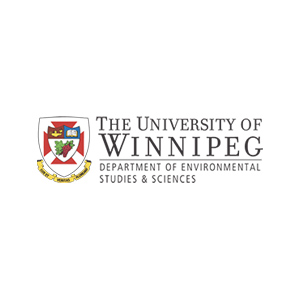
About Centre for Forest Interdisciplinary Research, University of Winnipeg
The Centre for Forest Interdisciplinary Research (C-FIR) at The University of Winnipeg is dedicated to interdisciplinary research, education, and training in forest science, policy and management. Established in 1998, C-FIR focuses on understanding the ecological, economic, and socio-cultural conditions that shape forests and the natural resources provided by forest systems in Manitoba and around the world. C-FIR researchers carry out leading edge natural and social science research to advance understanding of past, present and future changes and impacts, as well as the links between forest ecosystems and society, in order to promote more sustainable use of forest environments.
CENTER FOR NATIVE PEOPLES AND THE ENVIRONMENT
Exploring Forest Sustainability with Indigenous Youth
Project Overview
Centre for Native Peoples and the Environment: State University of New York – College of Environmental Science and Forestry will develop and implement an educational program that focuses on the sustainability of ecologically and culturally significant tree species that we will incorporate into the Native Earth Environmental Youth Camp (NEEYC). NEEYC is a camp devoted to sustainable science and traditional ecological knowledge that they run in partnership with the Haudenosaunee Environmental Task Force.
Project Partners
Haudenosaunee Environmental Task Force

About Center for Native Peoples and the Environment
Our region is the home of two great intellectual traditions regarding stewardship of the earth: traditional ecological knowledge of indigenous people and scientific ecological knowledge. The mission of the SUNY-ESF Center for Native Peoples and the Environment is to create programs that draw on the wisdom of both indigenous and scientific knowledge in support of our shared goals of environmental sustainability.
CLEMSON UNIVERSITY HABITAT FOR HUMANITY
Homecoming Build 2016
Project Overview
Every year, more than 500 Clemson University students come together to build a Habitat house for a local family on the campus’ Bowman Field, during the 10 days leading up to the homecoming football game. Clemson University’s Habitat chapter will receive a $10,000 grant to build the 24th Annual Homecoming House.
After the 10-day build, the walls and roof are up, the drywall and siding have been hung, and the windows, doors, and basic electricity and plumbing have been installed. The house is opened for public viewing on Saturday, and then moved to a local neighborhood. Wood products certified to the SFI Standard will be used in the build.
Project Partners
In addition to the Clemson University Campus Chapter of Habitat for Humanity, partners include the South Carolina SFI Implementation Committee and the Lutheran Campus Ministry at Clemson.

About Clemson University Campus Chapter of Habitat for Humanity
The Clemson University Campus Chapter of Habitat for Humanity was established in 1994 following its participation in the building of a home on Bowman Field during the 1993 homecoming celebration. Since then, the chapter has organized several outstanding projects, including the 2001 “Blitz Build” during which five houses were completed. In 2003, Clemson Habitat spurred the building of the first ever Youth United home in partnership with D.W. Daniel High School in Central, South Carolina.
CORNELL UNIVERSITY
Building STEM Engagement Focused on Homes for Nesting Birds
Project Overview
Cornell University will engage local youth in the construction of nest box trails for the benefit of native birds and the environment. Wood products certified to the SFI Standard will be used to build the nest boxes. The university will also develop a free online curriculum, to expand the project’s reach, and deliver 18 workshops with their partners to test curriculum and engage students.
Through this series of workshops focused on youth, family and community, the curriculum will include lessons in science (biology, ecology, habitat) and technology (mapping, data exploration) surrounding the NestWatch citizen-science project for afterschool and 4-H audiences. Cornell University will receive $8,733 in 2016, 2017 and 2018 to complete this project.
Project Partners
In addition to the Cornell University, partners include the Cornell Lab of Ornithology, Cornell Co-Op Extension Jefferson County and Columbia/Greene Counties, and New York State 4-H.

About the Cornell Lab of Ornithology
The Cornell Lab of Ornithology is a world leader in the study, appreciation, and conservation of birds. Its hallmarks are scientific excellence and technological innovation to advance the understanding of nature and to engage people of all ages in learning about birds and protecting the planet.
COMITÉ DE MISE EN ŒUVRE DES NORMES SFI DU NEW HAMPSHIRE
Visites guidées pour enseignants dans les forêts du New Hampshire
Utilisation des ressources de Project Learning Tree pour aider les enseignants à se familiariser avec la foresterie durable et à encourager les élèves à s’orienter vers des carrières vertes dans le secteur forestier
Pourquoi ce projet est important
Ces dernières années, les spécialistes de l’éducation environnementale se sont inquiétés du fait que les jeunes s’éloignent de plus en plus du monde naturel, une tendance qui les rend moins aptes à apprécier et à préserver notre environnement. Cet éloignement est également une question d’égalité des chances, certaines communautés n’ayant pas accès aux espaces extérieurs et aux nombreuses carrières vertes associées à la durabilité des ressources naturelles.
Les Visites guidées des forêts pour les enseignants du New Hampshire (Forests of New Hampshire Teacher Tours) donneront aux enseignants des moyens d’aider les élèves à mieux comprendre le rôle important que jouent les forêts, et ceux qui les gèrent, dans la préservation de l’environnement, notamment en ce qui a trait à la faune et la flore, la conservation de l’eau potable, le soutien de l’activités économique durable et les possibilités de loisirs. Les visites, qui font partie du programme Project Learning Tree (PLT), une initiative de la SFI, y parviennent de plusieurs manières, notamment en utilisant les forêts locales comme salles de classe en plein air. Ce projet encouragera également les élèves à envisager des carrières vertes dans le secteur forestier.
Comment le projet amène les enseignants et les jeunes à apprécier les avantages de l’aménagement forestier durable et à connaître les possibilités d’emplois verts dans le secteur forestier.
Les enseignants recevront 30 heures de crédits de formation continue pour leur participation à un atelier de quatre jours. Au cours de l’atelier, ils découvriront le programme PLT et apprendront comment l’intégrer à leur propre programme pédagogique. Des représentants d’entreprises qui font partie du Comité de mise en œuvre des normes SFI du New Hampshire travailleront avec les enseignants pour favoriser une meilleure compréhension de l’aménagement forestier écologiquement soutenable et de l’importance de la fabrication de produits forestiers durables. Les enseignants seront également exposés aux différentes disciplines et aux parcours professionnels qui mènent à des carrières vertes comme la gestion de la faune et d’autres emplois associés à la gestion des ressources naturelles dans le secteur forestier. L’atelier fournira aux enseignants l’information dont ils ont besoin pour permettre aux élèves d’acquérir des compétences et une expérience de base qui seront reconnues par les programmes postsecondaires.
Contribution de SFI
Ce projet est appuyé par le programme de subventions communautaires de la SFI. De plus, le Groupe PLT du New Hampshire fournira des ressources et de l’expertise à l’appui du projet. Le réseau SFI, par le biais du Comité SFI New Hampshire, aidera créer des liens significatifs entre les principaux intervenants du secteur forestier du New Hampshire et le milieu de l’enseignement.
Contribution du projet aux engagements communautaires de SFI
Le projet aidera les enseignants à développer un réseau de soutien composé de professionnels de la foresterie auxquels ils pourront s’adresser pour fournir des informations pertinentes aux étudiants intéressés par une carrière dans le secteur forestier du New Hampshire. Les enseignants recevront une liste des participants aux ateliers, qui comprendra également une liste des entreprises certifiées SFI participantes, des professionnels de la foresterie et les coordonnées du personnel de la New Hampshire Timberland Owners’ Association. Les enseignants pourront utiliser ces informations pour répondre à des questions spécifiques concernant l’orientation des élèves intéressés par les carrières vertes.
Partenaires
Ce partenariat comprend des éducateurs, des professionnels des ressources naturelles et des organisations certifiées SFI.
- Chef de projet : Comité SFI New Hampshire
- Sustainable forestry Initiative
- Florida SFI Implementation Committee
- New Hampshire Project Learning Tree
- USDA Forest Service
- Madison Lumber
- RJ Chipping and Nine Dragons Paper Company (entreprise certifiée SFI)
Informations connexes
New PLT Curriculum Introduces Youth to Green Careers

À propos du Comité de mise en œuvre des normes SFI du New Hampshire
Le SFI répond aux besoins locaux par le biais des comités de mise en œuvre des normes SFI au niveau des états, des provinces et des régions. Ces comités travaillent avec des associations locales, forestières et professionnelles, des universités, des agences gouvernementales, des groupes de propriétaires fonciers, des groupes de conservation et bien d’autres pour promouvoir les normes SFI comme moyen d’élargir la pratique de la foresterie écologiquement responsable et de réaliser des progrès sur le terrain. Depuis 1995, les organisations certifiées SFI ont versé près de 75 millions de dollars à l’appui des programmes locaux par le biais des comités de mise en œuvre des normes SFI. Cela inclut la formation des bûcherons et des forestiers, ce qui représente un moyen très efficace d’atteindre les milliers d’entrepreneurs indépendants qui sont la clé de l’amélioration de la qualité des opérations d’exploitation forestière. Le Comité SFI New Hampshire verse chaque année plus de 22 000 $ à des organismes locaux sans but lucratif pour soutenir l’éducation environnementale et la formation des bûcherons et des forestiers. En plus de son soutien éducatif, le comité SFI soutient également la recherche forestière par le biais de subventions à la Hubbard Brook Research Foundation. Pour en savoir plus.
CREE FIRST NATION OF WASWANIPI
SFI Is Supporting the Transfer of Scientific and Traditional Knowledge to Cree Youth in Waswanipi
Marten Monitoring and Youth Knowledge Transfer
Why this project matters
Indigenous youth are Canada’s fastest-growing demographic group. At the same time, many of these Indigenous youth feel unsure of the opportunities they will be able to enjoy as adults. The Marten Monitoring and Youth Knowledge Transfer project will help youth see how the Cree way of life still connects very strongly to the land. It will pass on the values that teach the Cree to take only what they need from the land and ensure the continued existence of forests, rivers and wildlife. The program will also introduce Cree youth to scientific concepts and encourage them to consider careers as wildlife and resource professionals.
The monitoring program, based in the Cree community of Waswanipi, 700 kilometres/435 miles north of Montreal, will evaluate the impact of wildlife management guidelines on marten populations. The monitoring program combines western science and traditional knowledge aimed to transfer knowledge to Cree youth in the community. The monitoring program will also support the implementation of Cree standards and wildlife management for Cree wildlife sites of interest on Waswanipi lands.
The project will bring Cree youth to the trap line to monitor wildlife in an educational way, using scientific and traditional knowledge. They will participate in all the steps of the monitoring, from the elaboration of measuring instruments to the analysis of data, and will learn from the proven tracking methods of their forefathers. Learning will take place with peers in a natural setting as much as possible. The monitoring program will also include formal training with wildlife-monitoring techniques, which could potentially lead to career opportunities in resource and wildlife management.
Why is SFI involved?
SFI values this project because it will help transfer knowledge to youth and combine traditional and scientific approaches. The project’s potential to lead to career opportunities in resource and wildlife management is another key reason for SFI’s support.
One of SFI’s priorities is to connect youth to forests through education. We look for ways to instill a lifelong appreciation for the value forests represent for biodiversity, the broader environment, sustainable communities, responsibly sourced forest products and for our shared quality of life. The educational focus of this project also supports SFI’s focus on encouraging the next generation of future forest leaders.
Our work with Girl Guides of Canada, Scouts Canada, Boy Scouts of America, and other youth organizations and school programs like Earth Rangers and Project Learning Tree helps build healthy kids. It also engages youth in conservation activities and outdoor education.
Our kids’ contact with nature keeps shrinking. Today’s emphasis on screen time and indoor play is also linked to psychological and physical effects like obesity, loneliness, depression and attention problems. Getting kids into forests and helping them learn about sustainability is good for forests and good for kids.
How the project builds SFI community engagement
This project stands out from standard scientific monitoring programs because it advocates the integration of traditional knowledge from trappers and elders of the community in the development of protocols and the establishment of the monitoring.
The project also gives Resolute Canada and other SFI Program Participants in the Quebec SFI Implementation Committee an opportunity to engage directly with the community of Waswanipi. It will ultimately lead to a new rigorous resource management tool developed by and for the community, which could include prescribed guidelines for companies who work in the territory and who are likely to have an impact on the natural environment or on the practice of Cree traditional activities.
Partners
This partnership includes representatives from non-profit groups and SFI Program Participants. These partners include:
- Project lead: Cree First Nation of Waswanipi
- Sustainable Forestry Initiative
- The Gull Family
- Willie J. Happyjack Memorial School
- Waska Resources
- Cree Trappers Association
- Resolute Canada (SFI Program Participant)
- Quebec SFI Implementation Committee (consisting of SFI Program Participants)
Related information
- Read the SFI fact sheet: Addressing Indigenous Interests and Building Partnerships.
- Heiltsuk First Nation: Heiltsuk Culturally Modified Tree Database and Management System
- Montreal Lake Cree Nation Certified to SFI Standard to Enhance Forestry Operations and Community Sustainability
- SFI helped support the Native Earth Environmental Youth Camp, which is devoted to sustainable science and traditional ecological knowledge and run by the State University of New York in partnership with the Haudenosaunee Environmental Task Force.
- Cree First Nation of Waswanipi

About Cree First Nation of Waswanipi
The modern community of Waswanipi is located on Highway 113 along Waswanipi River and is accessible by road. Waswanipi means “Light on the Water”, it describes our past when we used the torch light fuelled by pine tar, to spear and catch sturgeon that had gathered to spawn at the mouth of Waswanipi River.
While the development of the region has had an impact on our lands and community, we are committed to the sustainable management of our resources. Our hard work and dedication with the model forest networks is an example to what can be achieved through proper consultation and research on development with our respective traditional territory. We have locally owned businesses to provide you with meals, groceries, supplies and equipment. We have hiking and cross-country ski trails, rustic camping spots, and a number of beautiful lakes and several challenging rivers for canoeing and kayaking.
CREE FIRST NATION OF WASWANIPI
Partners for Sustainable Management of American Marten
Sustainable management of American marten trapping activities: training, development, monitoring, and enhancement of economic benefits
Why This Project Matters
Indigenous youth are Canada’s fastest-growing demographic group. At the same time, many of these Indigenous youth feel unsure of the opportunities they will be able to enjoy as adults. This project will help youth see how the Cree way of life still connects very strongly to the land. It will pass on the values that teach the Cree to take only what they need from the land and ensure the continued existence of forests, rivers, and wildlife. The program will also introduce Cree youth to scientific concepts and encourage them to consider careers as wildlife and resource professionals.
This project aims to find alternative solutions to help preserve American marten populations and to support traditional activities practiced by Cree tallymen, in the context of harmonization of traditional activities with forestry operations. A Cree tallyman is a Cree person recognized by a Cree community as being responsible for supervising harvesting activities on a Cree trapline.
Why is SFI Involved?
The SFI Conservation and Community Partnerships Grant Program is supporting this project. This project supports education and outreach around American marten populations, and it will propose solutions to harmonize traditional activities with sustainable forest management. SFI also values this project because it will help transfer knowledge to youth and combine traditional and scientific approaches. The project’s potential to lead to career opportunities in resource and wildlife management is another key reason for SFI’s support.
One of SFI’s priorities is to connect youth to forests through education. We look for ways to instill a lifelong appreciation for the value forests represent for biodiversity, the broader environment, sustainable communities, responsibly sourced forest products and for our shared quality of life. The educational focus of this project also supports SFI’s focus on encouraging the next generation of future forest leaders. This project builds on the success of a related 2017 project: Marten Monitoring and Youth Knowledge Transfer.
How the project builds SFI community engagement
Young people and Cree tallymen will work together at each stage of this project. This approach, combined with communication and promotional tools, will generate interest across the entire Waswanipi community and other Indigenous communities. Public information sessions with visual support materials such as field equipment, a leaflet in three languages and multimedia presentations are planned. In addition, a trapping logbook and newsletters will be produced and distributed to the community and to Cree Trappers’ Association offices. Free marten nesting boxes will also be distributed in the community.
This project also stands out from standard scientific monitoring programs because it advocates the integration of traditional knowledge from trappers and elders of the community in the development of protocols and the establishment of the monitoring. The project also gives SFI Program Participants in the Quebec SFI Implementation Committee an opportunity to engage directly and learn from the community of Waswanipi.
Partners
This partnership includes educators, researchers, conservationists, government, and industry.
- Project lead: Cree Trappers Association and Cree First Nation of Waswanipi
- Sustainable Forestry Initiative
- WashWa Nu
- Societé du Plan Nord
- Quebec SFI Implementation Committee
Related information
- Addressing Indigenous Interests and Building Partnerships (fact sheet)
- SFI’s Kathy Abusow speaks on CBC Radio about the SFI Small-Scale Forest Management Module for Indigenous Peoples, Families, and Communities pilot (listen)
- SFI Small-Scale Forest Management Module for Indigenous Peoples, Families and Communities

About the Cree Trappers Association and the Cree First Nation of Waswanipi
The Cree Trappers Associationis dedicated to preserving Cree culture by practicing traditional activities. Association members believe by maintaining Cree principles and values they can pass on Cree culture to the younger generation. Waswanipi means “Light on the Water,” it describes the Cree First Nation of Waswanipi’s past when they used torch light fuelled by pine tar, to spear and catch sturgeon that had gathered to spawn at the mouth of Waswanipi River. The modern community of Waswanipi, Quebec is about 600 km/375 miles directly north of Ottawa. While the development of the region has had an impact on Cree lands and communities, they are committed to the sustainable management of their resources. The Cree First Nation of Waswanipi’s support for the model forest networks is an example of what can be achieved through proper consultation and research on development within traditional Cree territory.
EARTH RANGERS
Brings Project Learning Tree School Site Investigations to Canada
Earth Rangers School Clubs Program and Clubs Missions
Why This Project Matters
Eco Clubs are popular in schools across Canada. However, they sometimes lack a clear mandate or direction and they often tend to focus on sustainable behaviours within the school rather than conservation beyond the school grounds. Teachers are also usually left with the full burden of creating and planning all club activities, which can be overwhelming and lead to a less active club. This project will leverage Earth Rangers’ extensive reach into schools through a new school clubs program that teachers and students can engage with year-round.
Why is SFI Involved?
The SFI Conservation and Community Partnerships Grant Program is supporting this project. Project materials will focus on sustainable forestry and the role Indigenous Peoples play in conservation, both of which are key areas of work for SFI.
The project will also spread the word about Project Learning Tree (PLT) Canadato teachers across Canada. PLT Canada is an initiative of SFI that uses trees and forests as windows on the world to increase youth understanding of the environment and actions they can take to conserve it. There is also a natural fit with PLT GreenSchoolsand Earth Rangers through GreenSchools Investigations — a set of five investigations to engage K-12 students in greening their school around energy, water, waste and recycling, school site, and environmental quality. This project will repurpose the school site investigation, with the intent of establishing a turnkey way of integrating Earth Rangers programming and promoting the existence of PLT to teachers in Canada.
How the project builds SFI community engagement
Earth Rangers will reach out to SFI Implementation Committees in order to leverage the members’ local connections to schools, increasing the reach of the clubs program in those communities. To encourage increased education and engagement in the natural world among students in schools, Earth Rangers will provide teachers with an easy-to-use and customizable platform. It will encourage learning and action on a variety of environmental and conservation issues, including those related to sustainable forest management and Indigenous values.
Partners
This partnership includes educators, researchers, conservationists, and industry.
- Project lead: Earth Rangers
- Sustainable Forestry Initiative
- Forest Products Association of Canada
- The Schad Foundation
Related Information

About Earth Rangers
Earth Rangers is the kids’ conservation organization dedicated to educating children about biodiversity and conservation and empowering them to protect animals and their habitats. The Earth Rangers’ School Assembly Program is offered completely free of charge to elementary schools across Canada. It introduces students to four of the Earth Rangers Animal Ambassadors, including animals like Kateri the Peregrine Falcon, Gizmo the Eurasian Eagle Owl, and Quillow the Prehensile-tailed Porcupine. The 45‑minute assembly takes place in the school’s gym and features:
- An immersive HD multimedia experience
- Live Animal Ambassadors demonstrating their amazing natural behaviours
- A fun and interactive game that gets students and teachers involved
- Educational, curriculum-linked information appropriate for grades 1-6
EARTH RANGERS
School Assembly Program Development
Project Overview
The Earth Rangers School Assembly Program offers a dynamic, fun and interactive presentation for grades 1-6. The program consists of a high quality, curriculum-linked assembly presentation that uses positive, science-based information to educate students about the importance of protecting biodiversity while highlighting conservation initiatives across Canada. Earth Rangers will receive $10,000 in 2016 and 2017 to help fund this program.
The funding will help complete development of a section of Earth Rangers’ 2016-17 School Assembly Program dedicated to educating students about forest ecosystems and sustainable forestry in Canada. Through the power of live animal demonstrations and exciting audience interaction, the School Assembly Program inspires students and motivates them to become actively involved in protecting the environment.

About Earth Rangers
Earth Rangers is the kids’ conservation organization, dedicated to educating children about biodiversity and conservation and empowering them to protect animals and their habitats.
EARTH RANGERS
Canadian Kids Get a Close Up Look at Forest Birds and Learn Why Forests Are a Way of Life
Earth Rangers School Assembly Program Delivery
Why this project matters
Earth Rangers’ School Assembly Program is an extremely successful program, reaching nearly 250,000 students in grades 1-6, in a single school year. The program delivers a dynamic, fun and interactive presentation, consisting of a high-quality, curriculum-linked assembly using positive, science-based information to educate children about the importance of protecting biodiversity while highlighting diverse conservation initiatives across Canada.
The Earth Rangers School Assembly is not a one-off experience, but an inspirational introduction to a program that encourages lasting engagement. The biggest differentiator between it and other environmental education programs is the follow-up component of becoming a member, completely free of charge. The Earth Rangers Membership Program provides students with an engaging online experience and tangible activities that make an impact on real-life conservation projects and environmental initiatives. To participate in the membership program, students visit EarthRangers.com and register to become an Earth Ranger. Teachers can also continue to engage their classes in environmental education by accessing our classroom activities and curriculum resources.
Why is SFI involved?
Through youth education, Earth Rangers is effectively reaching kids across Canada with important messages about forest protection. The SFI segment in our 2017-18 assembly teaches students about the vital work SFI-supported scientists are undertaking in the boreal forest.
The segment also gives students the proper context for why balanced forest management is necessary, explaining how forests are both important wildlife habitat but are also necessary for building things like homes and schools and for making products like paper and pencils. Presenters then provide interesting details about the SFI-supported Boreal Avian Modeling Project, giving insight into the varied and unexpected habitat types that different bird species prefer.
How the project builds SFI community engagement
SFI will ensure Canadian SFI Implementation Committees are aware of Earth Rangers’ work and build connections for future collaboration opportunities. As with any environmental education program, SFI will also work closely with Earth Rangers to determine opportunities for future Project Learning Tree collaboration in Canada. SFI will also work with Earth Rangers to develop online materials related to the grant project, SFI, well-managed forests, and biodiversity.
Partners
This partnership includes educators and forestry professionals.
- Project lead: Earth Rangers
- Sustainable Forestry Initiative
Related information
- Earth Rangers Canada’s work, including their Bring Back the Wild program, was featured in The Hamilton Spectator.
- Project Learning Tree, an SFI program, is an award-winning environmental education program designed for teachers and other educators, parents, and community leaders working with youth from preschool through grade 12.
- SFI connects youth to forests through education (project highlights).
- Nature Conservancy of Canada, Earth Rangers and SFI Want to Make Life Less Scary for Amphibians at Halloween and All Year Round (media release).
- The Boreal Avian Modelling Project

About Earth Rangers
Earth Rangers is the kids’ conservation organization, dedicated to educating children about biodiversity and conservation and empowering them to protect animals and their habitats. The Earth Rangers’ School Assembly Program is offered completely free of charge to elementary schools across Canada. It introduces students to four of the Earth Rangers Animal Ambassadors, including animals like Kateri the Peregrine Falcon, Gizmo the Eurasian Eagle Owl, and Quillow the Prehensile-tailed Porcupine. The 45‑minute assembly takes place in the school’s gym and features:
An immersive HD multimedia experience
Live Animal Ambassadors demonstrating their amazing natural behaviours
A fun and interactive game that gets students and teachers involved
Educational, curriculum-linked information appropriate for grades 1-6
EARTH RANGERS
Brings Project Learning Tree School Site Investigations to Canada
Earth Rangers School Clubs Program and Clubs Missions
Why This Project Matters
Eco Clubs are popular in schools across Canada. However, they sometimes lack a clear mandate or direction and they often tend to focus on sustainable behaviours within the school rather than conservation beyond the school grounds. Teachers are also usually left with the full burden of creating and planning all club activities, which can be overwhelming and lead to a less active club. This project will leverage Earth Rangers’ extensive reach into schools through a new school clubs program that teachers and students can engage with year-round.
Why is SFI Involved?
The SFI Conservation and Community Partnerships Grant Program is supporting this project. Project materials will focus on sustainable forestry and the role Indigenous Peoples play in conservation, both of which are key areas of work for SFI.
The project will also spread the word about Project Learning Tree (PLT) Canadato teachers across Canada. PLT Canada is an initiative of SFI that uses trees and forests as windows on the world to increase youth understanding of the environment and actions they can take to conserve it. There is also a natural fit with PLT GreenSchoolsand Earth Rangers through GreenSchools Investigations — a set of five investigations to engage K-12 students in greening their school around energy, water, waste and recycling, school site, and environmental quality. This project will repurpose the school site investigation, with the intent of establishing a turnkey way of integrating Earth Rangers programming and promoting the existence of PLT to teachers in Canada.
How the project builds SFI community engagement
Earth Rangers will reach out to SFI Implementation Committees in order to leverage the members’ local connections to schools, increasing the reach of the clubs program in those communities. To encourage increased education and engagement in the natural world among students in schools, Earth Rangers will provide teachers with an easy-to-use and customizable platform. It will encourage learning and action on a variety of environmental and conservation issues, including those related to sustainable forest management and Indigenous values.
Partners
This partnership includes educators, researchers, conservationists, and industry.
- Project lead: Earth Rangers
- Sustainable Forestry Initiative
- Forest Products Association of Canada
- The Schad Foundation
Related Information

About Earth Rangers
Earth Rangers is the kids’ conservation organization dedicated to educating children about biodiversity and conservation and empowering them to protect animals and their habitats. The Earth Rangers’ School Assembly Program is offered completely free of charge to elementary schools across Canada. It introduces students to four of the Earth Rangers Animal Ambassadors, including animals like Kateri the Peregrine Falcon, Gizmo the Eurasian Eagle Owl, and Quillow the Prehensile-tailed Porcupine. The 45‑minute assembly takes place in the school’s gym and features:
- An immersive HD multimedia experience
- Live Animal Ambassadors demonstrating their amazing natural behaviours
- A fun and interactive game that gets students and teachers involved
- Educational, curriculum-linked information appropriate for grades 1-6
ÉCOLE DE FORESTERIE DE L’UNIVERSITÉ MICHIGAN STATE
Soutien des programmes didactiques liés aux forêts urbaines, au stockage du carbone et au changement climatique
Améliorer la compréhension des grandes questions d’actualité en foresterie urbaine liées notamment au carbone, au changement climatique, aux politiques municipales et à la justice environnementale
Pourquoi ce projet est important
Le climat, tant écologique que politique, est en train de changer. De plus en plus, les responsables municipaux et les professionnels de l’urbanisme sont confrontés à la nécessité de maîtriser les sujets liés à la gestion du carbone forestier au niveau urbain et municipal. Cette maîtrise comprend la nécessité de comprendre les défis de l’adaptation et de l’atténuation, la capacité d’intégrer la justice environnementale dans les stratégies de gestion, et les compétences pour développer des réponses aux nouveaux objectifs climatiques et à la législation connexe. Ce projet élargira le contenu précédemment développé sur les principes fondamentaux du carbone forestier afin de créer du matériel basé sur des études de cas pour les forestiers, les planificateurs, les constructeurs et les décideurs dans les villes et les municipalités.
Comment ce projet vise à sensibiliser les autorités municipales et les urbanistes aux fondements de la gestion du carbone des forêts urbaines
L’école de foresterie de l’Université Michigan State (MSU) s’est fixée pour objet d’élargir le contenu des cours existants sur les principes fondamentaux de la gestion du carbone forestier en développant du matériel d’apprentissage en ligne pratique, accessible et basé sur des études de cas en matière d’aménagement forestier et de climat pour les villes et les municipalités à l’échelle mondiale. L’idée d’aborder le sujet plus vaste du carbone forestier et du climat sous l’angle de la foresterie urbaine fournira aux apprenants des informations pratiques, concrètes et applicables qui tiennent compte d’une myriade d’obstacles, de limites et de possibilités d’accroître l’équité sociale grâce à la foresterie urbaine et aux projets d’infrastructure verte.
Le projet comprendra des travaux de recherche primaire et une synthèse de la recherche existante en matière de foresterie urbaine et de climat pour développer le matériel didactique. En plus des pratiques d’aménagement forestier typiques, le cours proposé examinera les avantages climatiques liés aux produits forestiers durables et à la construction durable, y compris les techniques de construction écoresponsables et l’utilisation du bois de masse, les initiatives d’actualité en matière de politiques publiques et les approches de pointe mises de l’avant dans le secteur privé, en utilisant des exemples d’études de cas, dans le but ultime d’encourager davantage la construction écologiquement soutenable.
Contribution de SFI
Ce projet est soutenu par le programme de subventions communautaires de la SFI. Les travaux s’appuieront sur deux projets précédemment parrainés par la SFI, tous deux conçus pour renforcer l’éducation forestière auprès divers groupes de parties prenantes, y compris les professionnels forestiers et non forestiers qui doivent approfondir leurs connaissances en matière de foresterie climato-intelligente. Les projets précédents sont les suivants : Michigan SFI Implementation Committee and Michigan State University Use Urban Forestry to Attract New Students et E-Learning Unit on Carbon and Climate Benefits in Well-Managed Forests. En élaborant un matériel didactique fondé sur la littérature scientifique, des exemples d’études de cas et des contributions d’experts en foresterie urbaine, ce projet produira du contenu de pointe qui pourra servir entre autres au processus d’élaboration de la nouvelle norme de foresterie urbaine et communautaire de la SFI.
Contribution du projet aux engagements communautaires de SFI
L’école de foresterie de l’Université Michigan State s’est donnée pour priorité de concentrer ses activités de sensibilisation sur la communauté forestière élargie et les secteurs connexes. Ce cours et le matériel didactique s’y rattachant permettront de communiquer à un auditoire cible plus large l’importance de l’aménagement écologiquement soutenable des forêts urbain. Le projet s’adressera également aux réseaux de forestiers municipaux et urbains, y compris les membres en règle de l’Arbor Day Foundation et d’American Forests, deux OSBL membres de la SFI, dans le but de s’assurer de transmettre cette information de pointe directement à la communauté des intervenants en foresterie urbaine. En outre, le modèle d’apprentissage en ligne est à la fois rentable et accessible, notamment ceux pour qui il est impossible d’assister à des activités d’apprentissage en personne.
Partenaires
Ce partenariat comprend des universitaires, des spécialistes de la conservation, des éducateurs, des groupes autochtones et des organisations partenaires de SFI.
- Chef de projet : École de foresterie de l’Université Michigan State
- Sustainable forestry Initiative
- Michigan Department of Natural Resources, Urban and Community Forestry Program (SFI-certified organization)
- American Forests (SFI partner)
- École d’agriculture et des ressources naturelles de l’Université Michigan State
- International Society of Arboriculture Michigan (partenaire de SFI)
Informations connexes

pÀ propos de l’école de foresterie de l’Université Michigan State
L’école de foresterie de l’Université Michigan State a pour mission de générer et de traduire le savoir sur les arbres, les forêts et les systèmes naturels et humains connexes afin de proposer des solutions durables pour la population et les écosystèmes. L’école de foresterie s’affaire à façonner l’avenir de la foresterie durable par le biais de l’innovation en matière de recherche, d’apprentissage et de sensibilisation. Les étudiants en foresterie de la MSU prennent progressivement conscience de leur rôle dans le maintien des forêts et des services écosystémiques qu’elles fournissent, notamment la conservation de la biodiversité, la fabrication de produits forestiers durables, la protection de la qualité de l’eau propre et l’atténuation du changement climatique. Les étudiants apprennent à devenir des leaders grâce à des cours multidisciplinaires, des études sur le terrain, des technologies de pointe et le mentorat de professeurs respectés dans l’un des programmes forestiers les plus anciens des États-Unis. Pour en savoir plus.
ENVIRONMENTAL EDUCATION ASSOCIATION OF ILLINOIS
Immersive Education Event Helps Teacher Teams Integrate Environmental Science Education
EdVentures for Educators
Why This Project Matters
Supporting teachers to help them develop understanding and expertise in environmental science education can pay enormous dividends. Teachers are in an excellent position to encourage students to become environmental stewards. However, integrating environmental science education into school curriculums can be a complex and time-consuming task.
To tackle this challenge, EdVentures for Educators is planning an immersive two-day professional development education event for October 2019, hosted by Environmental Education Association of Illinois (EEAI). Thirty-five teachers will work in teams to integrate environmental science education into curriculums. The training will be three-pronged and include academic instruction, field experience, and leadership development.
Why is SFI Involved?
The SFI Conservation and Community Partnerships Grant Program is supporting the EdVentures for Educators project led by the Environmental Education Association of Illinois.The association along with the U.S. Forest Service and Southern Illinois University will train teachers to engage students in environmental education through Project Learning Tree (PLT) activities. PLT is an initiative of SFI that uses trees and forests as windows on the world to increase youth understanding of the environment and actions they can take to conserve it.
EdVentures for Educators will also include field experiences in Shawnee National Forest and an immersive education experience at Southern Illinois University’s Touch of Nature Environmental Center. Participants will complete the training with an implementation plan for environmental education activities aligned with Next Generation Science Standards. Educators will participate in ongoing learning and community activities to strengthen the quality and implementation of environmental education, outdoor learning, and community resource connections.
How the Project Builds SFI Community Engagement
EEAI is the state affiliate organization for the North American Association for Environmental Education, which provides an online network of thousands of educators who will be exposed to EdVentures for Educators. EEAI also serves as the state sponsor for the PLT program in Illinois. The project plan and outcomes will be shared with other educators and states that might be interested in replicating this project. The project will also include follow-up webinars, collaborative teaching calls, online discussion forums, surveys to determine program effectiveness, and best practices for implementing new curriculum. Teaching teams who work with diverse audiences of underserved student populations will be given priority.
Partners
This partnership includes educators, researchers, conservationists, and government.
- Project lead: Environmental Education Association of Illinois
- Sustainable Forestry Initiative
- Champaign County Forest Preserve District
- U.S. Forest Service — Shawnee National Forest
- Southern Illinois University — Touch of Nature Environmental Center
- Madison County Regional Office of Education
Related Information

About the Environmental Education Association of Illinois
The Environmental Education Association of Illinois is a group of concerned citizens who are interested in educating people of all ages about the importance of understanding and protecting the environment.
Since its inception in 1972, the association has provided leadership at the local, state and national level within the environmental education community by providing and supporting professional development services to the formal and non-formal educator. As host to national, state-based and independent professional development events and curriculums such as Project Learning Tree, Growing Up WILD, and the Midwest Environmental Education Consortium, the association has set a professional standard that educators have learned to depend on.
EVANS LAKE FOREST EDUCATION SOCIETY
2011 Forest Education Symposium
Project Overview
In 2011, the Evans Lake Forest Education Society received $4,000 to host its Forest Education Symposium for educators at its center north of Vancouver, British Columbia. The Symposium, which occurred on October 21, 2011, brought together educators who want to teach balanced lessons about the economic, social and environmental benefits of sustainable forest management; and knowledgeable professionals, including Evans Lake Forest Education Centre staff and SFI representatives.
The symposium gave teachers and administrators tools to enrich forest education programs at their schools. They received a program package of up-to-date educational resources including suggested activities and locations, a chart linking activities to Prescribed Learning Outcomes, and other related resources. Each package included an electronic version so teachers can easily tailor the information to meet specific class needs. In addition to workshops and demonstration activities, participants were given and introduction to SFI certification hosted by the Western Canada SFI Implementation Committee.
Supporting the SFI Standard
This activity supports the SFI 2010-2014 Standard Objective 17: Community Involvement in the Practice of Sustainable Forestry, including Performance Measure 17.2 requiring that program participants support and promote public outreach, education and involvement related to sustainable forestry management.
Project Partners
The Evans Lake Forest Education Society worked in partnership with the Western Canada SFI Implementation Committee.
News
SFI Funds Community-based Education and Green Building Projects
Press Release – June 20, 2011
Project Resources

About Evans Lake Forest Education Society
The Evans Lake Forest Education Society is a non-profit, charitable organization with a mandate to offer forest education programs at Evans Lake Forest Education Centre in Squamish, British Columbia. Surrounded by forest, it offers a feeling of wilderness seclusion but features all basic amenities. Each year, the Evans Lake Forest Education Centre offers a full summer camp program with sessions for campers aged 8-12 years, 13-16 years as well as Leadership Training Camps and wilderness based Outdoor Adventure Kamps (OAK).
FÉDÉRATION DES PRODUCTEURS FORESTIERS DU QUÉBEC (FPFQ)
Update of the “Sound Forestry Practices for Private Woodlots” Field Guide
Project Overview
The “Fédération des producteurs forestiers du Québec” (FPFQ) has released the fourth edition of the “Sound Forestry Practices for Private Woodlots Field Guide,” which is used by small woodlot owners and forest managers to promote responsible forest management. The updated guide was supported in part by a $10,000 SFI Community Partnerships Grant.
Download a copy of the guide (French only).
This newest edition includes enhanced content covering key themes such as identifying watercourse crossing features and wetlands, conservation of wildlife habitat, timber measurement and stacking for transport, sugarbush development and tree-felling safety regulations. The online version of the guide also features videos.
Within the province of Quebec, the guide is becoming an essential tool for implementing the requirements of the SFI Fiber Sourcing Standard, which requires manufacturers to reach out to landowners and to also ensure training of timber producers. The FPFQ Guide is commonly used by SFI Program Participants to help them address the standard’s requirements. On an annual basis, SFI Program Participants provide training to more than 300 woodlot owners and close to 550 forestry contractors and producers in Quebec.
Objective 2 of the 2015-2019 SFI Fiber Sourcing Standard seeks to broaden the practice of sustainable forestry through the use of best management practices to protect water quality. The FPFQ guide’s information on crossing streams and other water courses is an example of how it supports SFI’s approach to protecting water quality.
Objective 7 of the Standard aims to promote sustainable forestry through public outreach, education, and involvement and to support the efforts of SFI Implementation Committees. The guide embodies this educational approach.
Project Partners
In addition to the Fédération des producteurs forestiers du Québec, partners include 13 forest-related marketing boards in Quebec, the Quebec SFI Implementation Committee, Canadian forest service and the Fondation de la Faune du Québec (FFQ).
Completed Projects Short Videos
How to Become a Forest Producer
White Tail Deer Habitat Management

About Fédération des producteurs forestiers du Québec
The FPFQ is the provincial advocacy organization responsible for promoting the best interests of 130,000 woodlot owners. Its actions are focused on the protection and development of private woodlots.
FLORIDA SFI IMPLEMENTATION COMMITTEE
Teaching Sustainable Forestry to University Students through Project Learning Tree (PLT)
Project Description
The Florida SFI Implementation Committee received $5,000 funding PLT educator workshops for university students utilizing the theme of “sustainable forestry” using selected PLT lessons from current manuals. The project will fund workshops for the 2013-2014 school year.
Supporting the SFI Standard
The project will support SFI 2010-2014 Standard Objective 17: Community Involvement in the Practice of Sustainable Forestry, including Performance Measure 17.2 requiring that program participants support and promote public outreach, education and involvement related to sustainable forestry management.
Project Partners
In addition to the Florida SFI Implementation Committee and Florida Project Learning Tree, partners include U.S. Fish and Wildlife Service, Packaging Corporation of America, St. Petersburg College, Florida Forest Service, Leon County Extension and University of Florida.

About Florida SIC
The SFI program responds to local needs and issues across North America through 35 SFI Implementation Committees at the state, provincial or regional level. This unique grassroots network involves private landowners, independent loggers, forestry professionals, local governments agencies, academics, scientists, and conservationists.
FONDATION FORESTIÈRE DU MISSISSIPPI
Faire progresser la main-d’œuvre du secteur des forêts et de la conservation du Mississippi grâce aux partenariats et à la formation stratégique
Remédier au manque d’opportunités en faisant progresser la main-d’œuvre du secteur forestier et de la conservation du Mississippi par le biais de partenariats et d’initiatives stratégiques en matière de formation.
Pourquoi ce projet est important
Le manque d’opportunités concernant les bourses d’études, les possibilités de formation continue et le développement de carrière est flagrant dans de nombreuses communautés du Mississippi. Ce projet vise à apporter l’égalité des chances dans le secteur des forêts et de la conservation du Mississippi en s’adressant aux nouveaux travailleurs, aux vétérans des forces armées et aux travailleurs déplacés. Le secteur forestier est également confronté à une vague de départs à la retraite qui nécessitera un afflux de jeunes travailleurs pour maintenir la main-d’œuvre du secteur forestier de l’État. L’objectif ultime du projet est d’accroître les possibilités et la capacité de tous les citoyens du Mississippi à obtenir un emploi vert dans le secteur forestier.
Comment le projet contribue concrètement à intéresser les nouveaux travailleurs, les vétérans des forces armées et les travailleurs déplacés à faire carrière dans le secteur des forêts et de la conservation du Mississippi
Ce projet adopte une approche à trois volets pour atteindre ses objectifs. Tout d’abord, la Fondation forestière du Mississippi (Mississippi Forestry Foundation – MFF) a désigné un employé qui participe aux salons de l’emploi des écoles secondaires et des collèges communautaires et celles ouvertes au public. La participation aux salons de l’emploi est l’occasion d’informer les participants sur les programmes d’études, les emplois verts et les formations techniques liés à l’exploitation forestière, la fabrication de produits forestiers et la conservation. Deuxièmement, le MFF collabore avec ses membres, les agents de rayonnement des comtés, les associations forestières des comtés, le ministère des anciens combattants du Mississippi, les centres locaux pour l’emploi, les chambres de commerce, les centres de formation professionnelle, les universités, les collèges communautaires et un certain nombre d’autres groupes pour rassembler et partager des informations sur les possibilités d’études et de formation. Troisièmement, le MFF utilisera le matériel et les articles promotionnels de l’Institut de formation de la main-d’œuvre forestière (Forest Workforce Training Institute) pour stimuler l’intérêt et accroître les connaissances concernant le secteur des forêt set de la conservation, tout en adaptant le matériel aux besoins spécifiques au Mississippi.
Contribution de SFI
Le programme de subventions communautaires de la SFI soutient ce projet. Le Comité SFI Mississippi permettra également aux participants du projet d’accéder à l’expertise du réseau SFI. Le projet misera également sur les partenariats avec les organisations certifiées SFI.
Contribution du projet aux engagements communautaires de SFI
Le manque d’opportunités dans de nombreuses communautés du Mississippi a pour effet d’isoler les gens. La création d’un plus grand nombre de possibilités de participation au marché de l’emploi et d’avancement professionnel contribuera à rapprocher les gens. Les participants au projet serviront également d’exemples positifs pour les autres membres de la communauté qui ont pu se déconnecter du monde du travail et de toutes les relations communautaires qui vont de pair avec un emploi.
Partenaires
Ce partenariat comprend du personnel enseignant, des conseillers en matière d’emploi, des professionnels de la foresterie, des responsables gouvernementaux, des représentants du monde des affaires et des entreprises certifiées SFI.
- Chef de projet : Mississippi Forestry Foundation
- Sustainable forestry Initiative
- Comité SFI Mississippi
- Mississippi Loggers Association
- Mississippi Forestry Association
Informations connexes
Mississippi Forest Foundation – Des étudiants de l’école d’architecture de l’Université Mississippi State acquièrent des connaissances essentielles sur le bois de masse

À propos de la Mississippi Forestry Foundation
La Mississippi Forestry Foundation est une société sans but lucratif et sans actions créée par la Mississippi Forestry Association en 1964 pour promouvoir et réaliser des programmes éducatifs, littéraires, scientifiques et caritatifs visant à mieux conserver, développer et protéger les forêts du Mississippi et les ressources naturelles connexes dans l’intérêt des générations actuelles et futures. Le FFM soutient l’organisme Project Learning Tree (une initiative de la SFI), les ateliers de formation en conservation destinés aux enseignants et d’autres programmes de foresterie pour les jeunes. Le FFM attribue également chaque année une bourse d’études à un étudiant de l’école des Ressources forestières de l’Université Mississippi State. En outre, le FFM encourage la protection des forêts contre les incendies à l’échelle de l’État. Pour en savoir plus.
THE FOREST FOUNDATION
Expansion of Map It, Manage It, Sustain It Forest Education Program
Project Overview
The Forest Foundation received $4,000 in 2011 to expand its Map It, Manage It, Sustain It Education Program, bringing together local landowners, forestry professionals, college faculty, and high schools in a collaborative learning environment.
SFI’s funding allowed The Foundation and its partners to expand the program to Plumas and Sierra Counties in California. The program enabled students to directly experience modern, technologically advanced forest management practices by combining tours of sawmills and forests certified to the SFI standard with hands-on field and classroom exercises.
The Map It, Manage It, Sustain It program cultivates tomorrow’s forest management professionals and informs the community on important topics related to modern methods of managing and sustaining California’s forests. The expansion allowed an additional 30 students and their teachers to explore ways in which forest managers plan for the long-term health and productivity of our forests, and to share their knowledge with their communities.
Supporting the SFI Standard
Map It, Manage It, Sustain It directly relates to SFI 2010-2014 Standard Objective 1: Forest Management Planning; Objective 2: Forest Productivity; Objective 16: Training and Education; and Objective 17: Community Involvement in the Practice of Sustainable Forestry. It also supports SFI requirements to protect water resources, conserve biological diversity, support forestry research and promote sustainable forest management on public lands.
Project Partners
In addition to The Forest Foundation, project partners included Sierra Pacific Industries and Soper-Wheeler Company. Partners making in-kind contributions include UC Berkeley Forestry Camp, University of California Cooperative Extension, and area high schools and colleges.
News
SFI Funds Community-based Education and Green Building Projects
Press Release – June 20, 2011
Project Resources

About The Forest Foundation
The Forest Foundation is a non-profit organization created in 1994 to inform Californians, particularly K-12 students, about the role forests play in the environmental and economic health of our state. Its mission is to foster public understanding of forest ecosystems in California by providing balanced, science-based information on environmental, economic, and societal uses of forest resources for present and succeeding generations.
FOREST ONTARIO
SFI Is Helping Students and Teachers Get Firsthand Experience in the Boreal Forest
The Forestry Connects Program
Why this project matters
Ontario’s population is 86% urban, according to Statistics Canada. This means Ontario’s vast forests are outside the daily experiences of most Ontarians. SFI’s support for Forestry Connects, will help connect about 100 high school students and teachers to the boreal forest and give them real-life experience in responsible forest management.
Established in 2010, the Forestry Connects program, led by Forests Ontario, gives Ontario high school students a first-hand look at what it’s like to work in forestry. More than 350 students and teachers have participated in the program to go into Ontario’s forests to meet with foresters, operators, Indigenous people, and biologists to learn about growing and responsibly managing Ontario’s forests.
From visits to local mills and harvesting operations to lessons on local wildlife and the identification of different trees, the program demonstrates the importance of forests to local communities, and the complexity and benefits of active forest management and planning. By the end of the program, students have a better understanding of the integral role forests play in cleaning our air and water, regulating Ontario’s climate, and creating products we rely on every day, as well as inspiring potential careers in sustainable forest management.
Why is SFI involved?
SFI values this project because it provides students with firsthand experience that exposes them to real life experience in responsible forestry and connects them with resource professionals who may inspire them to pursue careers in forestry.
One of SFI’s priorities is to connect youth to forests through education. We look for ways to instill a lifelong appreciation for the value forests represent for biodiversity, the wider environment, sustainable communities, responsibly sourced forest products and for our shared quality of life. The educational focus of this project also supports SFI’s focus on encouraging the next generation of future forest leaders.
Our work with Girl Guides of Canada, Scouts Canada, Boy Scouts of America, and other youth organizations and school programs like Earth Rangers and Project Learning Tree helps build healthy kids. It also engages youth in conservation activities and outdoor education.
Our kids’ contact with nature keeps shrinking. Today’s emphasis on screen time and indoor play is also linked to psychological and physical effects like obesity, loneliness, depression and attention problems. Getting kids into forests and helping them learn about sustainability is good for forests and good for kids.
How the project builds SFI community engagement
This grant supports SFI’s community engagement efforts in two primary ways — it connects youth to forests and it serves to train and educate future forestry professionals. The Central Canada SFI Implementation Committee, which includes SFI Program Participants Domtar, EACOM, Resolute Forest Products and Weyerhauser, all with lands certified to SFI, is working with Forestry Connects to engage with schools in multiple communities. This is opening doors to students in Kenora, Dryden, Sioux Lookout, Ignace, Sioux Narrows, Winnipeg, Whitemouth and Falcon Lake.
Schools will participate in a one-to-two-day program taking them into the field to see active harvesting, learn hands on forestry skills like tree tagging and identification, and see finished wood products in order to understand the process from harvesting to product. Forests Ontario and their partners will develop a series of learning resources focused on forest management in Northern Ontario that will be freely accessible to teachers for use in the classroom. Resources will make knowledge of forest management accessible beyond Forestry Connects participants.
Partners
This partnership includes educators, conservationists, researchers, SFI Program Participants and municipal officials.
- Project lead: Forests Ontario
- Sustainable Forestry Initiative
- Canadian Institute of Forestry
- Central Canada SFI Implementation Committee (consisting of SFI Program Participants)
- City of Kenora
- Domtar (SFI Program Participant)
- EACOM (SFI Program Participant)
- FPInnovations
- Resolute Forest Products (SFI Program Participant)
- Weyerhauser (SFI Program Participant)
- Manitoba Forestry Association
Related information
- Read an op-ed about how Earth Rangers, an SFI-grantee, empowers children on environmental issues giving them opportunities to take action and to make a difference.
- A marten monitoring project, supported by SFI, is connecting youth in the Cree First Nation of Waswanipi to the forest by bringing them on the trap line to monitor wildlife in an educational way, using scientific and traditional knowledge.
- SFI supports Project Learning Tree an award-winning environmental education program designed for teachers and other educators, parents and community leaders working with youth from preschool through grade 12.
- The Nature Conservancy is teaming up with SFI to help at-risk youth prepare for jobs as forest technicians, while restoring conservation values in native forests.
- Forests Ontario

About Forests Ontario
Forests Ontario is dedicated to making Ontario’s forests greener. Its ambitious tree planting initiatives, extensive education programs, and decades of community outreach have helped plant millions of trees in the province each year — and it’s through these efforts that they are bringing our vision for healthier forests to a new generation of stewards, partners, teachers, and donors.
FORESTS ONTARIO
Ontario High Schoolers Experience the Forest
Forestry Connects – Timmins
Why this project matters
Ontario’s population is 86% urban, according to Statistics Canada. This means Ontario’s vast forests are outside the daily experiences of most Ontarians. SFI’s support for Forestry Connects, will help connect about 100 high school students and teachers to the boreal forest and give them real-life experience in responsible forest management.
Established in 2010, the Forestry Connects program, led by Forests Ontario, gives Ontario high school students a first-hand look at what it’s like to work in forestry. More than 350 students and teachers have participated in the program by going into Ontario’s forests to meet with foresters, operators, Indigenous people, and biologists to learn about growing and responsibly managing Ontario’s forests.
From visits to local mills and harvesting operations to lessons on local wildlife and the identification of different trees, the program demonstrates the importance of forests to local communities, and the complexity and benefits of active forest management and planning. By the end of the program, students have a better understanding of the integral role forests play in cleaning our air and water, regulating Ontario’s climate, and creating products we rely on every day, as well as inspiring potential careers in sustainable forest management.
Why is SFI involved?
SFI values this project because it provides students with firsthand experience that exposes them to real life experience in responsible forestry and connects them with resource professionals who may inspire them to pursue careers in forestry. Our kids’ contact with nature also keeps shrinking. Today’s emphasis on screen time and indoor play is also linked to psychological and physical effects like obesity, loneliness, depression and attention problems. Getting kids into forests and helping them learn about sustainability is good for forests and good for kids.
One of SFI’s priorities is to connect youth to forests through education. We look for ways to instill a lifelong appreciation for the value forests represent for biodiversity, the wider environment, sustainable communities, responsibly sourced forest products and for our shared quality of life. The educational focus of this project also supports SFI’s focus on encouraging the next generation of future forest leaders.
Our work with Scouts Canada, Boy Scouts of America, and other youth organizations and school programs like Earth Rangers and Project Learning Tree helps build healthy kids. It also engages youth in conservation activities and outdoor education.
How the project builds SFI community engagement
This grant supports SFI’s community engagement efforts in two primary ways — it connects youth to forests and it serves to train and educate future forestry professionals. The Central Canada SFI Implementation Committee, which includes SFI Program Participants Domtar, EACOM, Resolute Forest Products and Weyerhauser, all with lands certified to SFI, is working with Forestry Connects to engage with schools in multiple communities. This is opening doors to students in Northern Ontario.
Schools will participate in a one-to-two-day program taking them into the field to see active harvesting, learn hands-on forestry skills like tree tagging and identification, and see finished wood products in order to understand the process from harvesting to product. Forests Ontario and their partners will develop a series of learning resources focused on forest management in Northern Ontario that will be freely accessible to teachers for use in the classroom. Resources will make knowledge of forest management accessible beyond Forestry Connects participants.
Partners
This partnership includes educators, conservationists and SFI Program Participants.
- Project lead: Forests Ontario
- Sustainable Forestry Initiative
- Central Canada SFI Implementation Committee
- Domtar (SFI Program Participant)
- EACOM (SFI Program Participant)
- Resolute Forest Products (SFI Program Participant)
- Weyerhauser (SFI Program Participant)
Related information
- SFI helps students and teachers get firsthand experience in the boreal forest through the Forestry Connects Program.
- Project Learning Tree, an SFI program, is an award-winning environmental education program designed for teachers and other educators, parents, and community leaders working with youth from preschool through grade 12.
- The Nature Conservancy is teaming up with SFI to help at-risk youth prepare for jobs as forest technicians, while restoring conservation values in native forests.
- SFI connects youth to forests through education (project highlights).

About Forests Ontario
Forests Ontario is dedicated to making Ontario’s forests greener. Its ambitious tree planting initiatives, extensive education programs, and decades of community outreach have helped plant millions of trees in the province each year — and it’s through these efforts that they are bringing our vision for healthier forests to a new generation of stewards, partners, teachers, and donors.
FRASER BASIN COUNCIL SOCIETY
SFI Is Bringing Indigenous Peoples, Sport Fishing Enthusiasts and Forest Managers Together to Help Thompson Steelhead
The Thompson Steelhead Community Collaboration Initiative
Why this project matters
Steelhead are an iconic symbol of the Thompson River and region in British Columbia. Having long sustained Indigenous people, steelhead are also central to the region’s world-class recreational fishery. Unfortunately, this salmonid species is in decline, and today Thompson Steelhead are classed as a species of extreme conservation concern by the provincial government.
A new initiative is underway for a recovery and management plan that will bring together multiple partners from across a diverse group of communities. This project, led by the Fraser Basin Council, will engage SFI Program Participants about how Indigenous peoples value steelhead, identify modified forest management practices and seek future opportunities to collaborate.
Why is SFI involved?
This initiative is designed to raise awareness and foster collaboration between Indigenous peoples, the commercial sport fishery and forest managers in the Thompson River watershed. Indigenous peoples have long relied on forests for cultural, spiritual and material needs.
SFI builds partnerships with Indigenous communities and the SFI 2015-2021 Forest Management Standard requires certificate holders to recognize and respect Indigenous peoples’ rights. This steelhead initiative supports this requirement. The initiative also supports SFI’s focus on supporting sustainable rural communities. The steelhead commercial fishery is an important source of income for communities in the Thompson River watershed.
How the project builds SFI community engagement
This grant supports SFI’s community engagement efforts in three primary ways. Training and educating current and future professionals, notably resource managers, is a key SFI community focus. This initiative directly engages forest management planners in addressing values that support steelhead habitat. SFI Program Participants BC Timber Sales, Stuwix Resources and West Fraser Mills are supporting these engagement efforts.
SFI’s commitment to support and promote Indigenous heritage values is directly addressed by the initiative’s plans to convey the importance of steelhead to the cultural and dietary requirements of the Nlaka’pamux and Secwepemc peoples.
A third SFI community value – supporting underserved communities through forestry – is addressed by helping recover steelhead populations, which will ultimately result in a return of a sport fishery for B.C. communities such as Spence’s Bridge. It is estimated that up to two-thirds of the economic value of the sport fishery in small communities such as Spence’s Bridge has been lost with the decline of steelhead over the last few decades.
Partners
This partnership includes Indigenous peoples, provincial government departments, conservationists and SFI Program Participants.
- Project lead: Fraser Basin Council
- Sustainable Forestry Initiative
- BC Ministry of Forests, Lands and Natural Resource Operations
- BC Timber Sales (SFI Program Participant)
- Cook’s Ferry Indian Band
- Secwepemc Fisheries Commission
- Stuwix Resources (SFI Program Participant)
- West Fraser Mills (SFI Program Participant)
Related information
- The SFI fact sheet: Addressing Indigenous Interests and Building Partnerships.
- Read an op-ed in the Prince George Citizen by David Walkem Chief of the Cooks Ferry Band and SFI Board Member, about the role of responsible forestry in sustaining Indigenous communities.
- Fraser Basin Council

About Fraser Basin Council Society
The Fraser Basin Council (FBC) is a charitable non-profit society that brings people together to advance sustainability in the Fraser Basin and across British Columbia. Established in 1997, FBC is a collaboration of four orders of government (federal, provincial, local and First Nations), along with those from the private sector and civil society.
Over the past 16 years, FBC has helped people learn about sustainability, resolve conflicts, and roll out partnership initiatives with a focus on climate change and air quality, watersheds and water resources, and local sustainability and resilience. We support leaders in government, business and community organizations in finding collaborative solutions to tough issues and promising opportunities.
GREENWOOD HABITAT FOR HUMANITY
Habitat in Step with Sustainability
Project Overview
Forests not only provide habitat for wildlife, they provide the building materials that comprise our homes. While protecting wildlife habitat through sustainable management is integral to the SFI Standard, helping at-need individuals find shelter is an important value we also support. That’s why SFI Inc. is continuing to partner with Habitat for Humanity by providing $5,000 to support a sustainable and energy efficient home build. In addition to grant support, several SFI program participants will contribute as volunteers and the build will feature SFI certified building products. The Greenwood Habitat affiliate hosting the build will also explain the importance of SFI and sustainable forest management to volunteers participating in the build. This was also highlighted through an optional tour of Norbord’s OSB production facility where building products certified to the SFI standard are manufactured.
Supporting the SFI Standard
The project supports SFI 2010-2014 Standard Objective 17: Community Involvement in the Practice of Sustainable Forestry.
Project Partners
Greenwood Area Habitat for Humanity will partner with the South Carolina SFI Implementation Committee and a wide range of local community groups and SFI program participants.
Project Resources

About Habitat for Humanity
Habitat for Humanity International is an ecumenical Christian organization founded in 1976 by a successful Georgia lawyer, Millard Fuller. As of the year 2006, Habitat has built more than 200,000 houses around the world, providing more than 1,000,000 people in more than 3,000 communities with safe, decent, affordable shelter.
In 1988, Tom Bryson, a retired county agent, collaborating with local citizens applied for and was granted affiliation. Since that time, Greenwood Area Habitat for Humanity (GAHFH) has served 72 families. Using volunteer labor and tax-deductible donations of money and materials, GAHFH constructs these homes with the help of partner families.
GEORGIA FORESTRY FOUNDATION
Getting Georgia Kids Reading and Learning about Forests
The Forever Tree
Why this project matters
Currently, two-thirds of Georgia’s third graders are not reading at grade level. Georgia’s working forests cover two-thirds of the state. This initiative, in partnership with the Governor’s Office and the Get Georgia Reading campaign seeks to connect children to forests by helping them learn to read.
Georgia’s First Lady Sandra Deal launched her Read Across Georgia initiative in support of Governor Nathan Deal’s goal of increasing the percentage of children reading at grade level by the end of third grade. The governor proclaimed March Read Across Georgia month to support this initiative.
Why is SFI involved?
The Georgia Forestry Foundation will leverage statewide partnerships, including the Georgia SFI Implementation Committee, to provide hands-on classroom activities teaching children about the importance of trees, through use of a book entitled The Forever Tree. The Georgia Forestry Foundation will use the book to enhance collaboration with Project Learning Tree (PLT), donate copies of the book to every elementary school in the state and all 401 public community libraries as well as including the book in afterschool programs with local community organizations.
This book also lends itself to serving as an icebreaker to engage more teachers and schools regarding the opportunities within PLT, an SFI program. PLT is an award-winning environmental education program designed for teachers and other educators, parents, and community leaders working with youth from preschool through grade 12.
How the project builds SFI community engagement
The fact that two-thirds of Georgia’s third-graders are not reading on grade level, brings long-term negative consequences to these children, their families, their communities, and the state. Unwilling to ignore the challenge of illiteracy in Georgia, hundreds of public and private leaders from across the state and across sectors have come together to take on third-grade reading as an urgent priority for all who care about children’s health and well-being. Together, they developed an agenda outlining the conditions necessary for every child in Georgia to become a proficient reader by the end of third grade, paving the way to improved outcomes throughout school and life.
Partners
This partnership includes educators and volunteers.
- Project lead: Georgia Forestry Foundation
- Sustainable Forestry Initiative
- Get Georgia Reading
Related information
- Project Learning Tree, an SFI program, is an award-winning environmental education program designed for teachers and other educators, parents, and community leaders working with youth from preschool through grade 12.
- SFI connects youth to forests through education (project highlights).

About the Georgia Forestry Foundation
The Georgia Forestry Foundation (GFF), established in 1990, is a 501 (c) (3) organization that acts as the educational arm of the Georgia Forestry Association. Their mission is to sustain Georgia’s forests through funding and support of leadership development, policy studies and education to enhance the economic, environmental and community value of working forests for Georgia. The Foundation has three pillars – Leadership; Policy Studies and Education. They work to develop leaders within the forestry community to be confident advocates at the government, business and community levels. They provide analysis and information that informs policy favorable to Georgia’s working forests, and develop educational experiences with a statewide focus that reach multiple target audiences.
GEORGIA HEIRS PROPERTY LAW CENTER
Helping Georgia Forestry Professionals Support Underserved Communities
Tangled Title and Timber: A Continuing Education Webinar on Heirs Property in Georgia
Why this project matters
Although African Americans had amassed 15 million acres/6 million hectares of land in the U.S. South between 1865 and 1919, today 97% of those lands have been lost, according to the Land Trust Alliance.
Understanding heirs’ property (aka tangled title) is critical to working with underserved communities. Developed by the Georgia Heirs Property Law Center, Southern Regional Extension Forestry, and SFI Georgia this free and publicly available webinar will explain how foresters can support heirs’ property owners to better manage their timber as an asset.
Heirs property is the untold story behind blight and generational poverty in Atlanta and throughout Georgia. Heirs property refers to a home or land that passes from generation to generation without a legally designated owner. This results in ownership being divided among all living descendants in a family. This unstable form of ownership limits a family’s ability to build generational wealth and hampers the efforts of nonprofits and cities to revitalize neighborhoods.
Why is SFI involved?
SFI is committed to identifying ways to support engaging African American forest owners in the U.S. South, including land retention. SFI, as an organization that stands for future forests, believes we can collaborate to help keep forests as forests and ensure that they are responsibly managed to provide conservation values as well as financial benefits to the African Americans who own these forestlands.
Forestry offers many older farmers, landowners not living on their land, and multiple generations of heirs who want to keep their land together, an opportunity to protect their land assets while generating income from their land. Managed forestry can help landowners prosper in retirement and through multiple generations. It can also be a powerful tool to help resolve heirs’ property issues and ownership questions and offers a means to help preserve the important social and cultural heritage of African American land ownership.
How the project builds SFI community engagement
Supporting engagement of underserved landowners connects well with SFI’s community engagement goals, specifically by training and educating current and future forestry practitioners and professionals. The project also supports underserved communities through forestry, with a focus on urban forestry, rural communities and minority landowners. And it demonstrates the conservation values of forests certified to SFI through community-related projects.
Through partnership and support of others operating effectively on these issues, and by using the natural strength of SFI Implementation Committees and our network of SFI Program Participants, SFI can become a vital piece of the solution to this important issue. As such, SFI Inc. will fund this project to further our priority engagement on this important issue. SFI will work with the project leaders at the Georgia Heirs Property Law Center to incorporate content regarding the SFI small lands module into the webinar, as well as determine opportunities to leverage this work with other SFI Implementation Committees across the U.S. South.
Partners
This partnership includes legal experts, community activists, forestry professionals and conservationists.
- Project lead: Georgia Heirs Property Law Center
- Sustainable Forestry Initiative
- Southern Regional Extension Forestry
- Georgia SFI Implementation Committee
Related information
- SFI is helping the Black Family Land Trust keep forestlands in the hands of African American families — A Tree, Is A Tree, Is A Tree 101.
- The U.S. Endowment for Forestry and Communities received a 2014 SFI Conservation and Community Partnerships Grant to support African American forestland owners.
- The U.S. Endowment for Forestry and Communities supports related work in multiple landscapes, including Southside Virginia.

About the Georgia Heirs Property Law Center
Recognizing the need for prevention, education, and remediation of heirs’ property led to the creation of the Georgia Heirs Property Law Center, Inc. The Center has served Georgia’s heirs’ property owners, nonprofits, and municipalities since 2015. The Center is a not-for-profit law firm dedicated to increasing generational wealth, social justice, and community stability by securing and preserving property rights of low- and moderate‑income Georgians. The Center’s services include title clearing, will creation, estate planning, and connecting clients with programs to increase the value of their land and homes. Staff travel throughout the state from offices in Atlanta, Athens, and Macon.
GEORGIA SFI IMPLEMENTATION COMMITTEE
Georgia Forestry Community Habitat for Humanity Build
Project Details
The Georgia SIC, along with landowners, industry, state agencies, foresters, loggers, and others, received $5,000 toward a Habitat for Humanity home build in Macon, GA. The home-build will be part of a video story of the forestry cycle from seedling to forest to mill to products and replanting to begin the cycle anew.
Supporting the SFI Standard
The project will support SFI 2010-2014 Standard Objective 17: Community Involvement in the Practice of Sustainable Forestry, including Performance Measure 17.2 requiring that program participants support and promote public outreach, education and involvement related to sustainable forestry management.
Project Partners
In addition to the Georgia SFI Implementation Committee, partners include Georgia Forestry Association Emerging Leaders; Georgia Forestry Commission; Georgia Forestry Foundation; Georgia Tree Farm Committee; Georgia Division-Society of American Foresters; and Southeastern Wood Producers Association.

About Georgia SIC
The SFI program responds to local needs and issues across North America through 35 SFI Implementation Committees at the state, provincial or regional level. This unique grassroots network involves private landowners, independent loggers, forestry professionals, local governments agencies, academics, scientists, and conservationists. The Georgia SFI Implementation Committee works behind the scenes supporting responsible forestry, wood procurement and harevsting in Georgia.
GEORGIA SFI IMPLEMENTATION COMMITTEE
Collaborates with Georgia Heirs Property Law Center
Georgia Landowner Academy Supports Underserved Communities in Georgia
Why this Project Matters
This program, led by the Georgia Heirs Property Law Center, is focused on addressing the challenges families face relating to heirs’ property. Heirs’ property is the untold story behind blight and generational poverty throughout Georgia. Heirs’ property refers to a home or land that passes from generation to generation without a legally designated owner. This results in ownership being divided among all living descendants in a family.
This unstable form of ownership limits a family’s ability to build generational wealth. Although African Americans had amassed 15 million acres/6 million hectares of land in the U.S. South between 1865 and 1919, today 97% of those lands have been lost, according to the Land Trust Alliance.
Forestry offers many older farmers, landowners not living on their land, and multiple generations of heirs who want to keep their land together, an opportunity to protect their land assets while generating income from their land. Managed forestry can help landowners prosper in retirement and through multiple generations. It can also be a powerful tool to help resolve heirs’ property issues and ownership questions and offers a means to help preserve the important social and cultural heritage of African American land ownership.
Why is SFI Involved?
The SFI Community Engagement Grant Program is supporting this project. It is an extension of an SFI-supported Georgia Heirs Property Law Center project from 2018. The current project has a more refined and targeted set of landowners, taking the project beyond education to provide land title and deed support. Through the Georgia Landowner Academy, the Georgia Heirs Property Law Center engages new, inexperienced, and underserved landowners in an SFI-aligned technical assistance program. This helps prepare them to develop land management plans, engage the U.S. Forest Service, the Georgia Forestry Commission, and other professionals. Ultimately, the project will help families sustainably manage their forestland as an asset that builds generational wealth.
SFI is committed to identifying ways to support engaging African American forest owners in the U.S. South, including through land retention. SFI, as an organization that stands for future forests, believes we can collaborate to help keep forests as forests and ensure that they are responsibly managed to provide conservation values as well as financial benefits to the African Americans who own these forestlands.
How the Project Builds SFI Community Engagement
This project leverages the engagement of the Georgia SFI Implementation Committee, the Georgia Forestry Commission, the University of Georgia, Fort Valley Cooperative Extension and Clemson University. Together, they work with project participants on best forest management practices that align with SFI standards.
The Georgia Property Law Center provides extensive services to underserved rural communities and maintains an intentional focus on multiple generational and minority landowners. These are priorities shared with SFI. Since being established 2015, the Center, solely or in collaboration with nonprofit and governmental partners, has conducted 167 community outreach programs, trainings, and stakeholder meetings in 35 counties and trained approximately 5,580 individuals throughout Georgia to increase understanding of heirs’ property. The Center has completed 67 estate plans for clients. The Center, in collaboration with private attorneys and pro bono title companies, has reviewed titles for 157 tracts of land collectively valued at over $10 million.
Partners
This partnership includes lawyers, researchers, conservationists, government, and SFI Program Participants.
- Project lead: Georgia Heirs Property Law Center
- Sustainable Forestry Initiative
- Georgia SFI Implementation Committee
- Clemson University College of Agriculture, Forestry and Life Sciences
- Golden Triangle Resource Conservation and Development Council
- Fort Valley State University Cooperative Extension Program
- Georgia Forestry Commission
Related Information
- Helping Georgia Forestry Professionals Support Underserved Communities
- A Tree, Is A Tree, Is A Tree 101.
- The U.S. Endowment for Forestry and Communities received a 2014 SFI Conservation and Community Partnerships Grant to support African American forestland owners.
- The U.S. Endowment for Forestry and Communities supports related work in multiple landscapes, including Southside Virginia.

About the Georgia Heirs Property Law Center
Recognizing the need for prevention, education, and remediation of heirs’ property led to the creation of the Georgia Heirs Property Law Center, Inc. The Center has served Georgia’s heirs’ property owners, nonprofits, and municipalities since 2015. The Center is a not-for-profit law firm dedicated to increasing generational wealth, social justice, and community stability by securing and preserving property rights of low- and moderate‑income Georgians. The Center’s services include title clearing, will creation, estate planning, and connecting clients with programs to increase the value of their land and homes. Staff travel throughout the state from offices in Atlanta, Athens, and Macon.
THE GREENING OF DETRIOT
Citizen Forester Program
Project Overview
Over the past several decades Detroit has lost tens of millions of trees due to resource constraints, urban expansion, Dutch Elm Disease and Emerald Ash Borer. As part of a comprehensive urban forest restoration effort SFI Inc. will provide $5,000 to support the Greening of Detroit’s 2014 Citizen Forester Program to recruit and train 50 new volunteer Citizen Foresters. The training program will inform participants about the SFI program and the importance of sustainable forest management and feature SFI-labeled products. The Citizen Foresters will then take on a leadership role in the subsequent tree plantings throughout Detroit as part of Greening of Detroit’s holistic approach to restore tree cover in a strategic manner providing a wide range of benefits to residents.
Supporting the SFI Standard
The Greening of Detroit’s Citizen Forester program supports the SFI program goals by strengthening sustainable forests, improving the sustainability of communities and addressing climate change. This grant directly addresses Objective 17: Community Involvement in the Practice of Sustainable Forestry and components of the SFI standard relating to aesthetics and recreation, and training and education.
Project Partners
The Greening of Detroit will partner with the Michigan SFI Implementation Committee.
Project Resources

About Greening of Detroit
The Greening of Detroit is a well-established, nonprofit resource agency that partners with federal, state and local agencies, corporations and foundations to assist neighborhood groups, churches and schools in their efforts to improve the ecosystem in Detroit through tree planting projects, environmental education, urban agriculture, open space reclamation, vacant land management, and workforce development programs.
Transforming this city from a post-industrial urban center into a healthier, safer and greener environment will take commitment and a bold new way of thinking. We are ready for that challenge.
HARDWOOD FORESTRY FUND
Planting Hardwood Seedlings on Idle Agricultural Land in Devil’s Lake State Park, WI
Project Overview
The Hardwood Forestry Fund received $4,000 in 2011 to create opportunities for local residents to gain hands-on forest management experience while learning about the benefits of sustainable forestry through planting hardwood seedlings on idle agricultural land in Wisconsin’s Devil’s Lake State Park.
The 8.5-acre project involved planting 23,000 seedlings in order to restore hardwood forest cover in the park. Selected tree species were carefully matched to the site, including northern red oak, white oak, black walnut and cherry. As the plantings advance, they will close gaps in canopy coverage, creating habitat for species that require dense forest conditions to survive. Eventually these trees will reach maturity providing a sustainable wood source within the community.
Students from Youth Environmental Projects of Sauk County and their parents will monitor seedling success, interplant as needed, and prune the trees. This partnership introduces youth to the principles of sustainable forestry, allows them to have hands-on interaction and shows them the impact sustainable forestry has on forest-reliant communities.
Supporting the SFI Standard
This project supports SFI 2010-2014 Standard Objective 6: Protection of Special Sites; Objective 17: Community Involvement in the Practice of Sustainable Forestry, and Objective 18: Public Land Management Responsibilities. It also addresses multiple components of standard objectives related to sustainable forestry, forest productivity and health, protection of biological diversity, aesthetics and recreation, and training and education.
Project Partners
In addition to the Hardwood Forestry Fund, other partners included the Wisconsin Department of Natural Resources (WDNR) Division of Forestry; WDNR Bureau of Parks & Recreation; WDNR State Nurseries Program; Sauk County Land Conservation Department and Youth Environmental Projects of Sauk County.
News
SFI Funds Community-based Education and Green Building Projects
Press Release – June 20, 2011
Project Resources

About Hardwood Forestry Fund
The Hardwood Forestry Fund is a 501(c)(3) educational organization dedicated to establishing sustainable hardwood forests. Through tree planting and implementation of forest management techniques on public land, the Hardwood Forestry Fund has promoted hardwood timber growth, management, environmental education, and wise use of renewable forest resources since 1990. Trees planted by the Hardwood Forestry Fund require a management plan that ensures they will be cared for to provide quality natural resources for future generations. Educational and demonstration forests help teach students and private landowners how to establish and maintain hardwood forests.
IDAHO FOREST FOUNDATION
Sustainable Forestry Teacher Tour 2013
Project Overview
Through the Sustainable Forestry Tour, educators are exposed to the Project Learning Tree (PLT) curriculum and the social, economic, and ecological aspects of sustainable forestry. They are immersed in sustainable forestry issues with valuable information and concepts they can take back to their classrooms. During the three-day program educators visit private, state, and federal forests; tour sawmills and active harvesting operations; and learn about forests directly from natural resource professionals.
Supporting the SFI Standard
The project will support SFI 2010-2014 Standard Objective 17: Community Involvement in the Practice of Sustainable Forestry, including Performance Measure 17.2 requiring that program participants support and promote public outreach, education and involvement related to sustainable forestry management.
Project Partners
In addition to the Idaho Forest Foundation, partners include the Idaho SFI Implementation Committee.

About Idaho Community Foundation
The Idaho Forest Foundation supports forest education and outreach projects that have a lasting impact in Idaho. Foundation funds will help reach more people and provide more forest education programs throughout the state.
INSIDE EDUCATION SOCIETY OF ALBERTA
Alberta School Children See Forest Management In Action
Student Forestry Field Trips
Why this project matters
The Inside Education Society of Alberta will deliver forestry education field trips to more than 3,500 Alberta students, teachers and parents at five field sites across Alberta. These engaging, interactive day trips will connect young people to the natural world and will connect them in a meaningful way to sustainable forest management. This program will provide kids in grades 4-12 with real-world insight into sustainable forest management in Alberta. The program will affect urban and rural students and students from Indigenous communities. For many students, this will be their first opportunity to visit a working forest.
The Student Forestry Field Trips project, proposed by Inside Education, is a valuable way to get kids in the forest, learning about sustainable forest management first hand. They will learn about a variety of sustainable forest management themes — including various forestry cutblocks and regeneration sites, and wetland and wildlife habitat conservation.
Why is SFI involved?
One of SFI’s priorities is to connect youth to forests through education. We look for ways to instill a lifelong appreciation for the value forests represent for biodiversity, the wider environment, sustainable communities, responsibly sourced forest products and for our shared quality of life. The educational focus of this project also supports SFI’s focus on encouraging the next generation of future forest leaders.
SFI Program Participants will provide demonstrations of forest management activities, in addition to offering mill tours for the students and teachers. SFI will work with Inside Education and SFI Program Participants Millar Western and West Fraser to feature aspects of the SFI Program throughout the tours, from best management practices at the Des Crossley Demonstration Forest and active harvesting and reforestation activities on the Huestis Demonstration Forest. SFI will also provide teachers with Project Learning Tree curriculum.
How the project builds SFI community engagement
Inside Education works closely with partner organizations to develop and deliver field trips. They have formalized partnerships with forestry companies local to the communities in which they operate, including SFI Program Participants Millar Western Forest Products and West Fraser, dba Sundre Forest Products. The project also involves collaboration with the Government of Alberta for program site maintenance, as each of the sites exists on Alberta Government crown land. There are further partnership opportunities in forestry careers education with the Alberta Forest Products Association and its Work Wild program. Inside Education also collaborates with CAREERS the Next Generation as part of the Alberta Forestry Futures Partnership.
Partners
This partnership includes educators, forestry professionals, SFI Program Participants and government officials.
- Project lead: Inside Education Society of Alberta
- Sustainable Forestry Initiative
- Millar Western Forest Products (SFI Program Participant)
- West Fraser, dba Sundre Forest Products (SFI Program Participant)
- Alberta Forest Products Association
- Alberta Environment and Parks
Related information
- SFI helps students and teachers get firsthand experience in the boreal forest through the Forestry Connects Program.
- Project Learning Tree, an SFI program, is an award-winning environmental education program designed for teachers and other educators, parents, and community leaders working with youth from preschool through grade 12.
- SFI connects youth to forests through education (project highlights).

About the Inside Education Society of Alberta
This Alberta charity brings together people and organizations with a wide variety of views on environmental issues to work together with education as the starting point. The Inside Education Society of Alberta helps teachers and students better understand the science, technology and issues related to our environment and natural resources. Each year staff and volunteers visit over 20,000 students, work directly with more than 1,500 teachers and travel thousands of kilometres to communities across Alberta working towards a vision of engaged stewards of the environment and natural resources.
INSTITUT DES RESSOURCES DURABLES
Promotion de la foresterie urbaine et de la récolte des déchets ligneux dans le comté de Waukesha, au Wisconsin et ailleurs
Engager les parties prenantes et fournir une assistance technique aux municipalités pour qu’elles intègrent l’utilisation du bois urbain dans leur planification
Pourquoi ce projet est important
L’utilisation du bois provenant d’arbres urbains qui doivent être abattus en raison de maladies, de ravageurs ou d’autres motifs est un aspect important des collectivités écologiquement soutenables. Pourtant, plusieurs collectivités du comté de Waukesha ne planifient toujours pas l’entretien, le soin et l’utilisation de leurs arbres urbains. En général, lorsque les municipalités abattent des arbres urbains pour toute raison, le bois est traité comme un déchet et éliminé par déchiquetage ou même laissé à pourrir dans les décharges. Cette approche coûte de l’argent et du temps aux municipalités tout en apportant peu de valeur à la communauté. En établissant des plans d’aménagement des forêts communautaires et du bois urbain, les collectivités peuvent utiliser cette ressource locale, durable et renouvelable pour améliorer l’environnement local et réduire les dépenses publiques.
Comment le projet aide les autorités municipales à utiliser le bois urbain dans leur planification urbaine
Le Sustainable Resources Institute (SRI) fournit une aide technique au comté de Waukesha pour lui permettre de parachever son plan de gestion des forêts urbaines et d’utilisation du bois, qui est destiné à servir d’exemple aux autres municipalités du comté, du Wisconsin et au-delà. SRI est en train de développer un gabarit de carte illustrative et une fiche descriptive connexe sur support PDF que d’autres communautés pourront utiliser dans leurs processus de planification du cycle de vie des arbres urbains. Cet outil comprendra des photos et des vidéos qui montreront et expliqueront comment surmonter les obstacles courants à l’adoption du plan de gestion et à la durabilité de la gestion intégrée du cycle de vie utile des forêts urbaines.
Le plan de gestion des forêts urbaines élargira la définition de l’aménagement des forêts urbaines de manière à inclure le cycle de vie complet de l’arbre. Les municipalités auront ainsi l’occasion de récolter des avantages environnementaux et de réaliser des économies qui pourront être réinvesties dans la plantation d’arbres pour maintenir le couvert forestier urbain. En outre, la production d’un approvisionnement régulier en bois urbain peut soutenir les industries locales du bois urbain et, par conséquent, profiter aux économies locales.
Contribution de SFI
Le programme de subventions communautaires de la SFI soutient ce projet. Le Comité de mise en œuvre des normes SFI du Wisconsin est un partenaire clé qui permettra aux participants du projet de profiter pleinement de l’expertise des membres du réseau SFI. La SFI apprécie également ce projet pour sa capacité à contribuer au développement et à la diffusion de meilleures pratiques de gestion ou de projets pilotes qui font progresser la durabilité des forêts urbaines. Ces efforts contribueront concrètement à l’élaboration de la nouvelle norme de durabilité des forêts urbaines et communautaires SFI, laquelle sera produite avec le concours et le soutien d’experts des États-Unis et du Canada.
Contribution du projet aux engagements communautaires de SFI
Le réseau Urban Wood Network s’associera à son comité régional du Wisconsin et à des experts locaux en matière de durabilité dans le but d’assurer la participation active des intervenants du milieu et de fournir une aide technique aux municipalités qui souhaitent intégrer l’utilisation du bois urbain dans les processus de planification municipale. Encourager le développement d’une offre constante de ressources ligneuses provenant de sources urbaines pourrait également stimuler la création une industrie locale durable du bois urbain.
Partenaires
Ce partenariat comprend des fonctionnaires municipaux, des experts en foresterie urbaine, des professionnels du secteur forestier et des organisations certifiées SFI.
- Chef de projet : Sustainable Resources Institute
- Sustainable Forestry Initiative
-
Comité de mise en œuvre des normes SFI du Wisconsin
- Waukesha County Green Team
- Wudeward Urban Forest Products
- Wisconsin Department of Natural Resources
Informations connexes
Norme de durabilité des forêts urbaines et communautaires SFI
À propos de la Sustainable Resources Institute
Le Sustainable Resources Institute propose une formation et une certification en matière de gestion durable des ressources naturelles. Le SRI encourage l’utilisation de techniques durables et écologiquement soutenable pour l’aménagement forestier et le développement de produits forestiers. Ces techniques privilégiées tiennent compte des valeurs liées à l’habitat de la faune, à la qualité de l’eau, aux loisirs, à l’esthétique et à la santé des forêts. SRI dirige ses efforts vers les bûcherons professionnels, les responsables de l’aménagement du territoire et les propriétaires impliqués dans la gestion et la protection des ressources naturelles. En savoir plus.
INVASIVE SPECIES COUNCIL OF BRITISH COLUMBIA
Online Forest Management Training Tool Helps Prevent the Spread of Invasive Species in British Columbia
Why this project matters
Invasive species are plants, animals or other organisms not native to an area whose introduction and spread harms native species and the economy. Most invasive species are unintentionally introduced by humans into places outside their native habitat. A lack of natural predators and diseases mean invasives can often reproduce, spread and survive better than native species. With few limits on their populations they can easily take over sensitive ecosystems — permanently upsetting the balance of plant, insect, bird and animal life.
This project, led by the Invasive Species Council of British Columbia, takes a creative approach to online invasives training that will engage forest professionals in preventing the spread of invasives in BC and beyond. The outcome will be healthier forests resulting from educated forest practitioners, who have the knowledge and tools to prevent the spread of invasives.
Why is SFI involved?
Invasive species are one of the greatest threats to biodiversity on the planet. While this project falls into the community grant category, there are many overlaps with the conservation stream because of the effect of invasive species on biodiversity. The online workshops delivered through this project will build awareness of invasive exotic plants and animals, prevent new introductions, and potentially avoid new occurrences in almost 4 million hectares of forest in BC alone. The resources developed and produced through this project will describe and encourage forest practices that reduce the abundance of invasive exotic plants and animals.
This online invasive species training program has the potential to significantly impact forests in Canada, and across North America, by preventing the spread of invasive species, protecting forest biodiversity and helping SFI partners to meet the performance measures in the SFI Standards. This project will contribute to the standardization of invasive species training across jurisdictional boundaries. The program will broaden the expertise of SFI Program Participants on invasive species prevention and management. SFI Program Participants and the Western Canada SFI Implementation Committee will pilot test the online training, providing feedback to improve the quality and relevance of the online training program.
How the project builds SFI community engagement
This project will train and educate current and future practitioners who are engaged in action affecting the future of our forests through an exciting and relevant online training platform. Once implemented, project leaders hope to connect with SFI Implementation Committees across Canada and the United States for broader deployment. This project aims to engage forest practitioners in the prevention and management of invasive species through collaboration with current training programs.
Additionally, SFI will leverage this project through all active social media channels. SFI will also consider holding a workshop at the SFI Annual Conference for pilot testing the program with a broader audience from across the SFI Implementation Committees network to encourage maximum uptake by forestry professionals.
Partners
This partnership includes community volunteers, conservationists, researchers and SFI Program Participants.
- Project lead: Invasive Species Council of British Columbia
- Sustainable Forestry Initiative
- Western Canada SFI Implementation Committee
- Interfor Corporation (SFI Program Participant)
- BC Timber Sales (SFI Program Participant)
- TimberWest Corporation (SFI Program Participant)
Related information
The Nature Trust of British Columbia: Conservation of Biological Diversity in British Columbia’s Interior Forests through Invasive Plant Management
Fighting Invasive Plants to Conserve Biological Diversity in BC’s Interior Forests (media release).
SFI Conservation Grant Helps The Nature Trust of BC Protect Unique Ecosystems (media release).

About the Invasive Species Council of British Columbia
The Invasive Species Council of British Columbia is a registered charity and non-profit society that is making a difference in the lives of all British Columbians. The council is a dynamic action-oriented organization, helping to coordinate and unite a wide variety of concerned stakeholders in the struggle against invasive species in BC and spearheading behavioral change in gardeners, outdoor recreation enthusiasts, Indigenous people and resource industry and horticultural professionals.
Invasive Species and Forestry: Tools and Resources for Preventing the Spread in B.C.
An Online Training Course for Forestry Practitioners
La coopérative forestière communautaire de Medway
Développer des jeunes défenseurs de l’écologisation des communautés et de l’action pour le climat
Engager les générations montantes comme défenseurs de l’environnement qui agissent localement sur les problèmes mondiaux
Pourquoi ce projet est important
Il est essentiel d’inviter les jeunes à travailler ensemble pour assurer la durabilité de notre planète. Cependant, l’ampleur des défis auxquels nous sommes confrontés peut parfois sembler insurmontable. Ce projet est conçu pour inspirer et inciter les jeunes à devenir des défenseurs de l’environnement qui apporteront leur énergie et leur dévouement à la réalisation d’objectifs communs tels que l’action climatique, la réduction des déchets et la conservation de la biodiversité.
Comment le projet fait participer les générations montantes pour les aider à devenir des défenseurs de l’environnement
Dans le cadre de ce projet conçu pour les classes du primaire, les écoliers plantent des jeunes arbres et effectuent des évaluations périodiques de la santé de ces arbres sur deux ans. Ce programme d’activités d’une durée de trois jours, qui explore divers sujets liés à l’adaptation climatique et à la foresterie, a pour objectif principal d’intéresser les générations montantes à devenir des défenseurs de l’environnement en démontrant qu’il est possible d’agir localement sur des problèmes mondiaux. En plus de planter des essences d’arbres adaptées au climat, les élèves reçoivent en salle de classe un programme éducatif couvrant les impacts du changement climatique, la résilience et l’adaptation au climat, l’atténuation des effets du changement climatique, les évaluations de la santé des arbres et les avantages des forêts urbaines. Le programme comprend trois jours d’activités menées par des animateurs spécialistes couvrant une gamme variée de sujets liés à l’adaptabilité climatique et aux forêts. La programmation offre aux jeunes des moyens concrets de devenir des défenseurs de l’environnement et d’agir à l’échelle locale pour aider à résoudre des enjeux de portée mondiale.
Contribution de SFI
Le programme de subventions communautaires de la SFI soutient ce projet. Le comité de mise en œuvre des normes SFI au Canada Atlantique offre également aux participants du projet un accès privilégié à l’expertise du réseau SFI.
Contribution du projet aux engagements communautaires de SFI
Le calendrier et les tactiques d’engagement du projet permettront d’établir des liens dans les communautés visées. Chaque classe disposera d’une petite équipe d’ambassadeurs bénévoles chargés de rendre compte des activités d’évaluation et d’entretien à la coopérative forestière communautaire de Medway. Le succès sera mesuré par l’engagement des élèves, la participation de la communauté, les partenariats et les contributions en nature. Le projet vise à assurer le suivi de la santé de 70 arbrisseaux choisis pour leur adaptabilité Coopérative forestière communautaire de Medway au climat et à document leur taux de survie après 24 mois. Les partenaires organiseront également de nombreux événements communautaires impliquant un public plus large que celui de l’école et des ambassadeurs de classe.
Partenaires
Ce partenariat inclura des éducateurs, des chercheurs, des professionnels des ressources naturelles, des responsables gouvernementaux et des entreprises certifiées SFI.
- Chef de projet : Coopérative forestière communautaire de Medway
- Sustainable forestry Initiative
- Comité de mise en œuvre des normes SFI au Canada atlantique
- Institut de recherche Mersey Tobeatic
- École communautaire de North Queens
- Chambre de commerce de North Queens
- Ministère des Terres et Forêts de la Nouvelle-Écosse
Informations connexes
Inside Education Society of Alberta—Alberta School Children See Forest Management In Action
Forest Ontario—SFI Is Helping Students and Teachers Get Firsthand Experience in the Boreal Forest
Forests Ontario—Ontario High Schoolers Experience the Forest
Lesser Slave Forest Education Society—Boreal Forest Field Experiences for Rural and Indigenous Youth

À propos de la coopérative forestière communautaire de Medway
La coopérative forestière communautaire de Medway (Medway Community Forest Cooperative) est une forêt communautaire composée de membres qui exploite 15 000 hectares de terres forestières publiques dans le comté d’Annapolis, en Nouvelle-Écosse. La coopérative vise à soutenir les communautés locales par l’aménagement forestier durable et écologiquement soutenable. Les terres forestières sont aménagées de manière à maximiser les avantages économiques, sociaux et environnementaux de l’aménagement forestier durable. La forêt est également améngagée en tenant compte de l’ensemble du paysage, y compris les zones protégées et les zones à haute valeur de conservation. En savoir plus.
LESSER SLAVE FOREST EDUCATION SOCIETY
Boreal Forest Field Experiences for Rural and Indigenous Youth
Lesser Slave Forest Education Society Field experiences with Indigenous Elders, forestry professionals, and educators to expand student knowledge of sustainable forest management
Why this Project Matters
This project will deliver high-quality, hands-on forestry education field experiences to over 2,000 students, parents and teachers in the Lesser Slave Lake region in Northern Alberta. Students will also learn about forestry career options, which have the potential to encourage youth to remain in their communities. Programs include curriculum-based tours, hikes and camps. Educators, professionals and Indigenous Elders will provide teachings that expand participants’ knowledge of sustainable forest management in the boreal forest.
The project will foster environmental literacy by demonstrating how forest companies sustainably manage the forest landscape. It will encourage students to examine multiple perspectives including local Indigenous knowledge. This project will demonstrate how to bring together traditional ecological knowledge and forestry skills to ensure that all values are included in sustainable forest management.
How the Project Promotes Environmental Education and Respect for Traditional Knowledge
This project provides students with hands-on learning opportunities in the forest. During National Forest Week tours, educators will work with students to take measurements in the forest, using diameter tapes, clinometers, measuring tapes, tree identification guides, volume tables and increment borers to calculate the age and volume of wood in specifically marked trees. These activities provide real world uses for math and help develop numeracy and scientific literacy. Teachings from Indigenous Elders will also provide students with invaluable information about traditional land use and help them to better understand how Indigenous knowledge and values can be respected within sustainable forest management.
SFI’s Contribution
SFI Community Grants are supporting this project. The educational tours and teachings will be free for students to ensure equal access for all. SFI-certified forest management companies and forestry professionals will teach students about sustainable forest management and link these lessons to forestry careers.
How this Project Builds SFI Community Engagement
This project will use forest-based education to engage with and teach future forest leaders from local communities.. In 2018, the Lesser Slave Forest Education Society began to develop relationships with local Indigenous groups, specifically with Swan River First Nations and Sawridge First Nations. The education society’s goal is to incorporate Indigenous knowledge and teachings into its National Forest Week tours, ecology hikes and summer day camp programming in 2020. The High Prairie school division has offered to support these efforts by sharing their extensive contacts with all local First Nations. They have also offered to provide honorariums to Elders for any educational programming that High Prairie School Division students take part in to ensure that Indigenous perspectives, values and traditional knowledge are taught alongside other important educational concepts.
Partners
This partnership includes conservationists, educators, Indigenous Elders, and SFI certified organizations.
- Project lead: Lesser Slave Forest Education Society
- Sustainable Forestry Initiative
- West Fraser (SFI-certified organization)
- Lesser Slave Lake Bird Observatory
- Vanderwell Contractors (1971) Ltd. (SFI-certified organization)
- Tolko Industries (SFI-certified organization)
- Alberta Agriculture and Forestry
Related Information
SFI Promotes Indigenous Rights, Respect and Engagement
Training Yakima Nation Tribal Educators in Project Learning Tree Lessons
Incorporating Tribal Values in Minnesota Project Learning Tree Lessons
Center for Native Peoples and the Environment: Exploring Forest Sustainability with Indigenous Youth

Lesser Slave Forest Education Society
The Society is committed to supporting and funding forest-focused environmental education and is led by a dedicated group of volunteer representatives from industry, schools and government who share a common goal of environmental stewardship. The Lesser Slave Forest Education Society coordinates forestry related educational and career initiatives while aiming at youth involvement. It creates a greater public awareness of the importance and of the many dimensions of our forests in the Lesser Slave Lake Region. Providing bias-balanced information to the public and youth on forestry related matters is another key activity. Learn more.
LAKES ENVIRONMENTAL ASSOCIATION
Maine Students Get Up Close and Personal with Forests and Critters
Maine Students Get Up Close and Personal with Forests and Critters
Why this project matters
Maine is more heavily forested than any other state. Despite this, the public, business owners, policymakers, and students have a minimal understanding of forest ecosystems and best management practices relating to water quality and other important environmental measures.
The Sustainable Forests Project will expand Lakes Environmental Association offerings, especially to students, and will greatly enhance field trip and outdoor learning opportunities. Students from Stevens Brook Elementary School in Bridgton can walk to the Interpretive Forest Trail at the Science Center, and for others, it is a short bus ride. This project will also support underserved urban communities in the Bridgton area. Students will be able to learn about tree identification, forest ecosystems, and forest practices while monitoring study plots.
Why is SFI involved?
Forestry is the primary land use in lake watersheds. Sustainable forestry, as practiced by SFI Program Participants, will help conserve Maine’s lakes. The Lakes Environmental Association promotes understanding of sustainable forestry and educates future practitioners, landowners, students, decision makers, and professionals through educational resources at three preserves, school curricula, and workshops.
One of SFI’s priorities is to connect youth to forests through education. We look for ways to instill a lifelong appreciation for the value forests represent for biodiversity, the wider environment, sustainable communities, responsibly sourced forest products and for our shared quality of life. The educational focus of this project also supports SFI’s focus on encouraging the next generation of future forest leaders.
How the project builds SFI community engagement
This project has strong involvement of key SFI partners and builds on existing relationships and work. Through the project, the Lakes Environmental Association will create centers with infrastructure to support educational programs for students and schools, land managers and landowners. The Maine chapter of Project Learning Tree, an award-winning environmental education program of SFI, will be closely involved in developing the project’s educational programming.
Working with the Maine Forest Products Council, the Maine Forest Service, the Maine SFI Implementation Committee, and SFI Program Participant Hancock Lumber Company, a series of workshops will be developed to address such issues as harvesting aesthetics, stream crossings, water quality issues, managing forestry for wildlife, best management practices, and sustainable forestry issues and techniques.
Partners
This partnership includes educators, environmentalists, volunteers, government officials and SFI Program Participants.
- Project lead: Lakes Environmental Association
- Sustainable Forestry Initiative
- Project Learning Tree — Maine
- Maine Forest Service
- Maine Forest Products Council
- Maine SFI Implementation Committee
- Portland Water District
Related information
- Project Learning Tree, an SFI program, is an award-winning environmental education program designed for teachers and other educators, parents, and community leaders working with youth from preschool through grade 12.
- Following an educator forestry tour, part of PLT’s Summer Forestry Institutes for Teachers, high school teacher Susan Linscott in Maine has found ways to engage her students in studying real‑world issues in their community.
- SFI is helping Maine’s family forest owners keep forests as forests — A Guide to Harvesting Family Woodlands.

About the Lakes Environmental Association
The Lakes Environmental Association (LEA) is dedicated to protecting the waters and watersheds of Western Maine. Since 1970, LEA has been the voice of lake protection in the Lakes Region. Maine might not have a milfoil program today if LEA hadn’t fought so hard in the state legislature. When the federal government proposed a nuclear waste dump near Sebago Lake, LEA played a big part in the battle to defeat it. And right now, LEA is trying hard to increase enforcement of Maine’s environmental protection laws, while at the same time helping property owners understand how and why lake protection is vital.
LAUDERDALE COUNTY HABITAT FOR HUMANITY
Sponsor Home in Lauderdale County Certified to National Green Building Standard
Project Overview
Lauderdale County Habitat for Humanity received $3,500 in 2011 to pay part of the cost of a Habitat for Humanity home certified to the ANSI ICC 700 National Green Building Standard using SFI-certified products.
The Mississippi based project promoted the value of SFI certification and the ANSI National Green Building Standard. The project involved youth groups such as Boy Scouts, Girl Scouts and 4-H helping develop future volunteers for Habitat while promoting the value of the forest industry.
Supporting the SFI Standard
The project supports SFI 2010-2014 Standard Objective 17: Community Involvement in the Practice of Sustainable Forestry.
Project Partners
In addition to Lauderdale County Habitat for Humanity, partners included the Mississippi SFI Implementation Committee and other members of the Mississippi forest industry.
News
SFI Funds Community-based Education and Green Building Projects
Press Release – June 20, 2011
Project Resources

About Lauderdale County Habitat for Humanity
Lauderdale County Habitat for Humanity is an affiliate of Habitat for Humanity International, a non-profit, ecumenical Christian organization committed to providing families with the life-changing opportunity to purchase and own decent, affordable homes. Habitat for Humanity builds homes for hard-working, low-income people, and future homeowners put in hundreds of hours of sweat equity, share the labor of homebuilding, and participate in valuable training and preparation sessions. In return, their lives are transformed by the positive experience of working with their community in building their home, and the many benefits that come from having a place to call home.
LES AMIS DU TRINITY COUNTY RESOURCE CONSERVATION DISTRICT
Projet « Les jeunes en foresterie durable »
Intéresser les élèves du secondaire à envisager une carrière dans le secteur forestier et à prendre conscience de la foresterie durable et de l’intendance des terres autochtones
Pourquoi ce projet est important
La Municipalité de Weaverville, comté de Trinity, dans les montagnes Klamath, région reculée de Californie, a connu un fort déclin de l’industrie du bois dans les années 1980 et 1990. Malgré l’abondance des ressources naturelles, l’économie locale a eu du mal à se redresser au cours des décennies qui ont suivi ce déclin. Au début des années 2000, les habitants de Weaverville ont créé la forêt communautaire de Weaverville, qui se trouve sur le territoire ancestral de la nation Nor-Rel-Muk Wintu. Aujourd’hui, la forêt soutient une exploitation forestière durable et prospère qui est l’un des principaux employeurs privés du comté. Cependant, l’existence continue d’une économie forestière locale durable dépend de l’engagement de la prochaine génération de professionnels des ressources naturelles envers la gestion écologiquement soutenable de cette forêt communautaire. Le manque de ressources est un obstacle majeur dans les efforts mis de l’avant pour encourager les jeunes à envisager une carrière dans le secteur forestier. L’école secondaire Trinity, par exemple, ne compte aucun professeur de sciences de l’environnement parmi son personnel.
Comment le projet fait participer les jeunes à la foresterie durable et leur fait apprécier l’intendance des terres forestières ancestrales des Autochtones
Les Amis du Trinity County Resource Conservation District (TCRCD) soutiennent une initiative conjointe mise de l’avant par le personnel du TCRCD et les membres de la tribu Nor-Rel-Muk Wintu visant la mise en œuvre d’un programme d’études adapté aux besoins locaux et à la production de cahiers d’exercices pour les étudiants du secondaire et qui examinent les enjeux liés à l’intendance des terres forestières autochtones, l’aménagement forestier écologiquement soutenable et les carrières connexes. Ces cahiers d’exercices accompagneront un programme d’activités sur le terrain d’une durée totale d’un an destiné aux élèves de l’école secondaire Trinity. Grâce à ce projet, une cohorte de jeunes gens qui commencent tout juste à établir leurs objectifs de carrière et leurs intérêts pour l’enseignement supérieur seront initiés aux possibilités de carrière dans les emplois verts. De plus, les ressources didactiques développées dans le cadre de ce projet permettront aux enseignants d’aborder ces sujets en salle de classe pour des années à venir.
Contribution de SFI
Le programme de subventions communautaires de la SFI soutient ce projet, qui offrira de nouvelles possibilités de collaboration entre le TCRCD, les membres de la tribu Nor-Rel-Muk Wintu, les enseignants et les élèves l’école secondaire Trinity, le Conseil scolaire du comté de Trinity et la société Sierra Pacific Industries (une entreprise certifiée SFI).
Contribution du projet aux engagements communautaires de SFI
Ce projet améliorera la pertinence et l’accessibilité de la formation, de l’éducation et des possibilités d’emplois verts dans les secteurs de la forêt et de la conservation. L’un des principaux objectifs communautaires de la Weaverville Community Forest et d’autres organisations locales est de sensibiliser la population et le jeunes à l’importance de l’intendance collaborative et de la foresterie durable pour l’économie et les écosystèmes de la région. Ce projet permettra d’atteindre cet objectif en utilisant la forêt communautaire et les terres environnantes de Sierra Pacific Industries comme une classe en plein air pour enseigner aux élèves du secondaire les possibilités d’études supérieures et de carrière liées à la gestion durable des écosystèmes forestiers locaux.
Partenaires
Ce partenariat réunit des écologistes, des éducateurs, des communautés autochtones et des organisations certifiées SFI.
- Chef de projet : Les Amis du Trinity County Resource Conservation District
- Sustainable Forestry Initiative
- Trinity County Office of Education
- Nor-Rel-Muk Wintu Nation
- Sierra Pacific Industries (SFI‑certified company)
Informations connexes
New PLT Curriculum Introduces Youth to Green Careers
SFI Promotes Indigenous Rights, Respect and Engagement
Northern California Society of American Foresters—Forestry Institute for Teachers field trips

À propos du Trinity County Resource Conservation District
Les Amis du District de conservation des ressources du comté de Trinity (Friends of the Trinity County Resource Conservation District) est le principal commanditaire fiscal du Trinity County Resource Conservation District (TCRCD). Le TCRCD relève à son tour de l’administration du comté de Trinity, qui englobe 2,1 millions d’acres (850 000 hectares) de terres rurales et forestières dans le nord de la Californie et reçoit des fonds d’entités locales, étatiques et fédérales, ainsi que d’organisations non‑gouvernementales. Le conseil d’administration de la TCRCD est guidé par les propriétaires fonciers et la communauté dans ses décisions et ses actions. Les employés de la TCRCD mènent leurs activités quotidiennes conformément aux priorités et les politiques définies par le conseil d’administration. Le TCRCD assure le suivi et la gestion des enjeux liés à l’aménagement du territoire et à l’utilisation des ressources hydriques et aux questions connexes, élabore des programmes pour répondre à ces enjeux et sollicite et coordonne l’aide de toutes les sources publiques et privées qui peuvent contribuer à la réalisation des objectifs du TCRCD.
LOUISIANA SFI IMPLEMENTATION COMMITTEE
Partners with American Bird Conservancy for Birds and Sustainable Forestry
Managed Forests for Birds: Spreading the Word Across the Landscape
Why this Project Matters
Fostering a better understanding of the conservation value of managed forests for bird populations delivers myriad benefits. These benefits include enhancing sustainable forest management techniques and building support for the role of managed forests in bird conservation. This project, led by the American Bird Conservancy (ABC), will deliver a workshop in Louisiana to facilitate an open discussion of forest management and bird habitat conditions among SFI Program Participants, forest owners, and wildlife, forestry, and harvesting professionals.
Why is SFI Involved?
The SFI Community Engagement Grant Program is supporting this project. This project aligns with SFI’s objectives to conserve biological diversity, enhance wildlife habitat, and strengthen relationships between the forestry and conservation communities. It also has the potential to be scaled up and shared across SFI’s continent-wide footprint. The project will complement an ongoing ABC project Bringing Back the Forest Birds, Phase II, which is supported by SFI funding. It will also support a new SFI Conservation grant proposal, to host forester workshops with large landowners to learn how their forest management practices impact bird populations.
How the Project Builds SFI Community Engagement
This project will elevate and enrich the link between people and forests by engaging both natural resource professionals, who live and work in local communities, as well as family forest owners. It will also identify opportunities to promote the project with state and local civic and professional organizations and through state and local news outlets.
Bringing together partners from the forest industry, forest management, wildlife management, bird conservation, and the Louisiana SFI Implementation Committee, will ensure that the project represents the many perspectives and interests required for effective forest sustainability practices. Participants include influential representatives of forest ownership and management. These diverse project partners will also ensure that the project leverages resources and makes the right connections for a productive workshop that can be replicated for additional scale and impact.
Partners
This partnership includes researchers, conservationists, government, and SFI Program Participants.
- Project lead: American Bird Conservancy (ABC)
- Sustainable Forestry Initiative
- Louisiana SFI Implementation Committee
- Louisiana Department of Wildlife and Fisheries
- International Paper (SFI Program Participant)
- Walsh Timber Company
- West Fraser Timber Company (SFI Program Participant)
Related Information

About the American Bird Conservancy
The American Bird Conservancy is a not-for-profit organization whose mission is to conserve native birds and their habitats throughout the Americas. ABC acts across the full spectrum of threats to birds to safeguard the rarest bird species, restore habitats, and reduce threats, unifying and strengthening the bird conservation movement.
MANITOBA FORESTRY ASSOCIATION
Sandilands Forest Discovery Centre (SFDC) Education Trail Repair and Updating
Project Overview
Forests provide a wide range of values from clean air and water to wildlife habitat to wood products; they also provide equally important recreational and educational opportunities. As part of SFI Inc.’s commitment to enhancing these opportunities, the Manitoba Forestry Association (MFA) will receive $5,000 to repair and improve three interpretive educational trails in the Sandilands Forest Discovery Centre (SFDC) forest. While this project will allow MFA to complete much needed safety improvements following natural disturbance events, it will also update the interpretive and educational content associated with the trails. A new trail guide will also be published discussing fire ecology, resource management and the role SFI plays in sustainable forestry. Additionally the new trail system will be utilized in the Manitoba Envirothon, an annual hands-on environmental education competition for high school students, designed to encourage team work, problem-solving skills, and public speaking skills while fostering an appreciation of environmental issues.
Supporting the SFI Standard
The project will support many aspects of the SFI 2010-2014 Standard including Objective 5: Management of visual quality and recreational benefits; Objective 6: Protection of special sites; Objective 16: Training and education; and Objective 17: Community Involvement in the Practice of Sustainable Forestry.
Project Partners
Project partners include: LumberOne Building Products Ltd., Pineland Forest Nursery, and Agassiz Chainsaw Sculptors & Timbermen.
Project Resources

About Manitoba Forestry Association
As Manitoba’s oldest conservation education organization, the Manitoba Forestry Association (MFA) is a leader in the field of forest education. Our mission is to inform and educate all Manitobans about wise management of trees and forests, to ensure they will remain healthy and productive not only for today, but for future generations.
MAINE SFI IMPLEMENTATION COMMITTEE
SFI Is Helping Maine’s Family Forest Owners Keep Forests as Forests
A Guide to Harvesting Family Woodlands
Why this project matters
Healthy forests are important to the way of life in Maine. A healthy forest provides habitat for wildlife, clean water and air, recreational opportunities, and economic vitality for families and communities. In Maine, 88,000 individuals and families own 25% of its private woodlands, totaling about 4.5 million acres/1.8 million hectares, according to the Maine Forest Service.
The Maine SFI Implementation Committee is leading the development of a Guide to Harvesting Family Woodlands. Encouraging sustainable management of these family woodlands is one of Maine’s most promising strategies for conserving woodlands and their associated benefits throughout the state. Active forest management can provide incentives, financial and otherwise, to help woodland owners keep their land as forest versus converting it for other uses like real estate development. Woodland owners and land managers face significant challenges with management of these parcels and need insight into the complex nature of the ecological, social, operational, and economic aspects of small-scale harvesting.
Why is SFI involved?
This project will produce a guide and up to 10 workshops focused on helping family forest owners keep forests as forests. Supporting A Guide to Harvesting Family Woodlands and the related workshops is part of SFI’s efforts to provide communities with tools to make sustainable choices.
The guide will be a key tool in the project partners’ work to conserve forests, educate forest owners and build partnerships. It will serve as a foundation for educational and training programs aimed at family woodland owners, managers, and operators. The Maine Forest Service and the Maine SFI Implementation Committee, working with local partners, will also offer workshops based on case-studies of a range of successful family woodland operations.
How the project builds SFI community engagement
The Maine SFI Implementation Committee is leading a diverse group of government, conservation and university partners. The primary objective identified in this action plan is outreach and education to individuals and organizations influencing management decisions. A guide to harvesting family woodlands, with associated workshops and case studies, will guide family woodland owners and the professionals they work with through decisions to achieve a successful harvest.
Research from the Maine Forest Service shows these family landowners are very concerned with how their woods will look, and their ability to access their woods and trails when harvesting is complete. This accessible guide will show them what to expect from a harvesting operation, and it will discuss ways to communicate objectives with resource managers before harvesting begins. Helping harvesting professionals interact effectively with family forest owners will encourage wider acceptance of responsible forestry and broaden the understanding of its associated benefits in communities across Maine.
Partners
This partnership includes representatives from government, conservation groups, the University of Maine and SFI Program Participants. These partners include:
- Project lead: Maine SFI Implementation Committee (consists of SFI Program Participants)
- Sustainable Forestry Initiative
- Maine Forest Service
- Maine Healthy Forests Program
- Maine Tree Farm Committee
- Somerset County Soil and Water Conservation District
- University of Maine, School of Forest Resources
Related information
- Pine Tree Camp is a summer camp for Maine children and adults with disabilities that gives them a chance to enjoy Maine’s outdoors (video). The Maine SFI Implementation Committee led a project to donate materials to upgrade the camp.
- An SFI Conservation and Community Partnerships Grant is supporting research by Keeping Maine’s Forests into how carbon credit programs might better account for carbon sequestration in sustainably managed forests.
- More than a million acres/400,000 hectares of state lands, managed by the Bureau of Parks and Lands of the Maine Department of Agriculture, are certified to the SFI Forest Management Standard.
- The Maine SFI Implementation Committee founded the Fisheries Improvement Network (FIN). It’s a forum where forest landowners and managers can interact with agency fishery managers and organizations interested in improving Maine’s fisheries.
- Maine SFI Implementation Committee

About Maine SFI Implementation Committee
The Maine SFI Implementation Committee (SIC) is comprised of representatives from various stakeholder groups, including the Maine Forest Service, an array of associations with interests in forest management and forest sustainability, and SFI Program Participants.
The Maine SIC works at the local level to promote the SFI Standard as a means to broaden the practice of sustainable forestry and ensure on-the-ground progress. These resource professionals volunteer a significant amount of time to assure that national SFI program objectives are consistently implemented and adapted to region-specific needs.
MAINE TREE FOUNDATION
Educating Maine’s Guidance Counselors about Forests and Green Career Pathways
Encouraging youth to consider forest-based career pathways so they will continue to live and work in Maine
Why this Project Matters
The sustainability of Maine’s communities and forests depends on an understanding of forest benefits and career pathways among educators and young people. Maine continues to lose a steady stream of residents, as people, especially youth and younger adults, seek employment in other states. The Maine TREE (Timber Research and Environmental Education) Foundation offers programs to learn about sustainable forestry during K-12 schooling. These efforts also encourage youth to consider forest-based career pathways so that they will continue to live and work in Maine.
How the Project is Engaging Educators about Sustainable Forestry and Green Careers
Maine school career counselors will be trained to use Project Learning Tree (PLT) resources about forest-based career training. PLT’s Green Jobs: Exploring Forest Careers curriculum will introduce career pathways including training options at a variety of post-secondary levels in Maine. A field component will explore the high-tech nature of forestry and professional logging in Maine. PLT is an initiative of SFI.
SFI’s Contribution
The SFI Community Grant Program is supporting Maine Tree’s conference for guidance counselors, which will also rely on members of the SFI network — professional foresters, professional logging organizations, and industry representatives — as co-planners and speakers. This will help raise awareness among Maine’s educators across the state about the importance of sustainable forests and forestry and the availability of green jobs careers in Maine.
Partners
This partnership includes educators, forestry professionals, and SFI certified organizations.
- Project lead: Maine TREE Foundation
- Sustainable Forestry Initiative
- Maine SFI Implementation Committee
Related Information

Maine TREE Foundation
The foundation was formed in 1989 by a group of dedicated timberland owners, forest products producers, tree farmers and others interested in the Maine forest. The Maine TREE Foundation educates and advocates for the sustainable use of the forest and the ecological, economic, and social health of Maine’s forest community. Its mission is realized through implementing research and education programs for schools, government, media, and the general public. Partnerships within the forest community and support programs for forest owners, forestry workers, and recreational users assist in the effort. The Maine TREE Foundation has a vision of a public that values and supports Maine’s healthy forest ecosystems, forest professionals, scientific forest management, and sound public policies that sustain Maine’s forest-dependent people and communities. Learn more.
MICHIGAN STATE UNIVERSITY’S FOREST CARBON AND CLIMATE PROGRAM
E-Learning Unit on Carbon and Climate Benefits in Well-Managed Forests
Supporting the Forest Carbon and Climate Program: Specialized Course Content and Participant Sponsorship
Why this project matters
Michigan State University’s Forest Carbon and Climate Program will work in partnership with SFI to develop robust e-learning content explicitly linking working certified forests with carbon management and associated climate benefits and delivering the learning materials to a diverse pool of participants. Increased access to education on topics of forest carbon management and climate change mitigation will increase the demand for certification and certified sustainable products.
This project will extend the benefits of certification and certified products to underserved, remote, and tribal communities, including family forestlands. It will also play a role in connecting families to forests across multiple generations by developing a connection between sustainable communities and housing development activities, sourcing certified forest products, and the growing interest and concern about climate change.
Why is SFI involved?
The standalone module will be an important and flexible learning tool teachers can leverage in secondary classrooms to engage and educate youth. This will strengthen understanding and appreciation of the ecological services forests provide, including sustainable wood products, carbon storage, and other co‑benefits.
One of SFI’s priorities is to connect youth to forests through education. We look for ways to instill a lifelong appreciation for the value forests represent for biodiversity, the wider environment, sustainable communities, responsibly sourced forest products and for our shared quality of life. The educational focus of this project also supports SFI’s focus on encouraging the next generation of future forest leaders.
SFI is also committed to enhancing our understanding of the role that forest play in carbon storage. To facilitate good decision-making, and to help make the case for the value of sustainability, the SFI Conservation Impact Project is working to quantify the conservation benefits of SFI’s work, and the connection between sustainable supply chains and important conservation outcomes. By clarifying these conservation attributes, SFI will help make the link between well-managed forests and the public benefits, like carbon storage, that affect each of us every day.
How the project builds SFI community engagement
The Forest Carbon and Climate Program has established a relationship with the Michigan SFI Implementation Committee to link the proposed project activities with local SFI networks, outreach efforts, and community-based activities. The incentives to measure conservation values are diverse and serve to build connections between brand owners seeking to understand the impact of their supply chain sourcing. Measuring conservation values also helps conservation stakeholders engage more effectively with SFI if they understand the values that certification can provide. Improved tracking will also better equip SFI to provide sustainability related metrics and contribute meaningfully to conservation outcomes.
Partners
This partnership includes academics, forestry professionals and SFI Program Participants.
- Project lead: Michigan State University’s Forest Carbon and Climate Program
- Sustainable Forestry Initiative
- Weyerhaeuser (SFI Program Participant)
- International Paper (SFI Program Participant)
- Michigan SFI Implementation Committee
- Society of American Foresters
- Michigan Forest Biomaterials Institute
Related information
- SFI launches Conservation Impact Project to deliver metrics for well-managed forests (media release).
- Conservation at SFI (fact sheet).
- Michigan State University Forestry Department: Forest Carbon & Climate Program (fact sheet).

About the Michigan State University’s Forest Carbon and Climate Program
Michigan State University’s Forest Carbon and Climate Program aims to increase understanding and implementation of climate-smart forest management, which inextricably links climate change mitigation and adaptation. The program focuses on activities that advance best practice implementation, promote robust and inter-disciplinary understanding of forest benefits and co-benefits, and develop and nurture balanced perspectives that include working forests and forest products as a part of the climate change solution. These objectives are achieved through working with strategic partners to better communicate and bring attention to key topics, create educational content and programming, and bridge dialogue gaps on carbon and climate topics related to forests and forested lands.
MICHIGAN STATE UNIVERSITY
Michigan SFI Implementation Committee and Michigan State University Use Urban Forestry to Attract New Students
Recruiting and Retaining the Next Generation of Multicultural Forestry Professionals
Why this Project Matters
This program, led by Michigan State University (MSU), is designed to help address concerns over declining enrollments in forestry and related natural resource degree programs. Underlying this concern is a fear that current enrollment rates are insufficient to offset the anticipated losses of retirees in forestry career fields in the near future. The program is also focused on increasing the capacity of high school teachers to integrate forestry principles into science, technology, engineering and math (STEM) curriculums. Integrating forestry into STEM teaching will help enhance the attractiveness of forestry programs for students who are focused on their longer-term career paths.
Why is SFI Involved?
The SFI Community Engagement Grant Program is supporting this project. SFI’s priorities include encouraging diversity in the forest sector, educating youth, and promoting green careers — this project supports all three.
MSU Forestry will collaborate with the Ruth Mott Foundation to identify and partner with community based urban conservation groups in north Flint, Michigan, a collection of city neighborhoods characterized by high minority populations and widespread distribution of blighted property. Program participants will apply their acquired tree planting skills to aid in the instruction and engagement of neighborhood youth and broader groups of community volunteers in the successful planting of trees in targeted sites. These partnerships will help promote local long-term understanding and appreciation of ecological benefits of urban trees.
Implementing Project Learning Tree (PLT) workshops will allow for broadened participation by giving educators and students access to learning tools to engage in forestry science through interactive learning experiences. PLT is an initiative of SFI that uses trees and forests as windows on the world to increase youth understanding of the environment and actions they can take to conserve it.
The program aims to expand the pool of potential students by engaging multiple cohorts of diverse high school students. These students are currently underrepresented in forestry programs. The program will also support MSU’s Multicultural Apprenticeship Program, which encourages a diverse range of college students to enter MSU’s Forestry Program.
How the Project Builds SFI Community Engagement
This program, with 13 partners ranging from educators and conservationists to industry and government, will support the MSU Multicultural Apprenticeship Program. It’s a four-week summer experience program designed to give high school students the opportunity to experience college life and to explore the many exciting educational and career opportunities in forestry, agricultural and food sciences, and related fields. MAP is designed for high school students currently in grade 10 and 11 who have strong interest and aptitude in science, math and other academic areas.
Partners
This partnership includes researchers, conservationists, educators, government, and SFI Program Participants.
- Project lead: Michigan State University, College of Agriculture and Natural Resources
- Sustainable Forestry Initiative
- Michigan SFI Implementation Committee
- Project Learning Tree
- Ruth Mott Foundation
- Applewood Estate
- Michigan Department of Natural Resources
- Urban and Community Forestry Program
- Site Specific Inc.
- Arboriculture Society of Michigan
- Michigan Department of Natural Resources
- North American Forest Partnership — #forestproud
- Weyerhaeuser (SFI Program Participant)
Related Information

About the Michigan State University, College of Agriculture and Natural Resources
In the MSU College of Agriculture and Natural Resources, students use science, technology, engineering, mathematics, business and creative design to tackle some of the world’s biggest problems related to food, health and the environment. In 1855, the Agricultural College of the State of Michigan, now known as MSU, was founded to provide a practical education to all citizens regardless of social class. It was the first institution of higher learning in the United States to teach scientific agriculture and educated students to become farmers, engineers, educators and scientists. MSU has helped grow Michigan’s economy by equipping Michigan residents with the information that they need to do their jobs better, raise healthy and safe families, build their communities and empower their children to dream of a successful future.
MINNESOTA SIC
Sustainable Forestry Initiative Video and Informational Kiosk at the Minnesota Historical Society’s Forestry History Center
Project Overview
The MN SIC received $5,000 to fund a partnership with the MN Historical Society to develop an educational kiosk that will target 4,000 students visiting the Forest History Center each year. The kiosk will consist of a 5-minute video about the SFI® program and display of SFI labeled products.
Supporting the SFI Standard
The project will support SFI 2010-2014 Standard Objective 17: Community Involvement in the Practice of Sustainable Forestry, including Performance Measure 17.2 requiring that program participants support and promote public outreach, education and involvement related to sustainable forestry management.
Project Partners
In addition to the Minnesota SFI Implementation Committee, partners include the Minnesota Historical Society, Forest History Center.

About Minnesota SIC
The SFI program responds to local needs and issues across North America through 35 SFI Implementation Committees at the state, provincial or regional level. This unique grassroots network involves private landowners, independent loggers, forestry professionals, local governments agencies, academics, scientists, and conservationists. The Minnesota SFI Implementation Committee includes representatives from the Minnesota Department of Natural Resources, forest companies, the University of Minnesota, family forest owners, the Minnesota Logger Education Program, Minnesota Timber Producers Association, the Ruffed Grouse Society and SFI-certified county land departments.
SFI MINNESOTA SIC AND MINNESOTA FOREST INDUSTRIES
Incorporating Tribal Values in Minnesota Project Learning Tree Curriculum
Gaining Greater Understanding and Building Better Relationships
Why this Project Matters
In Minnesota, there are seven Anishinaabe (Chippewa, Ojibwe) reservations and four Dakota (Sioux) communities. This project involves modifying six Project Learning Tree (PLT) lessons to reflect local Tribal values. PLT is an initiative of SFI. The lessons will be shared with Minnesota teachers to increase students’ awareness of the unique cultural perspectives of Native American communities with respect to forests and forest management. It will promote greater cross-cultural understanding and build better relationships between the Tribes, educators and local forestry professionals and owners in the process. The effort will make the six selected PLT lessons more understandable and relatable to Indigenous participants. It will also help PLT make all of its lessons more inclusive for learners of all backgrounds.
How the Project is Helping Teachers Understand Native American Values
This project promotes cross-cultural understanding between Tribal communities and environmental educators by exploring their unique perspectives on the value of sustainably managed forests. Modified PLT lessons will tell the story of responsible and sustainable use of forest resources for the betterment of society and the environment. By building relationships with tribal educators, this project will give them more opportunities to share their traditional ecological knowledge and views on forest values and forest management with forestry professionals.
SFI’s Contribution
The SFI Community Grant Program is supporting this project through PLT, which is an initiative of SFI. Once the lessons are complete, they will be and made available to educators throughout the state on the Minnesota Department of Natural Resources website. The lessons will also be highlighted during PLT workshops. A PLT workshop on these lessons will be held with Tribal educators and administrators in northern Minnesota. The Minnesota Indian Education Association will be encouraged to share these lessons with their members.
How this Project Builds SFI Community Engagement
SFI respects the rights of Indigenous Peoples and believes our shared quality of life improves when forests are sustainably managed for current and future generations. These shared values allow for a strong and multi-faceted link between SFI and Indigenous communities across the U.S. and Canada. Partnering with the Blandin Foundation of Grand Rapids, Minnesota is supporting this commitment. The Blandin Foundation will assist in identifying leading Tribal educators and establishing meaningful, productive relationships with them.
The project includes hiring a tribal educator to perform the PLT lesson plan revisions. Once complete, the Tribal educator will help inform peers of the new lessons. A planned second phase for further outreach and relationship-building in 2021 will give Tribal foresters a platform for sharing their views with non Tribal peers.
Partners
This partnership includes academics, teachers, government officials, and Tribal leaders and educators.
- Project leads: Minnesota SFI Implementation Committee and Minnesota Forest Industries
- Sustainable Forestry Initiative
- University of Minnesota
- Minnesota Department of Natural Resources
- Blandin Foundation
- Minnesota Forest Resource Partnership
- Norbord, Inc. (SFI‑certified organization)
Related Information
SFI Promotes Indigenous Rights, Respect and Engagement
Training Yakama Nation Tribal Educators in Project Learning Tree lessons
Boreal Forest Field Experiences for Rural and Indigenous Youth
Center for Native Peoples and the Environment: Exploring Forest Sustainability with Indigenous Youth

Minnesota SFI Implementation Committee and Minnesota Forest Industries
The SFI program responds to local needs and issues across North America through 34 SFI Implementation Committees at the state, provincial and regional level. This unique grassroots network involves private landowners, independent loggers, forestry professionals, local governments agencies, academics, scientists, and conservationists. The Minnesota SFI Implementation Committee includes representatives from the Minnesota Department of Natural Resources, forest companies, the University of Minnesota, family forest owners, the Minnesota Logger Education Program, Minnesota Timber Producers Association, the Ruffed Grouse Society and SFI-certified county land departments. Minnesota Forest Industries is an association representing 12 state forest sector companies.
MINNESOTA SIC & MINNESOTA FOREST INDUSTRIES
Working with Youth to Provide Healthy Forest Bat Habitat in Minnesota Forests
Boy Scouts and Partners Build and Erect Over 100 Bat Roost Boxes
Why this Project Matters
The maternal bat roosting boxes produced by this project are designed to increase bat populations in Minnesota. The state is home to eight species of bats, one of which, the northern long-eared bat, is protected by the Federal Endangered Species Act. Two others, the little brown bat and the tri-colored bat, are being considered for protection. The Minnesota Department of Natural Resources also reports a substantial decline in the number of bats in Minnesota. The decline is largely because of white-nose syndrome, a disease that is harmful and usually fatal to hibernating bats. This project will educate Boy Scouts and the public about the role of sustainable forestry in bat health and conservation.
How the Project Helps Boost Bat Populations
Bats roost in caves, built structures, natural crevices in rocks, and in trees. Bat roost boxes are like bird nesting boxes. Providing bat boxes is a widely used intervention for conservation and for research. Bat boxes are easy for landowners to install and provide bats with alternative roost sites in areas where roost sites are limited.
The bat boxes will be made from SFI-certified wood donated by Norbord Inc. and sourced from SFI certified Minnesota state forests. Bat Conservation International is providing the design and educational materials describing white-nose syndrome and its impact on bat populations. These will be made available to the Scouts as they assemble kits and erect boxes. In addition, the Minnesota SFI Implementation Committee Coordinator is a certified wildlife biologist. He will make a presentation to the Scouts on the role that sustainable forest management can play in bat conservation.
How the Project Helps Forest Managers
As primary predators of night-flying insects, bats play an essential role in maintaining forest health. Bats can eat nearly their own body weight in insects each night. These include moths, beetles and other destructive pests. Although long neglected in forest-management planning, bats are essential to the health of forest ecosystems, fulfilling the same roles by night that birds do by day. Helping bats is a wise investment in America’s forests.
SFI’s Contribution
The SFI Community Grant Program is supporting this project. This project engages both local and international partners to address a national conservation challenge. The signage, messaging and external communications will all build a greater understanding of the role of forests and trees in our daily lives. The bat boxes will be built from sustainably sourced and SFI Chain-of-Custody certified tamarack. Each will have an educational sign on the impacts of invasive white-nose syndrome on bats, and how sustainable forest management can provide bat habitat through practices like leaving dead and dying trees for bats to roost in.
Partners
This partnership includes conservationists, researchers, and SFI certified organizations.
- Project leads: Minnesota SFI Implementation Committee and Minnesota Forest Industries
- Sustainable Forestry Initiative
- Louisiana Pacific (SFI‑certified organization)
- Boy Scouts of America Voyageurs Area Council (SFI‑certified organization)
- Minnesota Power
- Norbord, Inc. (SFI‑certified organization)
- Bat Conservation International
Related Information
Bat Hibernacula Inventory and Protection in the Thompson, Okanagan, Boundary

Minnesota SFI Implementation Committee and Minnesota Forest Industries
The SFI program responds to local needs and issues across North America through 34 SFI Implementation Committees at the state, provincial or regional level. This unique grassroots network involves private landowners, independent loggers, forestry professionals, local governments agencies, academics, scientists, and conservationists. The Minnesota SFI Implementation Committee includes representatives from the Minnesota Department of Natural Resources, forest companies, the University of Minnesota, family forest owners, the Minnesota Logger Education Program, Minnesota Timber Producers Association, the Ruffed Grouse Society and SFI-certified county land departments. Minnesota Forest Industries is an association representing 12 state forest sector companies.
MISSISSIPPI FOREST FOUNDATION
Mississippi State University Architecture Students Gain Valuable Mass Timber Knowledge
Mass Timber Technology Studio
Why this project matters
The Mass Timber Technology Studio is a fourth-year architecture class at Mississippi State University. This studio will include programming and instruction from forest industry leaders as well as the requirement to design a state-of-the-art wood structure. The design will demonstrate innovative heavy timber construction and use wood certified to SFI.
After participating in this class, students will not only know how to design with wood; they will have an understanding of the benefits of proper forest management and the importance of certification. Students will have the opportunity to learn about local forest products and talk to SFI Program Participants about best management practices and sustainably sourced products.
Why is SFI involved?
The Mass Timber Technology Studio is directly aligned with the SFI’s focus on training and educating current and future practitioners who are engaged in actions affecting the future of our forests. Each student that participates in the Mass Timber Technology Studio will be taught about the SFI Standards. The Mississippi Forestry Foundation will feature SFI prominently throughout the lifetime of their Mass Timber Technology Studio project. Through the project, senior level architecture students at Mississippi State University will work collaboratively with the project partners to plan and design a building with Southern Yellow Pine certified to SFI, using wood‑building technology and mass‑timber construction. Sustainable forestry will play a major role in this class.
Another important aspect of this studio will be teaching the architecture students about the economic impact that forestry has on the U.S. South. Through this class, students will explore ways to incorporate wood in design and also promote the use of local forest products among their future peers. The curriculum will incorporate Continuing Education Unit resources, including “Creating a New Path for Forest Products in Green Buildings” from SFI. The building designs created through this studio will use advanced wood technologies with the goal of increasing demand and market value for Southern Yellow Pine. After graduation, an increased number of architects will join the work force with an understanding of the long‑term benefits of well-managed forests and the ability to design mass‑timber buildings.
How the project builds SFI community engagement
This project has the potential to equip many architectural students soon to enter the workforce with knowledge about how to use wood and the importance of forest certification. Architects have been a target audience of SFI’s for some time. The project also brings together the Mississippi State University’s School of Architecture and College of Forest Resources with the Department of Sustainable Bioproducts, providing for collaborative learning experience. Potential enhancements for the project include developing a how to guide, allowing this project to be leveraged by other SFI Implementation Committees, making the project scalable and replicable.
Partners
This partnership includes academics and an SFI Program Participant.
- Project lead: Mississippi State University – School of Architecture
- Sustainable Forestry Initiative
- Mississippi State University – College of Forest Resources and the Department of Sustainable Bioproducts
- Shuqualak Lumber (SFI Program Participant)
Related information
- SFI and green building.
- SFI and Leadership in Energy and Environmental Design (LEED).
- Four ways responsible forestry supports wood construction
- Michael Green, Principal Architect, Michael Green Architecture presents at the SFI 2015 Annual Conference where he talked about the future of tall wood buildings and the role of responsible forest management (video).
- Why wood is an excellent choice for green building projects (video).

About Mississippi Forestry Foundation
The Mississippi Forestry Foundation was established in 1964 by the Mississippi Forestry Association to promote and carry out educational, literary, scientific, and charitable programs to better conserve, develop, and protect the forest and related natural resources of Mississippi for the best interest of this and future generations.
MISSISSIPPI FORESTRY FOUNDATION
TIMB(R): Timber Innovations for Mississippi Buildings Reimagined
Project Overview
The Mississippi Forestry Foundation’s project will educate university students and architects in the value and benefits of building with wood by programming and designing a state-of-the-art wood structure for public outreach and education. The project will receive a $10,000 grant from SFI Inc. The building design will demonstrate innovative solid-timber construction and the sustainable practices learned by the students throughout the semester.
Project Partners
In addition to the Mississippi Forestry Foundation, partners include Mississippi State University College of Architecture Art and Design, Mississippi State University Department of Sustainable Bioproducts and Plum Creek.

About Mississippi Forestry Foundation
The Mississippi Forestry Foundation was established in 1964 by the Mississippi Forestry Association to promote and carry out educational, literary, scientific, and charitable programs to better conserve, develop, and protect the forest and related natural resources of Mississippi for the best interest of this and future generations.
MISSISSIPPI SIC
Sponsor Competition in FFA and 4-H Forestry Contests
Project Overview
The Mississippi SFI Implementation Committee received $3,000 in 2011 to sponsor incentives for team competition in FFA and 4-H forestry contests to promote awareness of sustainable forestry among students and their leaders, educators and advisors.
Youth involved in FFA and 4-H forestry programs were taught basic forestry principles and practices facilitating increased appreciation for sustainable forestry and SFI certification. This project stimulated a connection between youth forestry programs and the Mississippi forestry community while providing important public outreach.
Supporting the SFI Standard
This project supports SFI 2010-2014 Standard Objective 17: Community Involvement in the Practice of Sustainable Forestry, including Performance Measure 17.2 requiring that program participants support and promote public outreach, education and involvement related to sustainable forestry management.
Project Partners
Members of the Mississippi SFI Implementation Committee include forest companies, private landowners, independent loggers, forestry professionals, local government agencies, academics, scientists, and conservationists.
News
SFI Funds Community-based Education and Green Building Projects
Press Release – June 20, 2011
Project Resources

About Mississippi SIC
The SFI program responds to local needs and issues across North America through 35 SFI Implementation Committees at the state, provincial or regional level. This unique grassroots network involves private landowners, independent loggers, forestry professionals, local government agencies, academics, scientists, and conservationists. The Mississippi SFI Implementation Committee has 49 members representing forest industries, environmental groups, consulting foresters, conservation agencies, Mississippi State University, and non-industrial forest owners. It is a strong supporter of landowner and logger education, youth forestry programs, teacher workshops, and public outreach and communications. The Mississippi SFI Implementation Committee also supports Habitat for Humanity, Tree Farm Program, and a forestry exhibit in the new Mississippi Children’s Museum, which reaches 250,000 people annually.
NATIONAL NETWORK OF FOREST PRACTITIONERS
Engaging Underserved Landowners in Alabama and Mississippi
Project Description
This project received $5,000 funding for outreach to, engage, educate, and support 120 minority and underserved landowners in counties with high African American land ownership. The focus will be to transition 20 landowners with “neglected” woodlands toward forest management and certification to increase their benefits from their woodlands and conserve environmental quality.
Supporting the SFI Standard
The project will support SFI 2010-2014 Standard Objective 1: Forest Management Planning and Objective 17: Community Involvement in the Practice of Sustainable Forestry, including Performance Measure 17.2 requiring that program participants support and promote public outreach, education and involvement related to sustainable forestry management.

About National Network of Forest Practitioners
The National Network of Forest Practioners promotes the mutual well being of workers, rural communities, and forests by supporting individuals and groups that build sustainable relationships between forests and people.
PACIFIC EDUCATION INSTITUTE
Training Yakama Nation Tribal Educators in Project Learning Tree Lessons
Using PLT to Engage Tribal Communities in Forest and Natural Resource Education
Why this Project Matters
The Yakama Nation values engaging their youth in outdoor, natural resource management opportunities. The field of forestry and natural resources creates opportunities for their youth to combine their culture with the preservation, protection, and enhancement of the environment. The Pacific Education Institute (PEI) will partner with Yakama Nation Tribal Forestry to provide natural resources staff and educators with Project Learning Tree (PLT) workshops and a forest tour. This will include hands-on experiences and access to educational resources. This project will also offer opportunities for youth to investigate green career pathways that could help them stay in their community. PLT is an initiative of SFI.
How the Project is Linked to Current Education and Workforce Development efforts
The Yakama Nation is taking an active role in engaging, inspiring and mentoring its next generation of sustainable forestry leaders. Yakama forestry professionals are involved with after school programs that take youth into the forest to teach them about ecosystem health. Young leaders are encouraged to become land managers, grow through experiential learning under established professionals, and assume greater responsibilities in service to the Yakama Nation. These efforts will ensure the Yakama Nation leaves a legacy of healthy forests into the next millennia, while supporting the growth and prosperity of the entire nation.
SFI’s Contribution
The SFI Community Grant Program is supporting this project. By supporting Tribal staff with resources, suggested activities, and inspiration, their outreach delivery and messaging will be more intentional and impactful. Additionally, by offering a forest and natural resource professional development opportunity for formal educators, students will benefit from their increased knowledge, experiences, and content-specific resources. Workshops will include awareness of the conservation outcomes that demonstrate the contribution of SFI’s footprint to overall ecosystem health and sustainability.
How this Project Builds SFI Community Engagement
The Yakama Nation and PEI understand that continued stewardship and management of natural resources will rely on an educated, well-trained and motivated workforce. Investing time, energy and other resources into developing and encouraging tribal youth to pursue natural resources as a career option is recognized as extremely important. Engaging educating youth will also help to develop the next generation of community leaders.
Partners
This partnership includes Tribal leaders and educators, researchers, conservationists, SFI certified organizations, and forestry professionals.
- Project lead: Pacific Education Institute
- Sustainable Forestry Initiative
- Yakama Nation Tribal Forestry (SFI‑certified organization)
- Washington SFI Implementation Committee
Related Information
SFI Promotes Indigenous Rights, Respect and Engagement
Forestry-based STEM Professional Development for Teachers in Washington State
Creating Boreal Forest Field Experiences for Rural and Indigenous Youth
Incorporating Tribal Values in Minnesota Project Learning Tree Curriculum
Center for Native Peoples and the Environment: Exploring Forest Sustainability with Indigenous Youth

About Pacific Education Institute
The Pacific Education Institute (PEI) is committed to advancing science literacy and deepening student engagement by empowering educators to take students outdoors to learn integrated real-world science. PEI was founded in 2003 by a consortium of leaders from the Washington Forest Protection Association, Washington Department of Fish and Wildlife, Office of the Superintendent of Public Instruction, the Association of Washington School Principals, the Washington Association of School Administrators, and the Washington State School Directors Association. Recognizing a lack of real-world, career-connected, locally relevant, outdoor-based education in the state, they established teaching frameworks to guide this kind of education grounded in Washington State’s educational goals, the Common Core State Standards and Next Generation Science Standards. Learn more.</p
NATIONAL WILD TURKEY FEDERATION
Connecting Forests to the Community
Project Overview
The NWTF will create an education curriculum to help all levels of the community learn, interact, care and appreciate forest resources through sustainable practices and land stewardship. NWTF will accomplish this goal through hands-on and interactive activities, demonstration areas, classwork, training, education tools and special events. The program will receive SFI community grant funding of $10,000 in 2016 and 2017.
Project Partners
In addition to the National Wild Turkey Federation, partners include Bayer Crop Sciences, the U.S. Department of Agriculture Natural Resources Conservation Service, private donors, South Carolina Forestry Commission and Roundstone Native Seed.

About National Wild Turkey Federation
When the National Wild Turkey Federation was founded in 1973, there were about 1.5 million wild turkeys in North America. After decades of dedicated work, that number hit an historic high of almost 7 million turkeys thanks to the tremendous efforts of dedicated volunteers, professional staff and committed partners. The NWTF seeks to conserve or enhance 4 million acres of critical upland habitat and to open access to 500,000 additional acres for public recreation and hunting.
NATURE CONSERVANCY CANADA
Conserving Forested Waterways in Atlantic Canada
The Active River Area
Why this project matters
Well‑managed forests conserve sources of clean water. Over half the drinking water in the U.S. and nearly two‑thirds in Canada comes from forests. The Active River Area framework is a tool to measure the contribution of forests to freshwater ecosystem function and health. The first of its kind in Atlantic Canada, the framework classifies all habitats associated with freshwater ecosystems while recognizing the range of hydrological conditions typical of natural aquatic systems. To be completed for New Brunswick, Nova Scotia and Prince Edward Island, it will bring an integrated hydrogeological-ecological approach to freshwater modelling, management, and climate change mitigation.
Why is SFI involved?
The Active River Area project will provide a framework to measure the impacts that forestlands certified to SFI have on water quality, climate change resilience and biodiversity. By delineating and mapping the various components of a complete freshwater ecosystem, forest harvesting plans can be assessed against their potential impact. The Active River Area framework can inform management plans by directing lower-impact harvesting toward areas within the Active River Area to minimize the ecological and hydrological impacts in sensitive areas. Floodplain mapping will allow SFI Program Participants to demonstrate the contribution of managed forests to floodwater retention and control. The framework can inform where ecological restoration will improve floodplain connectivity to better mitigate the impacts of flooding on downstream communities, particularly in relation to climate change.
How the project builds SFI community engagement
This project is a collaborative effort that involves a core team representing SFI Program Participants, government, ENGOs, and academia. The project will also involve technical input through a contract with the original Active River Area developers at The Nature Conservancy. The project scope includes all of New Brunswick, Nova Scotia and Prince Edward Island, and the scalability of the project will allow partners to demonstrate the value of SFI certification at local, provincial and regional scales.
Nature Conservancy Canada will reach out to provincial and municipal governments and host webinars and in-person information sessions to promote the use of the Active River Area framework, citing support from SFI. Nature Conservancy Canada will seek out opportunities to present the results of the analysis at science workshops and events held throughout the Maritimes. There is also a proposal to present the project at a conference hosted by the Union of Nova Scotia Municipalities held each fall in Halifax. Upon completion of the project, Nature Conservancy Canada is prepared to present at the SFI Annual Conference to promote the scalability of the analysis with potential use in other jurisdictions across Canada and the United States.
Partners
This partnership includes conservationists, government officials, academics and forestry professionals.
- Project lead: Nature Conservancy of Canada (Atlantic Region)
- Sustainable Forestry Initiative
- Maritime SFI Implementation Committee
- New Brunswick Department of Energy and Resource Development
- World Wildlife Fund Canada
- Wildlife Conservation Society Canada
- Dalhousie University
- Nature New Brunswick
- Government of Nova Scotia
Related information
- Water quality is one of three focal areas for the SFI Conservation Impact Project.
- SFI presented at Nature Conservancy of Canada’s “Why Forests Matter” speaker series held in Calgary, Montreal and Toronto and discussed the many benefits forests bring, the importance of responsible forest management and how SFI stands for future forests.
- Nature Conservancy of Canada, Earth Rangers and SFI Want to Make Life Less Scary for Amphibians at Halloween and All Year Round (media release).
- U.S. Endowment for Forests and Communities: Engaging the Water Community in Determining Financial Value and Instruments for Watershed Service Projects (media release).

About Nature Conservancy Canada
The Nature Conservancy of Canada is Canada’s leading land conservation organization, working to protect valuable natural areas and the plants and animals they sustain. Since 1962, the Nature Conservancy of Canada and its partners have helped to protect more than 2 million acres/800,000 hectares coast to coast. Through strong partnerships, the Nature Conservancy of Canada works to safeguard natural areas so that our children and grandchildren will have the chance to enjoy them.
NORTHWEST NATURAL RESOURCES INSTITUTE
Support Natural Resources Teacher Workshop
Project Overview
Northwest Natural Resources Institute received $4,200 in 2011 to support their annual K-12 Natural Resources Teacher Workshop in Spokane, WA.
A portion of the workshop was dedicated to informing teachers about the care and attention forestry professionals give to being good stewards of forestlands; providing an opportunity to learn forestry skills from foresters; and showcasing SFI-certified management, procurement, and product manufacturing.
Educators were exposed to harvesting activities and the extensive management planning taking place within a forest certified to the SFI Standard, as well as the planning and regulatory requirements involved in reforestation, growth and yield, stand tending, best management practices and road building. Participants then toured lands and manufacturing facilities certified to the SFI Standard. Additionally participants were required to fill out an evaluation form with the information collected being used to improve future workshops.
Supporting the SFI Standard
This project supports SFI 2010-2014 Standard Objective 17: Community Involvement in the Practice of Sustainable Forestry, including Performance Measure 17.2 requiring that program participants support and promote public outreach, education and involvement related to sustainable forest management.
Project Partners
Partners included Forest Capital Partners LLC and Boise Cascade LLC.
News
SFI Funds Community-based Education and Green Building Projects
Press Release – June 20, 2011
Project Resources

About Northwest Natural Resources Institute
The mission of the Northwest Natural Resources Institute is to cultivate a better understanding of the daily importance of forest, agricultural, mineral, forest and water resources by educating teachers and students in Washington State about the science, economic and societal aspects of the region’s natural resources. It accomplishes this through educational programs.
NORTHERN CALIFORNIA SOCIETY OF AMERICAN FORESTERS
2014 Forestry Institute for Teachers Field Trips
Project Overview
While environmental education is paramount to providing students a well rounded appreciation of nature, many schools lack the proper training and resources to offer it. To help fill this gap, SFI Inc. will provide the Northern California Society of American Foresters with $5,000 to coordinate four Forestry Institute for Teachers (FIT) sessions. Each session entails an intensive six-day field workshop for K-12th grade teachers focused on forestry, ecology and how to explain these topics in the classroom. The program includes hands-on activities where teachers learn from resource professionals from all perspectives of forestry, including industrial companies, non-industrial private land owners, federal and state agencies, and forest advocates. The FIT sessions are designed to give teachers the training and tools they need to connect forest management to forest health back in their classrooms. Teachers are also provided with a $200 stipend for use in developing environmental and forestry related curriculums.
Supporting the SFI Standard
The project is aligned with Objective 17, “Community Involvement in the Practice of Sustainable Forestry”, Performance Measure 17.2, which includes “periodic educational opportunities promoting sustainable forestry, such as field tours, seminars, websites, webinars, or workshops; educational trips”.
Project Partners
The Northern California Society of American Foresters will partner with California Project Learning Tree; University of California Cooperative Extension; University of California-Davis; California Department of Fish and Wildlife (ProjectWILD); and Sierra Pacific Industries.
Project Resources

About Northern California Society of American Foresters
The Northern California Society of American Foresters, with about 900 members, is a unit of the Society of American Foresters (Est. 1900), with about 18,000 members. The Society is a national organization representing all segments of the forestry profession in the United States . It includes public and private practitioners, researchers, administrators, educators, and forestry students. The mission of the Society is to advance the science, education, technology, and practice of forestry and to use the knowledge, skills, and conservation ethic of the profession to ensure the continued health and use of forest ecosystems, and the present and future availability of forest resources to benefit society.
About Forestry Institute for Teachers
The Forestry Institute for Teachers is a multi-day residence workshop developed by the Northern California Society of American Foresters, University of California Cooperative Extension, Shasta County Office of Education, The California Department of Forestry and Fire Protection, and Project Learning Tree. The FIT Program is underwritten by a consortium of public and private sources. Since 1993, over 2,100 teachers have graduated from the program.
The goal of FIT is to provide K-12 teachers with knowledge, skills and tools to effectively teach their students about forest ecology and forest resource management practices. The program brings together natural resource specialists and teachers from rural and urban settings for one week, working side by side to gain a deeper understanding of forest ecosystems and human use of natural resources.
NORTHERN CALIFORNIA SOCIETY OF AMERICAN FORESTERS
Teachers Across California Gain Valuable Forest Science Knowledge
Forestry Institute for Teachers
Why this project matters
Forestry Institute for Teachers (FIT) is an intensive six-day field workshop for K-12 grade teachers. The project will connect teachers with resource professionals who have a deep understanding of the importance of forestry on environmental, social and economic scales. The program is offered at four locations throughout California and includes hands-on fieldtrips for teachers to learn about forest science, management, and conservation from federal, state, environmental, forestry and advocacy professionals.
The FIT Program is underwritten by a consortium of public and private sources. Since 1993, over 2,100 teachers have graduated from the program. FIT engages teachers by focusing on natural resource education strategies through partners like Project Learning Tree (PLT), which is an SFI program. PLT uses trees and forests as windows on the world to increase students’ understanding of the environment and actions they can take to conserve it. Partners will work with Northern California Society of American Foresters to identify and coordinate local forest products industry participation in the program, including field and mill site tours.
Why is SFI involved?
SFI values this project because it provides teachers with firsthand experience that exposes them to real‑life experiences in responsible forestry. FIT leverages resource specialists from conservation groups, state agencies, private industry and the California SFI Implementation Committee to inform teachers about the environmental values associated with well‑managed forests. FIT also provides a comprehensive understanding of the forest products process. In addition to the complex regulatory requirements of California forest practice rules and SFI certification programs, FIT instructs participants on how wildfire, erosion, fisheries, and invasive species issues are mitigated in well-managed forests.
Certification of completion for FIT is contingent on participants developing a course curriculum project. The program requires that participants incorporate their subject material with PLT activities into a multi‑week teaching plan. FIT will promote the application of natural resource knowledge through implementation of the curriculum project. Participants are encouraged to implement the curriculum project in their classroom and provide documentation to FIT. Successful curriculum projects will be adopted as case studies for future FIT sessions to support teachers in developing robust activities.
How the project builds SFI community engagement
By focusing on educators from urban environments who have limited opportunities to interact with forest ecosystems, FIT strengthens ties between teachers and well‑managed forests. FIT leverages experts from the research and management arm of the University of California and the USDA Forest Service to provide the most current and tested knowledge regarding proper forest management. In addition, FIT partners with the SFI community through Sierra Pacific Industries, a long time SFI Program Participant, the California SFI Implementation Committee and California Project Learning Tree.
Partners
This partnership includes educators, conservationists, researchers, SFI Program Participants and Forestry and natural resource professionals.
- Project lead: Northern California Society of American Foresters
- Sustainable Forestry Initiative
- California Project Learning Tree
- University of California Cooperative Extension
- Sierra Pacific Industries (SFI Program Participant)
- California SFI Implementation Committee
Related information
- SFI helps students and teachers get firsthand experience in the boreal forest through the Forestry Connects Program.
- Project Learning Tree, an SFI program, is an award-winning environmental education program designed for teachers and other educators, parents, and community leaders working with youth from preschool through grade 12.
- SFI connects youth to forests through education (project highlights).

About the Northern California Society of American Foresters
The Northern California Society of American Foresters, with about 900 members, is a unit of the Society of American Foresters. Established in 1900, SAF has about 18,000 members. SAF is a national organization representing all segments of the forestry profession in the United States. It includes public and private practitioners, researchers, administrators, educators, and forestry students. The mission of SAF is to advance the science, education, technology, and practice of forestry and to use the knowledge, skills, and conservation ethic of the profession to ensure the continued health and use of forest ecosystems, and the present and future availability of forest resources to benefit society.
OHIO SFI IMPLEMENTATION COMMITTEE
Partners with Camp Canopy to Offer Youth Field Experiences
Camp Canopy for Teenagers Interested in Forestry
Why This Project Matters
Fostering an appreciation and understanding of the natural world is critical to healthy mental and physical development in youth. But today’s American and Canadian kids spend more time indoors than previous generations. Camp Canopy is a week-long camp for teenagers interested in forestry, wildlife, and conservation. Its goal is to educate youth and inspire them to explore the fields of forestry and wildlife. This project, supported by the Ohio Forestry Association and the Ohio SFI Implementation Committee, will enhance the campers experience by supporting field tours, and supplying field equipment to use during class.
Why is SFI Involved?
The SFI Community Engagement Grant Program is supporting this project.A key component of SFI’s community engagement work is educating youth to ensure they can be effective future leaders who have a strong understanding of the value of sustainably managed forests. SFI offers teacher training and engages students in environmental education through Project Learning Tree(PLT) activities. PLT is an initiative of SFI that uses trees and forests as windows on the world to increase youth understanding of the environment and actions they can take to conserve it. PLT activities are often incorporated into Camp Canopy lesson plans. Ohio PLT has also supported the camp for many years.
For some campers, the connection between forests and people is well known and classes serve to elevate their knowledge. For others, their first forest experiences happen at Camp Canopy. Camp staff have been working for the past few years to expand their reach into underserved communities, a shared SFI priority. In 2017, Camp Canopy increased the diversity of campers to include campers from urban cities, such as Cleveland. Camp staff are also working with camp supporters to offer sponsorships to help youth in underserved areas get to camp.
How the project builds SFI community engagement
Camp Canopy works to leverage the engagement of SFI Implementation Committees. All members of Ohio’s SFI committee help to support the camp. The camp also has many community supporters that help in various roles — from engaging youth to sign up for camp to serving as camp instructors.
During camp silviculture classes, sustainable forestry practices are taught using examples of logging practices implemented on Ohio’s state forests, which are certified to SFI. In 2016, campers toured an active timber harvest at the camp. The harvest was administered by a professional forester and harvested by an Ohio Certified Master Logger, whose training included SFI accreditation.
Partners
This partnership includes researchers, conservationists, government, and SFI Program Participants.
- Project lead: The Ohio Forestry Association and the Ohio SFI Implementation Committee
- Sustainable Forestry Initiative
- The Ohio Forestry Association
- Ohio Department of Natural Resources, Division of Wildlife
- Federation of Soil and Water Conservation Districts
- Ohio Department of Natural Resources, Division of Forestry
- The Ohio State University School of Environment and Natural Resources
Related information
SFI Is Helping Teachers in the U.S. Great Lakes Region Connect Students to the Natural World:

About the Ohio Forestry Association and the Ohio SFI Implementation Committee
The Ohio Forestry Associationsupports the management of Ohio’s forest resources and improvement of business conditions for the benefit of its members in their endeavors to engage in forestry-related industries and enterprises. The Ohio Forestry Association is an independent organization, operating not-for-profit that is chartered to promote the general welfare of the people and private enterprise of Ohio. The association is a member of the Ohio SFI Implementation Committee, which is one of 34 SFI committees across the U.S. and Canada. SFI Implementation Committees promote the SFI Forest Management Standard to broaden the practice of responsible forestry and achieve on-the-ground progress. They offer a forum to provide information or answer questions about local forestry operations, and most have a process to respond to questions or concerns about forestry practices on lands certified to SFI.
OISEAUX CANADA
Atlas des oiseaux nicheurs de Terre-Neuve – des citoyens-chercheurs dressent l’inventaire de la faune aviaire des terres forestières aménagées de manière écologiquement soutenable à Terre-Neuve
Solliciter la participation des citoyens-chercheurs pour produire le premier atlas des oiseaux nicheurs de la province et cartographier la distribution et l’abondance de toutes les espèces d’oiseaux nicheurs à Terre-Neuve
Pourquoi ce projet est important
Il est essentiel de disposer de données de base solides sur la répartition, l’abondance et la santé des populations d’oiseaux pour prendre des décisions judicieuses en matière de conservation et de gestion. Terre-Neuve abrite une abondance de sauvagine, d’oiseaux aquatiques, d’oiseaux terrestres et d’oiseaux de rivage, mais une grande partie de l’île est éloignée et difficile d’accès. Les informations sur les populations d’oiseaux de Terre-Neuve font donc largement défaut.
Pour combler cette lacune, Oiseaux Canada travaille à la réalisation du premier Atlas des oiseaux nicheurs de Terre-Neuve, un projet pluriannuel visant à cartographier la répartition et l’abondance de toutes les espèces d’oiseaux qui nichent sur l’île. L’atlas a deux objectifs principaux : établir des niveaux de référence normalisées pour le statut, la distribution et l’abondance des espèces d’oiseaux nicheurs; et accroître l’engagement et la sensibilisation du public à l’égard des oiseaux, de leurs habitats et de la science citoyenne. La production de l’atlas permet d’atteindre ces deux objectifs, car une grande partie de la collecte de données sera effectuée par des citoyens-chercheurs.
Comment ce projet produira un atlas des oiseaux nicheurs et des inventaires ciblées d’espèces aviaires
Les enquêtes seront menées grâce à une combinaison de partenariats avec les autorités gouvernementales, des OSBL et les acteurs industriels et réalisés par des techniciens de terrain rémunérés et des citoyens-chercheurs bénévoles. Le projet repose sur une approche à trois volets. Tout d’abord, il s’agit d’encourager les citoyens-chercheurs formés à étudier les zones forestières relativement faciles d’accès. Ensuite, des techniciens de terrain spécialisés sont embauchés pour étudier les zones éloignées. Enfin, Études d’Oiseaux Canada (Bird Studies Canada) collaborera avec Corner Brook Pulp and Paper, une entreprise certifiée SFI, pour former ses techniciens de terrain à la collecte de données pour l’atlas, soit en personne, soit par le déploiement d’unités d’enregistrement automatisées. Ces unités peuvent être programmées pour effectuer des enregistrements acoustiques à des moments précis pendant des jours ou des semaines; ces données acoustiques peuvent être utilisées comme substitut aux relevés de l’atlas dans des endroits difficiles d’accès.
Contribution de SFI
Le programme de subventions communautaires du SFI soutient ce projet. SFI aidera également à diffuser l’atlas à plus grande échelle afin qu’il puisse être utilisé par les autorités compétentes, l’industrie et les organisations de conservation pour évaluer le succès des stratégies de gestion actuelles et éclairer les décisions concernant la gestion, la conservation et le développement des terres forestières.
Contribution du projet aux engagements communautaires de SFI
Les fonds attribués à ce projet seront utilisés pour améliorer la sensibilisation des communautés francophones de Terre-Neuve, en achevant la traduction du site Web de l’Atlas et en offrant un atelier d’identification des oiseaux et une séance de formation à l’atlas en français. Ces séances seront enregistrées et mises en ligne pour que les bénévoles puissent y accéder facilement. L’Atlas offre également des possibilités d’emploi et de formation dans le secteur de la conservation pour les jeunes femmes qui ont été embauchées, et continueront à l’être, à des postes de coordinatrices et de techniciennes de terrain. En plus d’offrir ces séances au personnel de Corner Brook Pulp and Paper, le projet se concentrera également sur l’organisation de séances destinées spécifiquement aux communautés sous-représentées, comme les nouveaux immigrants à Terre-Neuve et les groupes autochtones, en collaborant avec des organisations telles que l’Association for New Canadians et la Première nation Miawpukek.
Partenaires
Ce partenariat comprend des spécialistes de la conservation, des représentants du gouvernement et des organisations certifiées SFI.
- Chef de projet : Oiseaux Canada
- Sustainable forestry Initiative
- Corner Brook Pulp and Paper Limited (entreprise certifiée SFI)
- Environnement et changement climatique Canada – Service canadien de la faune
Informations connexes
Working Forests at Work For Birds
Bird Lovers Unite with Biologists to Keep Migratory Bird Habitats Safe Across Canada

À propos d’Oiseaux Canada
Avec ses membres, Oiseaux Canada est la voix des oiseaux au Canada. Sa mission de conserver notre avifaune sauvage grâce à des connaissances scientifiques éprouvés et par des actions concrètes sur le terrain, des partenariats novateurs, la mobilisation du public et à une défense des intérêts fondée sur la science. Oiseaux Canada est un organisme de bienfaisance sans but lucratif qui repose sur l’apport enthousiaste de milliers de généreux membres et citoyens-chercheurs bénévoles. Les données d’observation récoltées par ces citoyens-chercheurs, en plus des résultats des travaux de recherche ciblés, permettent de déterminer les changements importants dans les populations d’oiseaux et aident à planifier des mesures de conservation. Le siège social national d’Oiseaux Canada se trouve à Port Rowan, en Ontario, à proximité de l’Observatoire d’oiseaux de Long Point, riche en histoire. Oiseaux Canada compte également des bureaux régionaux d’un océan à l’autre. En savoir plus.
Nation shíshálh (bande indienne Sechelt)
Reconnaître et respecter le savoir traditionnel autochtone en matière de plantes médicinales et d’importance culturelle (phase 4)
Appuyer les activités d’enseignement traditionnel continu pour les membres de la nation shíshálh liées à l’identification, la conservation et à la cartographie des plantes médicinales et d’importance culturelle
Pourquoi ce projet est important
La quatrième phase de ce projet poursuit l’identification, la conservation et la cartographie des plantes médicinales et d’importance culturelle de concert avec les partenaires forestiers de SFI et la nation shíshálh. Ce projet continue d’ajouter à la base de connaissances des forestiers et des éducateurs de la nation shíshálh en ce qui a trait aux plantes médicinales et d’importance culturelle. La revitalisation des pratiques culturelles comme la récolte des plantes médicinales traditionnelles est une priorité pour la nation shíshálh. Le peuple shíshálh a une langue distincte et une vision du monde unique. Le swiya (territoire traditionnel) du peuple shíshálh se trouve dans la région côtière du sud de la Colombie-Britannique.
Comment le projet appuie les valeurs et les pratiques traditionnelles des Autochtones
Le projet augmente les opportunités économiques des membres de shíshálh qui tirent une partie ou la majorité de leur subsistance de la production de médicaments et d’aliments traditionnels. Le projet aide les membres shíshálh à localiser, récolter et maintenir un approvisionnement durable en plantes médicinales et d’importance culturelle. Au cours des trois premières phases du projet, des fiches d’identification des plantes médicinales et d’importance culturelle prioritaires ont été produites par l’équipe des plantes culturelles de la nation shíshálh. Le projet se poursuit pour soutenir le partage de ces cartes avec d’autres entreprises forestières opérant dans la swiya shíshálh. La phase 1 du projet a débuté en 2018 et la SFI a appuyé les travaux de la phase 3 en 2020. Les fiches d’identification des plantes d’importance culturelle constituent une ressource de formation tangible, créée par la communauté, qui permettra au personnel forestier sur le terrain de mieux reconnaître et respecter les connaissances traditionnelles de la Première Nation et ses relations avec la terre. Ce projet a le potentiel de devenir un modèle exemplaire de meilleure pratique à employer dans d’autres terres forestières certifiées SFI.
Le projet soutient l’utilisation des plantes médicinales et d’importance traditionnelle par le biais d’activités de sensibilisation et d’excursions sur le terrain. La cartographie assistée par ordinateur et la vérification sur le terrain des plantes médicinales et d’importance culturelle potentielles sont également utilisées. Cela exige la présence d’un écologiste chevronné sur le terrain avec des assistants formés et des membres de la communauté shíshálh. Ces éducateurs et influenceurs communautaires sont essentiels pour encourager les membres de la communauté shíshálh, en particulier les jeunes, à préserver et à utiliser les plantes médicinales et d’importance culturelle. Le projet soutient et promeut les valeurs autochtones des shíshálh et améliore également la compréhension de ces valeurs par les professionnels de la forêt et les groupes communautaires de la région.
Contribution de SFI
Le programme de subventions communautaires SFI soutient ce projet. Il permettra de continuer à développer des relations significatives entre la nation shíshálh et d’autres partenaires du secteur forestier qui sont certifiés SFI.
Contribution du projet aux engagements communautaires de SFI
La SFI respecte les droits ancestraux et le savoir traditionnel des peuples autochtones et croit que la qualité de vie des communautés forestières s’améliore lorsque les forêts sont aménagées de manière durable et écologiquement soutenable pour les générations actuelles et futures. Ces valeurs partagées permettent de tisser des liens solides et multidimensionnels entre la SFI et les communautés autochtones du Canada et des États-Unis. Les organisations certifiées SFI auront l’occasion de participer à des activités communautaires et des excursions. Il sera également possible de réunir des experts de la nation shíshálh avec d’autres communautés autochtones certifiées selon la norme d’aménagement forestier SFI.
Parteniers
Ce partenariat comprend des membres de la nation shíshálh, des écologistes, des chercheurs et des organisations certifiées SFI.
- Chef de projet : Nation shíshálh
- Sustainable forestry Initiative
- Capacity Forest Management (entreprise certifiée SFI)
- British Columbia Timber Sales (entreprise certifiée SFI)
- Tsain-ko Forestry Limited Partnership
- A&A Trading Ltd. (entreprise certifiée SFI)
Informations connexes
Shíshálh Nation Cultural and Medicinal Plants Project Phase 3
SFI Promotes Indigenous Rights, Respect and Engagement
Center for Native Peoples and the Environment: Exploring Forest Sustainability with Indigenous Youth

Nation shíshálh (bande indienne Sechelt)
La swiya du peuple shíshálh se situe entre Queens Reach, dans Jervis Inlet, et Howe Sound, sur la côte sud de la Colombie-Britannique. Historiquement, il y avait quatre établissements principaux, soit kalpilin (Pender Harbour), ts’unay (Deserted Bay), xenichen (Jervis Inlet) et tewankw près de Porpoise Bay. La Nation shíshálh s’engage à innover dans la prestation de programmes et de services afin d’aider ses membres et sa communauté à atteindre de plus hauts niveaux d’autonomie, de mieux-être et d’autosuffisance. La protection, la promotion et la pratique de la culture, de la langue et des lois shíshálh au sein de leur swiya constituent le fondement des activités de la nation shíshálh. Cliquer sur les liens suivants pour en apprendre davantage sur le musée, la culture, la langue et les aînés de la nation shíshálh.
PACIFIC EDUCATION INSTITUTE
STEM Education of Sustainable Forest Practices
Project Overview
Sustainable forest management and conservation are essential parts to preserving forests for the future. For students to connect these ideas, first their teachers need to understand the issues too. That’s why SFI Inc. is providing the Pacific Education Institute $5,000 to host a sustainable forestry workshop for both science education professors who train future teachers and educators at environmental learning centers who facilitate Project Learning Tree (PLT). The workshop will include PLT’s Focus on Forests and Forests of the World modules with added material about the SFI Program. The workshop will include a SFI certified forest owner and a nearby forest analysis. This will allow participants to train other teachers about the importance of sustainable forestry and how the SFI Standard helps conserve the environmental, social, and economic values forests provide us. Graduating teachers will also be encouraged to access SFI or American Tree Farm System Forests for student field trips and other projects required by the national Next Generation Science Standards (NGSS).
Supporting the SFI Standard
The project will support SFI 2010-2014 Standard Objective 17: Community Involvement in the Practice of Sustainable Forestry, including Performance Measure 17.2 requiring that program participants support and promote public outreach, education and involvement related to sustainable forestry management.
Project Partners
Washington Forest Protection Association
Project Resources

About Pacific Education Institute
The Pacific Education Institute (PEI) expands students’ opportunities to learn in outdoor settings throughout Washington State. Students apply math, science, the arts, and social studies skills to field investigations both out-of-doors and in their classrooms. PEI’s rigorous research-based approach assures that students are “learning by doing”.
PACIFIC EDUCATION INSTITUTE
Forestry-based STEM Professional Development for Teachers in Washington State
Forestry Connections for K-12 Teachers
Why this project matters
Sustainable forest management and conservation are essential to preserving forests for the future. For students to make this connection, first their teachers need to understand the issues too. The Pacific Education Institute seeks to elevate and enrich the link between people and forests, by working directly with teachers who work with students. This project will deepen the integration of forestry education for existing and in-training K-12 teachers. As the leading organization in Washington providing field-based science, technology, education and math (STEM) professional development for teachers, the Pacific Education Institute is ideally positioned to encourage educators to explore the links between forestry and STEM-connected education.
Project outcomes will be shared with school districts, the SFI Washington State Implementation Committee (SIC), Project Learning Tree, and other partner organizations, including universities. In addition, SFI and PLT will highlight this project is an example of SIC-PLT collaboration opportunities, and ensure information is shared broadly with all SFI Implementation Committees and state PLT network members.
Why is SFI involved?
This project relates most closely to two of SFI’s specific focal areas: training and educating current and future practitioners who are engaged in actions affecting our forests; and supporting teachers in engaging and educating youth to encourage understanding, appreciation and hands-on interaction with the natural world.
The Pacific Education Institute will provide high-quality PLT training to student teachers at several Washington universities. Project Learning Tree, an SFI program, is an award-winning environmental education program designed for teachers and other educators, parents, and community leaders working with youth from preschool through grade 12. The Pacific Education Institute will also work with Green Diamond Resources in Mason County, an SFI Program Participant, as well as all fifth‑grade teachers in the county to facilitate a PLT training and a tour of Green Diamond’s forests, which are certified to SFI. The project will include SFI certification practices and awareness in forestry tours.
How the project builds SFI community engagement
The Pacific Education Institute works closely with the Shelton School District where the focus for fifth grade is forests and where each year they use the institute’s Forest Benefits and Forest Management lessons. This project will broaden and deepen the understanding of how to use PLT in tandem with an SIC-member-hosted field experience. Once this project is complete, the Pacific Education Institute will work with the SFI Washington State Implementation Committee to identify other landowners who wish to do this work locally with their schools.
Partners
This partnership includes educators, conservationists, researchers, SFI Program Participants and forestry and natural resource professionals.
- Project lead: Pacific Education Institute
- Sustainable Forestry Initiative
- Green Diamond Resources Co. (SFI Program Participant)
- Washington State SFI Implementation Committee
Related information
- SFI and STEM education about sustainable forest practices.
- Project Learning Tree, an SFI program, is an award-winning environmental education program designed for teachers and other educators, parents, and community leaders working with youth from preschool through grade 12.
- SFI connects youth to forests through education (project highlights).

About the Pacific Education Institute
The Pacific Education Institute expands students’ opportunities to learn in outdoor settings throughout Washington State. Students apply math, science, the arts, and social studies skills to field investigations both out-of-doors and in their classrooms. The institute’s rigorous research-based approach assures that students are learning by doing.
PARKS & PEOPLE FOUNDATION
Helping at-risk youth connect with outdoor education in the Gwynns Falls/Leakin Park Forest
Project Overview
Parks & People’s in-school and after-school environmental education program, the green workforce development program, and SuperKids summer camp use green spaces in the Gwynns Falls/Leakin Park urban forest located in Baltimore, MD to teach elementary and middle school youth the importance of environmental stewardship. Parks & People Foundation will receive $10,000 to support the program’s curriculum-building resources.
This funding will help low-income urban students access parks and the Gwynns Falls/Leakin Park urban forest, ultimately strengthening their ties to the forest and nature. The programs are aligned with the Maryland State Department of Education’s environmental literacy standards and will also use Project Learning Tree resources and other educational materials.
The students will gain knowledge about the Sustainable Forestry Initiative’s focus on responsible forest management and how a healthy forest impacts the community. Students will reflect and share insight on their effect on the environment and how they can become better stewards of green spaces around their community. Students will emerge from these programs with a deeper respect for the natural world and all the benefits it brings.
Project Partners
In addition to the Parks & People Foundation, partners include the Baltimore Department of Recreation and Parks and the Baltimore Ecosystem Study.

About Parks & People Foundation
The Parks & People Foundation is dedicated to supporting a wide range of recreational and educational opportunities; creating and sustaining beautiful and lively parks; and promoting a healthy natural environment for Baltimore. On May 20, 2015, people in Baltimore, including from the Parks & People Foundation, contributed to a new Guinness world record for the most trees planted in one hour.
PHILMONT SCOUT RANCH
Philmont Visiting Forester Program Development
Project Description
The Philmont Scout Ranch received $5,000 for the Visiting Foresters Program. Visiting Foresters will teach sustainable forest management principles and skills to over 5,000 youth visiting Philmont Scout Ranch’s Demonstration Forest in 2013. Participating youth will gain hands on forestry education and experience from national forestry experts and will be able to apply this new knowledge on Philmont’s SFI certified forest.
Supporting the SFI Standard
The project will support SFI 2010-2014 Standard Objective 5: Management of Visual Quality and Recreational Benefits; Objective 16: Training and Education and Objective 17: Community Involvement in the Practice of Sustainable Forestry, including Performance Measure 17.2 requiring that program participants support and promote public outreach, education and involvement related to sustainable forestry management.
Project Partners
In addition to the Boy Scouts of America’s Philmont Scout Ranch, partners include the New Mexico Energy, Minerals, and Natural Resources Department; Forest Guild; Southwest Society of American Foresters; New Mexico Tree Farm Committee.

About Philmont Scout Ranch
More than 950,000 Scouts, Venturers, and leaders have experienced the adventure of the Philmont Scout Ranch since 1939. It is the Boy Scouts of America’s largest, national High Adventure Base with 34 staffed camps and 55 trail camps that provide an unforgettable adventure in the high country along hundreds of miles of rugged, rocky trail. The Ranch is certified to the SFI 2010-2014 Standard.
ROANOKE CENTER
Collaborating with African American Forest Landowners to Maintain Working Forests
Sustainable Forestry and African American Land Retention Program
Why this project matters
Although African Americans had amassed 15 million acres/6 million hectares of land in the U.S. South between 1865 and 1919, today 97% of those lands have been lost, according to the Land Trust Alliance. Forestry offers many older farmers, landowners not living on their land, and multiple generations of heirs who want to keep their land together, an opportunity to keep their land in the family while generating income from it. Managed forestry can help landowners prosper in retirement and through multiple generations. It can also be a powerful tool to help resolve heirs’ property issues and ownership questions and it offers a means to help preserve the important social and cultural heritage of African American land ownership.
Why is SFI involved?
SFI is committed to identifying ways to support engaging African American forest owners in the U.S. South, including land retention. SFI, as an organization that stands for future forests, believes we can collaborate to help keep forests as forests and ensure that they are responsibly managed to provide conservation values as well as financial benefits to the African Americans who own these forestlands.
This is a collaborative community-based project aligns with two SFI focal areas. It leverages the engagement of Sustainable Forestry Initiative Implementation Committees (SICs) to enrich the link between people and forests; and it supports underserved communities through forestry, with a focus on rural communities and minority landowners.
How the project builds SFI community engagement
SFI has a stewardship responsibility to help maintain the heritage of African American connections to the land in the U.S. South. SFI is also committed to helping to elevate the management quality and asset value of African American forestland to the level that is enjoyed by many other southern landowners. Through partnership and support of others operating effectively on these issues, and by using the natural strength of SFI Implementation Committees and our network of Program Participants, SFI can become a vital piece of the solution to this important challenge.
The project involves a variety of activities through collaboration of non-profits, educational institutions, forestry agencies and the legal profession. Expected results will include African American forestland owners improving management of family forestlands and connecting families to forests across multiple generations. The project will also enrich understanding of the link between well-managed forests and conservation-related outcomes. And it will promote the use of forest products carrying the SFI label, which illustrates the values of well‑managed forests and their impact on our daily lives.
Partners
This partnership includes local business development volunteers, legal experts, government officials, SFI Program Participants and academics.
- Project lead: The Roanoke Center
- Sustainable Forestry Initiative
- North Carolina SFI Implementation Committee
- Enviva Biomass (SFI Program Participant)
- US Endowment for Forestry and Communities
- Natural Resources Conservation Service
- North Carolina Forest Service — Stewardship Program
- North Carolina Extension Forestry Program
- Gragg Law Firm
- Roanoke Electric Cooperative
- North Carolina Tree Farm Program
- North Carolina Department of Agriculture and Consumer Services
- University of Mount Olive
Related information
- SFI is helping the Black Family Land Trust keep forestlands in the hands of African American families — A Tree, Is A Tree, Is A Tree 101.
- The U.S. Endowment for Forestry and Communities received a 2014 SFI Conservation and Community Partnerships Grant to support African American forestland owners.
- The U.S. Endowment for Forestry and Communities supports related work in multiple landscapes, including Southside Virginia.
- US Endowment for Forests and Communities: Sustainable Forestry as Generational Land Retention Strategy for Minority Landowners.

About the Roanoke Center
The Roanoke Center is part of Roanoke Economic Development, Inc. The center provides services to individuals and small businesses to the improve quality of life in in Virginia. The Roanoke Center strives to maximize the benefits of projects and activities that make the region a better place to live and work. It uses sustainable forestry initiatives to restore and conserve threatened African American forestland by increasing forest-owner income and land asset values. Landowners have access to many services, including outreach and education, technical and legal assistance, mapping, forest management planning and implementation, conservation and restoration, and access to new forestry technologies and emerging markets. The center also engages youth and young adults in learning what they need to know to advance sustainable forestry on their family lands and it provides role models, mentoring and internship opportunities to begin cultivating future natural resource professionals.
SAN CARLOS APACHE FOREST RESOURCES PROGRAM
Nowhi ni’ nlt’eego anlish (Take Care of Our Land) San Carlos Natural Resource Youth Practicum (NRYP)
Project Overview
Nowhi ni’ nlt’eego anlish San Carlos Natural Resource Youth Practicum will be in its ninth year of hosting tribal students so they can learn about natural resources and Apache culture. The NYRP takes place 50 miles north of the community in wellness facility cabins in forested country.
During this practicum, which will receive $10,000 in grant funding from SFI Inc. in 2016 and 2017, Tribal elders will share traditional knowledge and history. Topics of study and hands-on activities will cover many disciplines such as wildlife, forestry, soils conservation, hydrology, climate, geographic information systems, watersheds, wetlands, archaeology and other environmental disciplines.
Project Partners
In addition to the San Carlos Apache Forest Resources Program, partners include the Bureau of Indian Affairs, the U.S. Department of Agriculture Natural Resources Conservation Service and San Carlos High School.

About San Carlos Apache Forest Resources Program
The San Carlos Apache Tribe’s respect for the natural world is rooted in a tradition of environmental stewardship. Today, the Forest Resources Program of the San Carlos Apache Tribe continues this deep-rooted tribal practice by planning and implementing natural resource management plans that work toward the healthy landscape conditions of pre-reservation times. Additionally, the Forest Resources Program also provides natural resource education and outreach as well as assistance for college.
SCOUTS CANADA
SFI Is Helping Scouts Canada Support Future Forest Leaders
The EnviroMentality Initiative
Why this project matters
Today’s youth face barriers to experiencing the natural world around them and will face complex environmental challenges in the future. Since 2007, Scouts Canada and Sears Canada have joined forces to promote Scouts Canada’s youth environmental programming through in-store fundraising events. This fundraising supports Scouts Canada’s EnvironMentality funding initiative.
EnvironMentality will support 20 environmental stewardship projects through an open call for proposals among the Scouting community. These initiatives could include learning about environmental and conservation issues, working on strategies for remediation and maintaining healthy ecosystems, and sharing best practices within communities to build momentum for other environmental stewardship projects.
A wide range of projects benefit from EnviroMentality funding including adopting and caring for community green spaces. Scoutrees is another signature project. Each spring, thousands of Scouts plant trees in every province, and in doing so they learn about the important role trees have in our lives, the critical need for conservation, and how we can do our part to create a better world.
Why is SFI involved?
SFI values this project because it will educate youth about the importance of environmental stewardship as an effective way to ensure the sustainability of the environment in the future. The hands‑on focus of the EnvironMentality projects also promises to engage youth in a fun and lasting way.
One of SFI’s priorities is to connect youth to forests through education. We look for ways to instill a lifelong appreciation for the value forests represent for biodiversity, the wider environment, sustainable communities, responsibly sourced forest products and for our shared quality of life. The educational focus of this project also supports SFI’s focus on encouraging the next generation of future forest leaders.
Our work with Scouts Canada, Girl Guides of Canada, Boy Scouts of America, and other youth organizations and school programs like Earth Rangers and Project Learning Tree helps build healthy kids. It also engages youth in conservation activities and outdoor education.
Our kids’ contact with nature keeps shrinking. Today’s emphasis on screen time and indoor play is also linked to psychological and physical effects like obesity, loneliness, depression and attention problems. Getting kids into forests and helping them learn about sustainability is good for forests and good for kids.
How the project builds SFI community engagement
Through the EnvironMentality project, Scouts Canada will have an opportunity to collaborate with SFI Inc. to launch community-based green initiatives. This will foster community engagement among SFI Program Participants, SFI Implementation Committees and other SFI partners.
SFI’s community engagement efforts include the work of SFI Implementation Committees, SFI Community Grants Partners and SFI Inc. initiatives. These efforts have helped elevate and enrich the connections between people and forests. Our community programs enhance the vital link that exists between healthy forests, responsible purchasing and sustainable communities.
Partners
This partnership includes community leaders, government and the not-for-profit sector.
- Project lead: Scouts Canada
- Sustainable Forestry Initiative
- Sears Canada
Related Information

About Scouts Canada
Scouts Canada is the country’s leading youth organization. For more than 100 years, we have brought a world of adventure, outdoor experience and friendship to 17 million Canadian youth.
Scouts have a lot of fun discovering new things and experiences they wouldn’t have elsewhere. Along the way they develop into capable, confident and well-rounded individuals, better prepared for success in the world.
Scouting offers a world where you can discover the best in yourself and the best in others.
SIERRA NEVADA JOURNEYS
Nevada Teachers Participate in Project Learning Tree Boot Camp
Forestry Education Initiative
Why this project matters
Getting kids into the outdoors and teaching them hands-on science so they can think critically and solve problems collaboratively is one of the most important things we can do for today’s youth. This project involves two interrelated and complementary forestry education programs: Classrooms Unleashed and Next Generation Science Standards/Project Learning Tree Boot Camp. These programs focus on improving access to high quality science education and fostering natural resource stewardship. Project Learning Tree, an SFI program, is an award-winning environmental education program designed for teachers and other educators, parents, and community leaders working with youth from preschool through grade 12.
Classrooms Unleashed employs classroom and outdoor exploration of natural systems as a framework for critical thinking and problem solving. The program applies concepts from the formal classroom environment, directly engaging and educating youth, and the informal, outdoor classroom through a hands-on, experiential model to interact with the natural world.
The Next Generation Science Standards/Project Learning Tree Boot Camp will directly expand audiences for Project Learning Tree (PLT), which will effectively reach more students in environmental, science education. In addition, the boot camp increases the effectiveness of the PLT program because teachers are immersed in learning for the weekend.
Why is SFI involved?
One of SFI’s priorities is to connect youth to forests through education. We look for ways to instill a lifelong appreciation for the value forests represent for biodiversity, the wider environment, sustainable communities, responsibly sourced forest products and for our shared quality of life. The educational focus of this project also supports SFI’s focus on encouraging the next generation of future forest leaders.
SFI is also committed to engaging with and supporting underserved communities through educational initiatives. This commitment is shared by the project lead Sierra Nevada Journeys. As its programs continue to grow, they are committed to increasing community-wide accessibility. Fueled by the generous support of its donors, more than 55% of the children Sierra Nevada Journeys served in 2016 came from low-income households.
How the project builds SFI community engagement
At SFI, we are also keen to collaborate further with Sierra Nevada Journeys to develop program models and share them with the full PLT network in innovative ways to grow the capacity of our network. To broaden its impact, Sierra Nevada Journeys has expanded program offerings across grades 1-6 and expanded its programs to serve the demand from a range of communities. They are now serving more than 20,000 students annually. Its programs also engage families to reinforce classroom concepts through Family Science/STEM Nights.
The program also features cooperation with the Northwest Regional Professional Development Program and the Desert Research Institute. The Northwest Regional Professional Development is committed to elevating student performance by providing sustained professional learning and building regional partnerships. The Desert Research Institute is a recognized world leader in investigating the effects of natural and human-induced environmental change and advancing technologies aimed at assessing a changing planet.
Partners
This partnership includes educators and researchers.
- Project lead: Sierra Nevada Journeys
- Sustainable Forestry Initiative
- Project Learning Tree
- Northwest Regional Professional Development Program
- Desert Research Institute
Related information
- SFI connects youth to forests through education (project highlights).
- Project Learning Tree, an SFI program, is an award-winning environmental education program designed for teachers and other educators, parents, and community leaders working with youth from preschool through grade 12.

About Sierra Nevada Journeys
Sierra Nevada Journeys is a nonprofit that delivers innovative outdoor, science-based education programs for youth to develop critical thinking skills and to inspire natural resource stewardship. Through multiple points of contact, our classroom-based programs, overnight science camps, professional development for teachers, and parent engagement opportunities surround students with resources they need to succeed. All programs are designed to foster higher cognition and build long-term student achievement.
SOUTH CAROLINA FORESTRY FOUNDATION
Teaching Sustainable Forestry Through Environmental Education
Project Overview
The South Carolina Forestry Foundation will receive a total of $10,000 for two seven-day graduate-level teachers’ tours in 2012 and 2013 showing how working forests support South Carolina’s environment, economy and quality of life, and using SFI water resources requirements as a model for responsible forestry.
Supporting the SFI Standard
The project will support requirements in the SFI 2010-2014 Standard related to protection of water resources and community involvement, including Objective 3: Protection and Maintenance of Water Resources; Objective 10: Adherence to Best Management Practices; and Objective 17: Community Involvement in the Practice of Sustainable Forestry. It will also support Objective 9: Use of Qualified Resource and Qualified Logging Professionals.
Project Partners
In addition to the South Carolina Forestry Foundation, partners include the South Carolina SFI Implementation Committee, South Carolina Forestry Commission, South Carolina Timber Producers Association and South Carolina Tree Farm Committee.
Project Details
The teachers’ tours are designed to provide an unbiased look into the impact forests have on South Carolina’s environment, economy and quality of life, and to show how SFI 2010-2014 Standard requirements support sustainable forestry, with emphasis on protection of water resources. It will look at ways to encourage youth to become involved in forestry, natural resources activities and careers.
The graduate level conservation courses include three days of advanced environmental education training at the South Carolina Forestry Commission’s Harbison State Forest Environmental Education Center in Columbia, SC, followed by a four-day field workshop/tour. Guest speakers include educators, foresters, researchers, wildlife biologists, and professionals within the industries toured and state and federal government agency professionals. Participants will be able to use the educational materials supporting the training in their classroom curriculum.
News
SFI Conservation Grants to Focus on Protecting Water Resources
News Release – May 30, 2012
Project Resources

About the South Carolina Forestry Foundation
The private, non-profit South Carolina Forestry Foundation is a partnership of individuals and companies, including landowners, loggers, foresters, educators, researchers, conservationists, and sportsmen, dedicated to forest conservation and the sustainable use of natural resources.
SOUTH CAROLINA FORESTRY FOUNDATION
SFI Is Helping Inspire Future Forest Leaders in South Carolina
Wood Magic Forest Fair
Why this project matters
The Wood Magic Forest Fair is a free, fun, forestry-fact-filled field trip and festival for fourth-graders in South Carolina. Through SFI grant funding, the South Carolina Forestry Foundation will be able to revise its fourth-grade curriculum and program for fifth-graders to better align with the new South Carolina Department of Education Science Standards.
A series of four-hour programs at three locations around the state will offer forestry-related educational experiences and demonstrations. The fair combines hands-on activities with visually engaging presentations to teach children about the importance of forest lands to wildlife, the economy and our daily quality of life. The fair has a successful track record of engaging kids and helping them learn about the many environmental, social, and economic benefits provided by South Carolina’s forests.
Every year teachers administer a pre-fair test and a post-fair test. Highlights include:
- Before the program, only 45% of the students understood that the U.S. has more forests today than it did 100 years ago, 75% knew this to be the case afterward.
- After the fair, 95% of the students recognized that trees are a renewable natural resource.
- Beforehand, only 31% of the students thought that using trees for the products we need is an environmentally friendly thing to do. After the fair, 77% recognized the environmental benefits of well-managed forests.
Why is SFI involved?
SFI values this project because it makes the link between forestry and South Carolina Department of Education Science Standards. It also increases their appreciation of South Carolina’s forests.
One of SFI’s priorities is to connect youth to forests through education. We look for ways to instill a lifelong appreciation for the value forests represent for biodiversity, the wider environment, sustainable communities, responsibly sourced forest products and for our shared quality of life. The educational focus of this project also supports SFI’s focus on encouraging the next generation of future forest leaders.
Our work with Boy Scouts of America, Girl Guides of Canada, Scouts Canada, and other youth organizations and school programs like Project Learning Tree and Earth Rangers, helps build healthy kids. It also engages youth in conservation activities and outdoor education.
Our kids’ contact with nature keeps shrinking. Today’s emphasis on screen time and indoor play is also linked to psychological and physical effects like obesity, loneliness, depression and attention problems. Getting kids into forests and helping them learn about sustainability is good for forests and good for kids.
How the project builds SFI community engagement
The Wood Magic Forest Fair brings together a diverse group of 58 organizations including SFI Program Participants, the South Carolina SFI Implementation Committee, conservationists, academics, community leaders, and state and federal government representatives.
Approximately 90 individual volunteers from the forestry community and other organizations came together in 2016 to make this forestry education program successful. Most importantly, the Wood Magic Fair has touched the lives of more than 31,500 fourth graders since its inception in 1999. Engaging kids is a proven strategy to change how families and the communities they live in perceive sustainability issues.
Partners
This partnership includes representatives from non-profit groups and SFI Program Participants. These partners include:
- Project lead: South Carolina Forestry Foundation
- Sustainable Forestry Initiative
- South Carolina SFI Implementation Committee (consists of SFI Program Participants)
- South Carolina Forestry Commission
Related information
- Past Wood Magic Forest Fairs have also been held at Clemson University. The Clemson University Experimental Forest is certified to SFI. SFI also works with Clemson on Habitat for Humanity builds.
- The South Carolina Forestry Foundation received support from SFI to hold two seven-day graduate-level teachers’ tours to show how working forests support South Carolina’s environment, economy and quality of life.
- South Carolina Forestry Foundation

About South Carolina Forestry Foundation
The private, non-profit South Carolina Forestry Foundation is a partnership of individuals and companies, including landowners, loggers, foresters, educators, researchers, conservationists, and sportsmen, dedicated to forest conservation and the sustainable use of natural resources.
SOUTH CAROLINA SFI IMPLEMENTATION COMMITTEE
Partners with WOW to Prepare Women for Active Role in Managing Woodlands
South Carolina WOW (Women Owning Woodlands) Network
Why this Project Matters
In the United States, private families and individuals own 58% of the nation’s forested land, and for 22% of private family or individual woodland ownership, a woman is the primary decision maker. Evidence suggests that women will play a large role in the future of forests, making final end-of-life land use decisions that could lead to conservation or development. Forestry remains a male-dominated field in a professional, personal, and social sense, which means that women may lack experience and knowledge with woodland ownership and management.
Ownership objectives among women who purchase or inherit woodlands vary, ranging from privacy and aesthetic enjoyment to income from timber extraction. Led by the South Carolina SFI Implementation Committee, a Women Owning Woodlands (WOW) Network in South Carolina is recruiting, engaging, and teaching female participants about sustainable forest management. Preparing women to take a more active role in management of family forests will provide the skills needed to manage forests sustainably.
Why is SFI Involved?
The SFI Community Engagement Grant Program is supporting this project. Encouraging gender diversity in the forest sector is an SFI priority. SFI is a leader in encouraging women in the forest sector, and in mentoring young women and students. The 2018 SFI Annual Conference featured a number of panels and events for and led by women leaders at all career stages. Both our SFI Leadership Team and SFI Board of Directors has broad female representation and the 18-member SFI Board of Directors includes broad female representation.
This project also has a strong youth education component focused on young women and girls. Youth education is another SFI priority. SFI offers teacher training and engages students in environmental education throughProject Learning Tree (PLT) activities. PLT is an initiative of SFI that uses trees and forests as windows on the world to increase youth understanding of the environment and actions they can take to conserve it. PLT activities will be incorporated in the project.
How the Project Builds SFI Community Engagement
This project has three focus areas: leveraging the engagement of SFI Implementation Committeesto enrich the link between people and forests, engaging and educating young women and girls, and training and educating current and future forest practitioners.
This project will utilize the network and expertise of the South Carolina SFI Implementation Committee to advance objectives of the SFI Community Grant Program. The South Carolina committee will be a valuable, reliable resource for providing local logistical support for WOW network activities. The committee will also provide technical support to program facilitators and educational opportunities for project participants.
To encourage an interest in forestry among women from a younger age, scholarships will be offered to 10 female high school students to attend the South Carolina 4-H Forestry Clinic. This weekend-long event is an excellent opportunity for high school aged youth to learn more about forestry and forest practices. During the clinic, participants gain hands-on experience from Clemson Forestry and Natural Resources Extension Professionals. The clinic focuses on tree identification, tree measurement, compass and pacing, topographic map reading, forest health and other forestry skills.
Future forest practitioners will be exposed to successful WOW networks from across the country that have generously shared their stories and program formats on the Women Owning Woodlands website. Emphasis is being placed on designing a program that attracts and holds women’s interest. The project will include training sessions for WOW facilitators prior to scheduled events to broaden their facilitation skills and provide a format for successful WOW event design.
Partners
This partnership includes educators, researchers, natural resource professionals, and SFI Program Participants.
- Project lead: South Carolina SFI Implementation Committee
- Sustainable Forestry Initiative
- Clemson Forestry and Natural Resources Extension
- Sabine and Waters Inc.
- Sanders Tree Farm
- South Carolina Forestry Foundation
Related Information

About the South Carolina SFI Implementation Committee
The South Carolina SFI Implementation Committee is supported by the Forestry Association of South Carolina. The SFI Program responds to local needs and issues across the U.S. and Canada through 34 SFI Implementation Committees at the state, provincial or regional level. SFI Program Participants in South Carolina use sustainable forestry practices in every aspect of their business, from promptly reforesting lands to promoting the biodiversity of plant and wildlife species and enhancing water quality. These companies and landowners understand that to be truly successful in conserving our natural resources for future generations, the forest industry must demonstrate progress every year.
SOUTH CAROLINA FORESTRY FOUNDATION
Teaching Sustainable Forestry Through Environmental Education
Project Overview
The South Carolina Forestry Foundation will receive a total of $10,000 for two seven-day graduate-level teachers’ tours in 2012 and 2013 showing how working forests support South Carolina’s environment, economy and quality of life, and using SFI water resources requirements as a model for responsible forestry.
Supporting the SFI Standard
The project will support requirements in the SFI 2010-2014 Standard related to protection of water resources and community involvement, including Objective 3: Protection and Maintenance of Water Resources; Objective 10: Adherence to Best Management Practices; and Objective 17: Community Involvement in the Practice of Sustainable Forestry. It will also support Objective 9: Use of Qualified Resource and Qualified Logging Professionals.
Project Partners
In addition to the South Carolina Forestry Foundation, partners include the South Carolina SFI Implementation Committee, South Carolina Forestry Commission, South Carolina Timber Producers Association and South Carolina Tree Farm Committee.
Project Details
The teachers’ tours are designed to provide an unbiased look into the impact forests have on South Carolina’s environment, economy and quality of life, and to show how SFI 2010-2014 Standard requirements support sustainable forestry, with emphasis on protection of water resources. It will look at ways to encourage youth to become involved in forestry, natural resources activities and careers.
The graduate level conservation courses include three days of advanced environmental education training at the South Carolina Forestry Commission’s Harbison State Forest Environmental Education Center in Columbia, SC, followed by a four-day field workshop/tour. Guest speakers include educators, foresters, researchers, wildlife biologists, and professionals within the industries toured and state and federal government agency professionals. Participants will be able to use the educational materials supporting the training in their classroom curriculum.
News
SFI Conservation Grants to Focus on Protecting Water Resources
News Release – May 30, 2012
Project Resources

About the South Carolina Forestry Foundation
The private, non-profit South Carolina Forestry Foundation is a partnership of individuals and companies, including landowners, loggers, foresters, educators, researchers, conservationists, and sportsmen, dedicated to forest conservation and the sustainable use of natural resources.
THE SOCIETY OF AMERICAN FORESTERS
Walk in the Forest Field Day at Stone Mountain Park
Project Overview
The Chattahoochee Chapter of the Society of American Foresters received $2,500 in 2011 for its Walk in the Forest Field Day at Stone Mountain Park for Metropolitan Atlanta Scout Troops.
The Chattahoochee Chapter educated Boy and Girl Scouts about the benefits of and careers in forestry through the Walk in the Forest Field Day, which was open to all Boy and Girl Scout Troops in the Metropolitan Atlanta region. It provided an opportunity for youth to learn about the forestry profession and the SFI program in a region of Georgia that does not have much exposure to the benefits of forestry.
The one-day event allowed Troop Leaders to have a “one-stop shop” to help the Scouts earn, or come close to earning, a Forestry Merit badge. Volunteers staffed eight educational stations and guided each group from station to station.
Supporting the SFI Standard
This grant supports SFI 2010-2014 Standard Objective 17: Community Involvement in the Practice of Sustainable Forestry, including Performance Measure 17.2 requiring that program participants support and promote public outreach, education and involvement related to sustainable forestry management. It will also support Objective 6: Protection of Special Sites and Objective 18: Public Land Management Responsibilities.
Project Partners
In addition to the Chattahoochee Chapter Society of American Foresters, partners included Forest Investment Associates; Georgia Forestry Association; Georgia-Pacific; CellFor; Plum Creek; International Forest Company; Regions Morgan Keegan & Company; Timberland Investment Resources; Well Real Estate Funds; Georgia Forestry Commission; Georgia Urban Forest Council; Warnell School of Forestry and Natural Resources at the University of Georgia; Georgia SFI Implementation Committee.
News
SFI Funds Community-based Education and Green Building Projects
Press Release – June 20, 2011
Project Resources

About The Society of American Foresters
The Chattahoochee Chapter is part of the Georgia Division of the Society of American Foresters, the national scientific and educational organization representing the forestry profession in the United States. The mission of the Society of American Foresters is to advance the science, education, technology, and practice of forestry; to enhance the competency of its members; to establish professional excellence; and, to use the knowledge, skills, and conservation ethic of the profession to ensure the continued health and use of forest ecosystems and the present and future availability of forest resources to benefit society. Members include natural resource professionals in public and private settings, researchers, CEOs, administrators, educators, and students.
SOUTH DAKOTA PROJECT LEARNING TREE
SFI Is Supporting Forest Field Days to Bridge the Gap Between the Classroom and the World Outside
A Walk in the Forest
Why this project matters
The United States is in the middle of one of the most profound and rapid societal shifts in history. Today’s generation of children is the first to spend so much time growing up indoors. Children’s plugged‑in lives are often devoid of chances to explore the natural world. Additionally, if children are detached from nature, how will they learn about, understand, and value nature? How will the next generation care about the land and be stewards of its resources?
The Walk in the Forest Program, from South Dakota Project Learning Tree, uses community forests, local volunteers and resource professionals to provide a forest field day at or near local schools. The field day features active learning experiences allowing students, grades 3 to 12, to explore their local forest, get some exercise, and learn about forestry and other natural resource professions. Environmental education, like the Walk in the Forest Program, provides important opportunities for students to become engaged in real-world issues that transcend classroom walls. They can see the relevance of their classroom studies to the complex environmental issues confronting our planet. They can also acquire the skills they’ll need to be creative problem solvers and powerful advocates for sustainability.
The Walk in the Forest Program is also focused on raising an environmentally conscious generation of problem solvers who will help ensure that tomorrow’s decision-makers are prepared for the challenges and opportunities facing future forests. Studies have shown that environmental education engages students in learning, raises test scores, and encourages youth to pursue careers in environmental and natural resources.
Why is SFI involved?
SFI values this project because it will help youth to better understand responsible resource management and potentially encourage them to pursue a career in sustainable management of our forests. Additionally, the project’s goal to provide an environmental education learning experience for kids from the Pine Ridge Indian Reservation dovetails with SFI’s work to engage Indigenous communities.
One of SFI’s priorities is to connect youth to forests through education. We look for ways to instill a lifelong appreciation for the value forests represent for biodiversity, the broader environment, sustainable communities, responsibly sourced forest products and for our shared quality of life. The educational focus of this project also supports SFI’s focus on encouraging the next generation of future forest leaders.
Our work with Boy Scouts of America, Girl Guides of Canada, Scouts Canada, and other youth organizations and school programs like Project Learning Tree and Earth Rangers, helps build healthy kids. It also engages youth in conservation activities and outdoor education.
Our kids’ contact with nature keeps shrinking. Today’s emphasis on screen time and indoor play is also linked to psychological and physical effects like obesity, loneliness, depression and attention problems. Getting kids into forests and helping them learn about sustainability is good for forests and good for kids.
How the project builds SFI community engagement
The Walk in the Forest Program provides the opportunity, materials and tools to teach our youth about the importance of managing our resources sustainably, so forests and other natural resources will continue to provide the services and products we all need. This helps drive home the message that foresters maintain the integrity of the forest while providing benefits for society. The SFI community benefits when positive messages like these are part of the conversation around forest management.
The Walk in the Forest Program also features cooperation with the Dakota Society of American Foresters, the American Tree Farm System and the Black Hills Forest Resource Association, which includes SFI Program Participant Neiman Enterprises. These organizations’ participation in the Walk in the Forest Program is an opportunity to extend the reach of the SFI community and build on positive messages about SFI and responsible forest management.
Partners
This partnership includes representatives from the educational and not-for-profit sectors, forest products companies and professional foresters.
- Project lead: South Dakota Project Learning Tree
- Sustainable Forestry Initiative
- Dakota Society of American Foresters
- Black Hills Forest Resource Association (includes SFI Program Participant Neiman Enterprises)
Related information
- SFI supported Project Learning Tree (PLT) to partner with Michigan Project Learning Tree and the Grand Traverse Conservation District to sponsor a conference for PLT coordinators and educators that provided meaningful arts and environmental education to Michigan students.
- SFI helped the Northern California Society of American Foresters partner with California Project Learning Tree to coordinate four Forestry Institute for Teachers (FIT) sessions.
- Through the Sustainable Forestry Tour, with support from SFI, educators in Idaho are exposed to the Project Learning Tree curriculum and the social, economic, and ecological aspects of sustainable forestry.
- South Dakota Project Learning Tree

About South Dakota Project Learning Tree
Project Learning Tree® (PLT) is an award winning non-profit 501(c)(3), multi-disciplinary environmental education program for educators and students in PreK-grade 12. As a program of the American Forest Foundation, PLT is one of the most widely used environmental education programs in the United States and abroad, and continues to set the standard for environmental education excellence.
South Dakota PLT, the state program for Project Learning Tree, has been a successful program for many years, promoting balanced natural resource education in all areas of the state.
TABLE FORÊT LAURENTIDES
Growing Forest Education in Québec by Building a Forest Ambassador Network
A Network of Forest Ambassadors Root
Why this Project Matters
Table Forêt Laurentides promotes awareness of the forest sector, forest products, sustainable forest management, and green jobs. Its forestry education program is very popular, but it is operating at capacity and has been forced to forgo collaborating with potential partners on several occasions. This pilot project will create a Quebec-wide network of “Forest Ambassadors.” It will bring together leaders in forest education to share knowledge and methodologies to broaden the understanding of sustainable forestry. The network will leverage tools and resources to establish Project Learning Tree Canada (PLT Canada) in the province. It will also connect with the SFI network to provide demonstrations and educational opportunities for the Forest Ambassadors Network. PLT Canada is an initiative of SFI.
How the Project Will Build Understanding of Sustainable Forest Management
PLT Canada is advancing environmental literacy, stewardship, and career pathways using trees and forests as windows on the world. The Forest Ambassadors Network will help establish and expand PLT Canada’s reach in Quebec schools by leveraging resources and knowledge among a network of partners across the province. The ambassadors will also leverage the SFI network to build mutual understanding in the communities where they operate about the benefits of sustainably managed forests and forest products. The ambassadors will also play a critical role in engaging with youth and building their understanding of the career opportunities available within the forest and conservation sectors.
SFI’s Contribution
The SFI Community Grant Program is supporting this project along with the expertise and resources of PLT Canada. SFI also supports the project by collaborating with members of the SFI network. The Quebec SFI Implementation Committee, Resolute Forest Products, Kenauk Canada ULC, the Nature Conservancy of Canada, and Louisiana Pacific are all supporting the project.
How this Project Builds SFI Community Engagement
This project will enable the SFI network in Quebec to better communicate its objective to promote the values and benefits of sustainably managed forests to a larger audience. It will leverage diverse partners across the province who are delivering education and outreach on sustainable forestry and create a province-wide network to unify messaging, goals and resource development. Promoting workforce development in the forestry sector will encourage youth to investigate green careers and potentially put themselves on a career path that allows them to live and work in rural communities, which currently face declining populations.
Partners
This partnership includes conservationists, researchers, SFI‑certified organizations, and provincial park staff.
- Project lead: Table Forêt Laurentides
- Sustainable Forestry Initiative
- Kenauk Canada ULC (SFI‑certified organization)
- The Quebec SFI Implementation Committee
- Resolute Forest Products (SFI‑certified organization)
- Nature Conservancy of Canada
- Louisiana Pacific (SFI‑certified organization)
- Montagne du Diable Regional Park
- Domaine St-Bernard
- Kiamika Regional Park
Related Information

Table Forêt Laurentides
The Table Forêt Laurentides promotes awareness of the forest sector, forest products, sustainable forest management, and green jobs. It focuses on developing a regional forest culture where people are proud of their forests and see them as a source of environmental, recreational, and economic benefits. Based in Mont-Laurier, Québec, the organization is in the heart of province’s Laurentide region. Learn more (French only).
TIOGA COUNTY COOPERATIVE EXTENSION ASSOCIATION
National 4-H Forestry Invitational Grant
Project Overview
The National 4-H Forestry Invitational received $5,000 to support its 2011 program where 4-H forestry participants learn how forests grow, the role forests play in their lives, and how forests are managed to provide multiple benefits.
The Invitational was held July 24 to 28, 2011 and is part of the 4-H youth program administered by the Cooperative Extension System, and recognized by the USDA National Institute of Food and Agriculture. It is managed by a national volunteer steering committee consisting of county Extension educators, U.S. Forest Service professionals, state forestry agency professionals, university faculty, and volunteer leaders. Young 4-H’ers and adult volunteer leaders who participate in this national forestry event learned about the benefits of sustainable forest management and forest certification allowing them to serve as ambassadors of sustainable forestry.
The National 4-H Forestry Invitational is held each summer at Jackson’s Mill near Weston, WV. It has grown from three states in the 1980 inaugural event to as many as 22 states in a given year. Nearly 100,000 people are part of the 4-H Forestry Program nationwide, where youth learn about the forest and forest systems by experiencing them and not just learning about them in a classroom.
Supporting the SFI Standard
This project supports SFI 2010-2014 Standard Objective 17: Community Involvement in the Practice of Sustainable Forestry, including Performance Measure 17.2., requiring that program participants support and promote public outreach, education and involvement related to sustainable forestry management.
Project Partners
National 4-H Forestry Invitational Management Committee; Southern Regional Extension Forestry; The Pennsylvania State University Cooperative Extension; and West Virginia Division of Forestry.
News
SFI Funds Community-based Education and Green Building Projects
Press Release – June 20, 2011
Project Resources

About Tioga County Cooperative Extension Association
The National 4-H Forestry Invitational is the national championship of 4-H forestry. Each year, since 1980, teams of 4-H foresters have come to Jackson’s Mill State 4-H Conference Center at Weston, WV, to meet, compete, and have fun. The purpose of the Invitational is to develop an appreciation for the importance of conserving forestland as a source of products, benefits, and services necessary for quality living. 4-H foresters learn citizenship and leadership skills as well as practical forest management skills through participation in the 4-H Forestry Invitational. By gaining this knowledge young people will be better prepared to own forestland or deal with environmental issues in the future. Jackson’s Mill State 4-H Conference Center is the first and oldest 4-H camp in the United States and is operated by West Virginia University Extension.
TREE CANADA
Canada’s Arboreal Emblems: Official Trees and Their Wood
Project Overview
SFI Inc. strongly promotes forest education and endeavors to help people connect with the natural environment around us. To help advance this cause, SFI Inc will provide Tree Canada with $5,000 to develop, print and distribute a pocket booklet titled, Canada’s Arboreal Emblems: Official Trees and Their Wood. This educational booklet will describe Canada’s provincial trees, their specific identifying characteristics and the various uses of their wood. The booklet will complement many of Tree Canada’s educational programs and prove useful to anyone interested in learning more about various tree species and forests. In addition to tree identification, the book will highlight the important environmental and economic values forests provide. Tree Canada plans to widely distribution the booklet to various event participants, supporters, sponsors and grant recipients.
Supporting the SFI Standard
The project supports SFI 2010-2014 Standard Objective 16: Training and Education, as it helps people connect with nature in forested landscapes while fostering a greater appreciation for the value of trees.
Project Resources

About Tree Canada
Tree Canada develops programs in partnership with the private and public sectors, communities and individual Canadians, to maintain a healthy environment through sustaining urban and rural forests. For over twenty years, Tree Canada has engaged communities, governments, corporations, and individuals in the pursuit of a greener and healthier living environment for Canadians. Under the direction of their 13-member volunteer board of directors, Tree Canada provides Canadians with education, technical expertise, and resources to plant and care for urban and rural trees.
TREES FOR TOMORROW
SFI Is Helping Teachers in the U.S. Great Lakes Region Connect Students to the Natural World
Trees For Tomorrow 2018 Teacher Workshop Series
Why this project matters
Trees for Tomorrow, an accredited natural resources specialty school, is located in a beautiful outdoor classroom better known as the Northwoods in Eagle River, Wisconsin. The school is inviting teachers from U.S. states bordering the Great Lakes to take part in a four-day course to increase their understanding of sustainability and responsible resource management. The teachers will also learn how to implement these principles in their classroom curriculum. Exposing teachers to responsible forestry, and the importance of forest lands to wildlife, the economy and our daily quality of life, has the potential to encourage these teachers to inspire students to pursue rewarding careers in forestry.
This project serves to connect youth to forests through increasing teacher knowledge and developing more techniques for instruction of students from kindergarten through high school. Teachers will be better equipped to facilitate their students’ learning about local ecology, inspire a curiosity in them to explore and better understand the natural world, and come up with more questions to explore.
The workshop curriculum follows and incorporates education standards set by the U.S. Department of Education following Next Generation Science Standards. The intent is to instill more confidence in teachers to incorporate sustainability and outdoor learning into their classrooms. The idea is not just to make teachers into better teachers, but to give them the tools to incorporate sustainability education into their students’ experiences, and in turn make those experiences more fulfilling.
Why is SFI involved?
SFI values this project because it will help teachers inspire youth to better understand responsible resource management and potentially encourage them to pursue a career in sustainable management of our forests. Offering students a positive career path also has the potential to encourage these students to see a future for themselves in the rural communities of their home states.
One of SFI’s priorities is to connect youth to forests through education. We look for ways to instill a lifelong appreciation for the value forests represent for biodiversity, the wider environment, sustainable communities, responsibly sourced forest products and for our shared quality of life. The educational focus of this project also supports SFI’s focus on encouraging the next generation of future forest leaders.
Our work with Boy Scouts of America and other youth organizations and school programs like Project Learning Tree, an SFI program, and Earth Rangers, helps build healthy kids. It also engages youth in conservation activities and outdoor education.
How the project builds SFI community engagement
Trees for Tomorrow will bring 30 teachers together from across eight U.S. states bordering the Great Lakes. This diverse community of teachers is drawn from small rural communities, towns, cities and underserved urban areas. Their coursework will give them the tools to spread the message, across a range of Great Lakes communities, that well-managed forests are good for people and the environment.
Trees for Tomorrow also provides ways for the teachers to collaborate online and in person after they finish the four-day course. The Wisconsin SFI Implementation Committee is supporting the teachers’ attendance and participation in the National Science Teachers Association regional conference in Milwaukee in November 2018. At this conference, the Trees for Tomorrow Project Director will present program outcomes and expectations for future course development.
Partners
This partnership includes educators, academics and forestry professionals.
- Project lead: Trees For Tomorrow
- Sustainable Forestry Initiative
- Wisconsin SFI Implementation Committee
- Viterbo University
- Project Learning Tree — Wisconsin
Related information
- The Wisconsin SFI Implementation Committee provides high school scholarships for students to learn about responsible forestry through Trees for Tomorrow.
- The Wisconsin SFI Implementation Committee helped Trees for Tomorrow install signs on an interpretive trail.
- Project Learning Tree, an SFI program, is an award-winning environmental education program designed for teachers and other educators, parents, and community leaders working with youth from preschool through grade 12.

About Trees for Tomorrow
Trees For Tomorrow is a nonprofit natural resources specialty school on over 30 forested acres in Eagle River, Wisconsin. Trees For Tomorrow uses a combination of field and classroom studies to teach sustainable practices as well as demonstrate the benefits of contemporary resource management. Trees for Tomorrow promotes sustainable management of natural resources through transformative educational experiences. Its field-based programs, which place people in direct contact with resources that support human needs, teach knowledge and skills leading to responsible lifestyle choices. This experience inspires informed participation in policymaking and promotes stewardship and renewal of natural resources for use by future generations.
Collège d’éducation permanente coopérative en Agriculture, Foresterie et Sciences de la vie de l’Université Clemson
Le réseau Women Owning Woods de Caroline du Sud : instruire et autonomiser les femmes par la foresterie et les ressources naturelles
Améliorer le programme « South Carolina Women Owning Woodlands » (SC-WOW) en fournissant des ressources pour des activités de formation de pointe destinées aux femmes propriétaires de terres forestières
Pourquoi ce projet est important
Aux États-Unis, les familles privées et les particuliers possèdent environ 60 % des terres forestières du pays, et pour environ un quart des propriétés forestières familiales ou individuelles, le principal décideur est une femme. Tout indique que les femmes joueront un rôle plus important dans l’avenir des forêts, notamment en prenant en fin de vie des décisions d’utilisation des terres pouvant conduire à la conservation ou au développement. L’aménagement forestier reste un domaine dominé par les hommes sur le plan professionnel, personnel et social, ce qui signifie qu’un nombre important de femmes peuvent manquer d’expérience et de connaissances en matière de tenure foncière et d’aménagement forestier.
Les objectifs fonciers des femmes qui achètent ou héritent des terres forestières varient grandement, allant de la protection de l’intimité et du plaisir esthétique à la génération de revenus par la récolte du bois. Le réseau Women Owning Woodlands (WOW) de Caroline du Sud recrute, engage et enseigne aux femmes participantes les rudiments de l’aménagement durable des forêts. En outre, comme les femmes ont tendance à hériter d’une propriété plus tard dans leur vie, le fait de les impliquer lorsqu’elles sont plus jeunes et plus actives physiquement pourrait les amener à opter davantage pour des pratiques d’aménagement forestier durable au cours de leur vie de propriétaire. Préparer les femmes à jouer un rôle plus actif dans l’aménagement des forêts familiales leur permettra d’acquérir les compétences nécessaires pour gérer les forêts de manière durable.
Comment le projet utilise la foresterie et les ressources naturelles pour instruire et autonomiser les femmes
Afin de répondre aux besoins d’éducation des femmes propriétaires de forêts et de soutenir les femmes dans la prise en charge des décisions en matière d’aménagement forestier, le programme WOW a été établi par le biais d’une collaboration entre la National Woodland Owners Association et le United States Forest Service. Ce projet s’appuiera sur le succès d’un programme pilote en proposant des ateliers supplémentaires sur des sujets plus avancés. Le réseau WOW assurera le développement de compétences particulières pour un auditoire féminin, comme par exemple le maniement sécuritaire des tronçonneuses et l’utilisation des pesticides. En s’inspirant des réseaux WOW d’autres États, l’Université Clemson, avec le soutien de la Forestry Association of South Carolina et de la South Carolina Forestry Commission, a créé le réseau SC-WOW afin d’offrir des possibilités de formation et d’éducation aux femmes qui possèdent des terres forestières ou qui s’apprêtent à participer activement aux décisions d’aménagement forestier. L’Université Clemson ajoutera au programme SC-WOW en offrant des ateliers supplémentaires de type « foresterie 101 » dans de nouvelles régions, en développant un nouveau matériel didactique et en assurant la formation continue d’un groupe d’animateurs du réseau WOW.
Dans le but d’encourager les femmes à s’intéresser à la foresterie à un plus jeune âge, des bourses d’études seront offertes à 10 diplômées du secondaire pour les intéresser à participer au South Carolina 4-H Forestry Clinic. Cet événement d’un week-end est une excellente occasion pour les jeunes du secondaire d’en apprendre davantage sur l’aménagement forestier et les pratiques forestières. Pendant cet atelier, les participants auront l’occasion d’acquérir une expérience pratique auprès de professionnels de l’Université Clemson.
Contribution de SFI
Le programme de subventions communautaires du SFI soutient ce projet. Les précédentes collaborations du SFI avec WOW et l’expertise du réseau SFI seront également mises à profit à l’appui du projet.
Contribution du projet aux engagements communautaires de SFI
L’équipe du projet communiquera avec le réseau SFI et s’appuiera sur lui pour favoriser au sein des communautés forestières le développement une meilleure compréhension de l’aménagement forestier écologiquement soutenable et des produits forestiers durables. Le projet portera également une attention particulière renforcement des relations avec les communautés autochtones, afro-américaines et mal desservies dans le but de faire progresser les possibilités d’avancement social, économique et environnemental. Des formations professionnelles seront proposées aux éducateurs, aux bûcherons, aux architectes et à d’autres personnes influentes pour favoriser la prise de décisions éclairées et la mise en œuvre d’initiatives écoresponsables. Le projet propose également des activités de plein air et des conseils sur les carrières vertes pour les jeunes par le biais d’une collaboration avec l’association 4H de Caroline du Sud.
Partenaires
Ce partenariat comprend des défenseurs de l’environnement, des professionnels de la communication et des organisations certifiées SFI.
- Chef de projet : Université Clemson
- Sustainable forestry Initiative
- Forestry Association of South Carolina
- Steward Terra Communications LLC
Informations connexes
SFI Collaborating with Women Changing the Face of Forestland Ownership
South Carolina Forest Products Sector: Connecting Teachers and Foresters
SFI Is Helping Inspire Future Forest Leaders in South Carolina

À propos de Collège d’éducation permanente coopérative en Agriculture, Foresterie et Sciences de la vie de l’Université Clemson
L’Université Clemson a été créée pour concrétiser la vision de son fondateur, à savoir « haut lieu d’apprentissage » voué à la mise en valeur des « ressources matérielles de l’État » au profit des habitants de la Caroline du Sud. Nourrie par un engagement constant envers l’aménagement responsable du territoire, Clemson est devenue une université de recherche avec une vision globale. Reconnue comme étant une des universités de recherche publiques les plus productives du pays, l’Université Clemson attire et réunit des étudiants et des professeurs dont le plus grand désir est de faire une différence dans la vie des autres. L’Université Clemson s’étend sur un domaine de près de 600 hectares dans la région nord de la Caroline du Sud, avec une partie du campus reposant sur les eaux du lac Hartwell et l’autre au cœur de la forêt expérimentale de Clemson. À mi-chemin entre Atlanta, en Géorgie, et Charlotte, en Caroline du Nord, l’Université Clemson offre aux étudiants la commodité d’une petite ville avec un accès facile aux attraits des grandes villes. En savoir plus.
UNIVERSITY OF IDAHO
Demonstrating Benefits of SFI-Certified Wood in a Mass Timber Arena
The University of Idaho’s new mass timber sports arena offers opportunity to showcase the benefits of sourcing and building with local SFI-certified wood
Why this Project Matters
Ensuring sustainable consumption of natural resources is more important than ever. Timber has significantly lower CO2 emissions than steel and concrete and is a renewable resource. Sourcing timber through forest certification standards like the Sustainable Forestry Initiative offers a proof point that the products come from well-managed forests. The Inland Northwest is uniquely positioned with vast timber resources and existing primary manufacturing to support emerging wood markets like mass timber. Increased adoption of wood in commercial construction would support local community employment and provide economic incentive to manage forests to reduce the impacts of wildfire, disease, and insect outbreaks in the region.
Relevancy to SFI
The University of Idaho Arena, scheduled for completion in 2021, will use wood products manufactured in Idaho by SFI-certified companies. Idaho Forest Group will harvest the timber from the University of Idaho Experimental Forest and process it for manufacturing by Boise Cascade into glulam beams. PotlatchDeltic will harvest timber from its SFI-certified lands to process architectural finished grade plywood to be used throughout the arena. These companies are donating time, materials and equipment towards the construction of the arena. The arena will showcase their products and provide a living laboratory for architects, builders, and the general public to learn about the environmental and economic benefits of using sustainably sourced fiber in commercial construction.
SFI’s Contribution
The SFI Community Grant Program is supporting this project. The proposed scope of work will demonstrate the benefits derived through the supply chain by using SFI-certified companies and the SFI Fiber Sourcing Standard. The goals are to leverage SFI partnerships to increase public awareness and market adoption of engineered wood products and enhance student training and research. This addresses several SFI focal areas, including highlighting established conservation values associated with SFI certification to engage key market influencers, brand owners, conservation stakeholders, and related interests. SFI certified wood is also eligible for credits through Leadership in Energy and Environmental Design (LEED) rating systems.
How this Project Builds SFI Community Engagement
The project will include professional training and workshops designed specifically for architects, engineers, contractors, and building code officials to increase awareness of design standards and opportunities for commercial construction in the region. Training and workshops will be conducted in conjunction with SFI and partners. The Idaho SFI Implementation Committee will assist by promoting training, providing input on university instruction efforts, and collaborating on landscape design features that showcase the forest products industry through interpretive displays, native tree plantings, and commissioned art for the arena.
Partners
This partnership includes conservationists, researchers, SFI certified organizations, and family forest owners.
- Project lead: University of Idaho
- Sustainable Forestry Initiative
- Idaho SFI Implementation Committee
- WoodWorks – Wood Products Council
- Idaho Forest Group (SFI‑certified organization)
Related Information
The revolutionary promise of mass timber
Mississippi State University Architecture Students Gain Valuable Mass Timber Knowledge

University of Idaho
Since 1889, the University of Idaho has provided motivated students with a transformative higher education experience that prepares them to solve real-world problems and achieve success in their lives and careers. Beginning with our beautiful residential campus in Moscow, the university’s reach extends throughout Idaho, serving over 11,000 students with educational centers in Boise, Coeur d’Alene and Idaho Falls; nine Research and Extension centers; and Extension offices in 42 counties. One of the nation’s land-grant research universities, U of I is a noted national leader in student-centered learning and interdisciplinary research that promotes public service. Its work serves businesses and communities, advancing the pursuit of diversity, citizenship and global outreach. Learn more.
VERMONT SFI IMPLEMENTATION COMMITTEE
Seeks Additional Program Participants
Expanding SFI Engagement in Vermont Through Project Learning Tree Educator Recruitment and Green Careers Program Development
Why this Project Matters
This project, led by the Vermont SFI Implementation Committee, is encouraging greater participation in the SFI Program through green careers programming and training student teachers. SFI Program Participants adhere to sustainable forest management and fiber sourcing practices that encompass a variety of responsibilities including maintaining forest productivity and health and protecting water quality, biological diversity, and special sites of cultural significance.
This commitment also involves providing employee, contractor and harvesting professionals with training and education, supporting research, and broadening the practice of sustainable forestry through landowner outreach and community involvement. SFI Program Participants also support sustainable forestry practices on forestland they manage and promote it on other lands as well.
Why is SFI Involved?
The SFI Community Engagement Grant Program is supporting this project. SFI Program Participants are the foundation of the SFI Program’s success. These entities make a commitment to the SFI standards and have been third-party certified by independent auditors to be in conformance with the SFI Standards. Encouraging greater participation in the Vermont SFI Implementation Committee will help the state enhance its reputation as a sustainable forestry leader.
This project also has a strong youth education component, which is an SFI priority. SFI offers teacher training and engages students in environmental education through Project Learning Tree (PLT) activities. PLT is an initiative of SFI that uses trees and forests as windows on the world to increase youth understanding of the environment and actions they can take to conserve it. PLT activities will be incorporated in the project.
How the Project Builds SFI Community Engagement
This project is leveraging the engagement of the Vermont SFI Implementation Committee to enrich the link between people and forests. This project will utilize the networks and expertise of SFI committee members to encourage contacts across the forest products industry in Vermont to become SFI Program Participants.
The project will also offer PLT training opportunities at Vermont Technical College, Green Mountain College and Sterling College. Through collaboration with industry partners, the students will learn about sustainable forest management and at the same time be able to explore the possibility of a future in forestry. A forestry field day, internships, and job shadowing program for high school, technical school and college students will give industry partners a chance to influence student career choices. The project will use these interactions between students and industry as a platform to engage industry on the myriad benefits of becoming an SFI Program Participant.
Partners
This partnership includes educators, researchers, government, and SFI Program Participants.
- Project lead: Vermont SFI Implementation Committee
- Sustainable Forestry Initiative
- PLT Vermont
- Vermont Dept Forests Parks and Recreation,
- Vermont Forest Products Association
- Vermont Forestry Foundation
- Vermont Tree Farm Program
Related Information

About the Vermont SFI Implementation Committee
The Vermont SFI Implementation Committee is one of 34 SFI Implementation Committees that responds to local needs and issues across the U.S. and Canada through at the state, provincial or regional level. These companies and landowners understand that to be truly successful in conserving our natural resources for future generations, the forest industry must demonstrate progress every year. SFI Program Participants in Vermont use sustainable forestry practices in every aspect of their business, from promptly reforesting lands to promoting the biodiversity of plant and wildlife species and enhancing water quality.
WASHINGTON SFI IMPLEMENTATION COMMITTEE
Promoting Safe and Environmentally Responsible Tethered Logging
Improving harvesting practices on steep slopes in the Pacific Northwest and Intermountain West
Why this Project Matters
Harvesting timber on steep slopes poses safety and environmental challenges. Tethered harvesting, also known as cable-assist harvesting, uses cable-winch systems on machines like harvesters, feller bunchers, forwarders, loaders, and skidders to stabilize and assist equipment operations on steep slopes. The cable system allows the equipment to operate on slopes that would normally be considered unsafe for operators and equipment or damaging to soils. Research is needed to investigate the operational feasibility, worker safety considerations, environmental impact, and economic efficiency of tethered logging, which will improve harvesting practices in the Pacific Northwest and Intermountain West.
How the Project Contributes to Sustainability Objectives
One of the key objectives of this study is to measure impacts of tethered logging on soil health. Good soil health is critical to prompt reforestation which in turn provides habitat for wildlife, slows the incursion of invasive plant species, and reduces the rate of surface water flowing to streams below. This study will help forest managers and regulators better understand the potential effects of tethered logging systems on ecosystem services including soil productivity, clean water, and riparian and terrestrial biodiversity. Sharing this knowledge will enable land managers and regulators to make informed, evidence-based decisions that will improve the sustainability of forest management operations.
SFI’s Contribution
The SFI Community Grant Program is supporting this project. The study will generate empirical data about the impacts of tethered logging systems on soil disturbance, sediment delivery to streams, operational costs, and worker safety. This data will be made widely available. This will help grow professional development for land managers, regulators, contractors, operators, and loggers by delivering information to help them make informed, site-specific decisions to ensure tethered logging represents a responsible, sustainable option that meets SFI standards.
How this Project Builds SFI Community Engagement
A critical step in this project will be communicating the results of this study, along with findings from similar research locations across the region, to timber companies, land managers, representatives from the forestry industry, small landowners, regulators, educators, environmentalist organizations, and natural resource professionals including foresters, biologists, geologists, and silviculturists. The Washington State SFI Implementation Committee, the Washington State Department of Natural Resources, and Oregon State University will share findings through conferences, online newsletters, and training materials, which will be shared with SFI Implementation Committees in California, Idaho, Montana, Oregon, Washington, Alberta, and British Columbia.
Partners
This partnership includes researchers, SFI certified organizations, and government officials.
- Project lead: Washington State SFI Implementation Committee
- Sustainable Forestry Initiative
- Oregon State University College of Forestry
- Washington State Department of Natural Resources
Related Information

Washington State SFI Implementation Committee
SFI responds to local needs and issues across the United States and Canada through 34 SFI Implementation Committees at the state, provincial, and regional level. This unique grassroots network involves private landowners, independent loggers, forestry professionals, Indigenous people, local government agencies, academics, scientists, and conservationists. SFI Implementation Committees promote the SFI Forest Management Standard as a means to broaden the practice of responsible forestry and achieve progress on the ground. They offer a forum to provide information or answer questions about local forestry operations, and most have a process to respond to questions or concerns about forestry practices on SFI-certified lands. Learn more.
WENATCHEE VALLEY MUSEUM AND CULTURAL CENTER
Washington Kids Gain Valuable Wildfire Knowledge
Kids in the Forest
Why this project matters
The Kids in the Forest Project will provide teacher training, classroom workshops and forest field experiences for third to eighth graders to learn about forest and wildfire ecology to understand what healthy and unhealthy forests look like and how wildfire and forest management play an important role in maintaining healthy watersheds.
Our kids’ contact with nature also keeps shrinking. Today’s emphasis on screen time and indoor play is also linked to psychological and physical effects like obesity, loneliness, depression and attention problems. Getting kids into forests and helping them learn about sustainability is good for forests and good for kids.
Why is SFI involved?
Kids in the Forest will focus on enriching the link between people and forests. By creating baseline knowledge, students will learn to talk about forest management and wildfire at home and in their community in a way that supports sustainable approaches to land management.
Critical to the success of the program is integrating project partners into the field experience to provide students an opportunity to connect with professionals in the resource management field and ask questions about their jobs and how they got to where they are. Early exposure to natural resource management as a fun, exciting, and realistic career path will help to keep forest management and stewardship of public lands a valued career path in future generations.
How the project builds SFI community engagement
While the primary goal of Kids in the Forest is to increase youth understanding of basic wildfire ecology and forest management, additional benefits are created by encouraging students to share their learning with their families and communities. Students will be asked to take what they have learned and apply it in exercises at home like creating an evacuation plan with their family.
The Wenatchee Valley Museum and Cultural Center will work with the Washington State SFI Implementation Committee to involve SFI Program Participants and certified forests lands in the project. SFI will work with the lead organization by suggesting appropriate Project Learning Tree (PLT) curriculum and materials for the project, as opposed to developing new curriculum. PLT is an SFI program. SFI and PLT will also work closely with the Wenatchee Valley Museum and Cultural Center to incorporate and offer PLT facilitator training opportunities, providing SFI programs with additional reach and relevance.
Partners
This partnership includes:
- Project lead: Wenatchee Valley Museum and Cultural Center
- Sustainable Forestry Initiative
- Washington State SFI Implementation Committee
- Cascadia Conservation District
- Columbia Breaks Fire Interpretive Center
- North Central Washington Forest Health Collaborative
- The Wildfire Project
Related information
- Project Learning Tree, an SFI program, is an award-winning environmental education program designed for teachers and other educators, parents, and community leaders working with youth from preschool through grade 12.
- SFI connects youth to forests through education (project highlights).
- Northwest Natural Resources Institute ran an annual K-12 Natural Resources Teacher Workshop in Spokane, WA. A portion of the workshop was dedicated to informing teachers about the care and attention forestry professionals give to being good stewards of forestlands.

About the Wenatchee Valley Museum and Cultural Center
The Wenatchee Valley Museum and Cultural Center inspires dynamic connections to its region’s unique heritage. Through creative programs, exhibits and publications, it tells the stories of the people who have built the community. The Museum strives to foster an appreciation for the preservation and celebration of its collective community memory. The Museum is proud to share a variety of exhibits interpreting life in the Valley of the Mid-Columbia dating back to the ice age. From 11,500-year-old Clovis points discovered in an East Wenatchee orchard through to trade goods used by Native Americans in centuries past to household articles used in Wenatchee homes around 1900, the past comes alive at the Wenatchee Valley Museum. More recent history is highlighted as well, including the landing in Wenatchee of the world’s first trans-Pacific flight in 1931.
Grant – Whitefish School District
WHITEFISH SCHOOL DISTRICT
SFI Is Helping Montana Students to Engage in Forest-Based Research and Sustainable Forestry Practices
Whitefish Lake Institute Center for Sustainability and Entrepreneurship
Why This Project Matters
The Whitefish Lake Institute Center for Sustainability and Entrepreneurship is a planned innovative educational center in Whitefish, Montana. It will provide hands-on learning experiences for K-12 students in sustainable energy, agriculture, forestry, natural resources and entrepreneurship. The fundamental objective of the center is to prepare Whitefish students for college, careers and citizenship by immersing them in interdependent, real-world programs.
The center was an idea started by students and teachers and led by the Whitefish School District. Through a private funding partnership and grants it will become a showcase for the community’s support for schools and for new ways to develop better citizens and leaders. The center — to be located on more than three acres/1.2 hectares of land — will include a greenhouse, a two-story classroom building, gardens, an orchard, an experimental forest, a native grass meadow, a wet meadow detention pond and trails.
Students enrolled in the Flathead Valley Community College Natural Resource and Conservation Program will collaborate with Whitefish High School students on GIS mapping field studies, and examining forestry topics like productivity rates and forest hydrology. Results from field studies will lead to action plans that promote sustainable forest management. Whitefish High School students will in turn mentor Whitefish Middle School and Muldown Elementary students on studies and service projects connected to their work with Flathead Valley Community College. This project will connect youth to their own sustainable forest on lands owned by the center.
Why is SFI Involved?
SFI values this project because it builds mentorship experiences in which students learn from students about sustainable forest management. It also has the potential to encourage students to pursue careers in forestry.
One of SFI’s priorities is to connect youth to forests through education. We look for ways to instill a lifelong appreciation for the value forests represent for biodiversity, the wider environment, sustainable communities, responsibly sourced forest products and for our shared quality of life. The educational focus of this project also supports SFI’s focus on encouraging the next generation of future forest leaders.
Our work with Boy Scouts of America, Girl Guides of Canada, Scouts Canada, and other youth organizations and school programs like Project Learning Tree and Earth Rangers, helps build healthy kids. It also engages youth in conservation activities and outdoor education.
Our kids’ contact with nature keeps shrinking. Today’s emphasis on screen time and indoor play is also linked to psychological and physical effects like obesity, loneliness, depression and attention problems. Getting kids into forests and helping them learn about sustainability is good for forests and good for kids.
How the Project Builds SFI Community Engagement
F.H. Stoltze Land and Lumber Company, the oldest family-owned lumber company in Montana, is an SFI Program Participant and project partner. The Center for Sustainability and Entrepreneurship will be built using lumber from F.H. Stoltze. F.H. Stoltze, the U.S. Forest Service, National Park Service, and non-profit Whitefish Lake Institute are partnering with the Whitefish School District to help students learn about their surrounding forest and watershed zones.
The center’s experimental forest will also be a model for promoting SFI’s forest certification program and the associated conservation values it promotes like clean water, clean air and biodiversity. Whitefish School District will work with SFI Inc. and F.H. Stoltze to ensure the K-12 forestry related curriculum content aligns with SFI best practices.
Partners
This partnership includes representatives from a school board, a non-profit group, a college and an SFI Program Participant. Project partners:
- Project lead: Whitefish School District
- Sustainable Forestry Initiative
- F.H. Stoltze Land and Lumber Company (SFI Program Participant)
- Weyerhaeuser (SFI Program Participant)
- Whitefish Lake Institute
- Flathead Valley Community College
Related information
The Montana Forest Restoration Committee won the SFI 2014 Conservation Leadership Award for helping grizzly bear habitat and restoring forests.

About Whitefish School District
At Whitefish Schools our vision is to engage students in their own learning through goal-oriented experiences guided by innovative, inspiring educators and community partners. Talented teachers, support staff and administrators in Whitefish Schools work to make this happen each and every day and the Whitefish community joins in to make learning meaningful, relevant and connected to the world beyond school.
The Center for Sustainability and Entrepreneurship is expected to open in 2017, with a focus on agriculture, natural resources, forestry, energy and entrepreneurship. Students in grades K-12 will participate in hands-on projects in this net zero experiential learning center.
- mswp-swap-loc : main_navigation
- mswp-target-loc : none
- pyre_slider_type : no
- pyre_slider : 0
- pyre_wooslider :
- pyre_revslider : 0
- pyre_elasticslider : 0
- pyre_slider_position : default
- pyre_avada_rev_styles : default
- pyre_fallback :
- pyre_demo_slider :
- pyre_main_top_padding :
- pyre_main_bottom_padding :
- pyre_hundredp_padding :
- pyre_show_first_featured_image : yes
- pyre_display_header : yes
- pyre_header_100_width : default
- pyre_header_bg_color :
- pyre_header_bg_opacity :
- pyre_header_bg :
- pyre_header_bg_full : no
- pyre_header_bg_repeat : repeat
- pyre_displayed_menu : default
- pyre_display_footer : default
- pyre_display_copyright : default
- pyre_footer_100_width : default
- pyre_sidebar_position : default
- pyre_sidebar_sticky : default
- pyre_sidebar_bg_color :
- pyre_page_bg_layout : default
- pyre_page_bg_color :
- pyre_page_bg :
- pyre_page_bg_full : no
- pyre_page_bg_repeat : repeat
- pyre_wide_page_bg_color :
- pyre_wide_page_bg :
- pyre_wide_page_bg_full : no
- pyre_wide_page_bg_repeat : repeat
- pyre_page_title : default
- pyre_page_title_breadcrumbs_search_bar : default
- pyre_page_title_text : default
- pyre_page_title_text_alignment : default
- pyre_page_title_custom_text :
- pyre_page_title_text_size :
- pyre_page_title_line_height :
- pyre_page_title_custom_subheader :
- pyre_page_title_custom_subheader_text_size :
- pyre_page_title_font_color :
- pyre_page_title_100_width : default
- pyre_page_title_height :
- pyre_page_title_mobile_height :
- pyre_page_title_bar_bg_color :
- pyre_page_title_bar_borders_color :
- pyre_page_title_bar_bg :
- pyre_page_title_bar_bg_retina :
- pyre_page_title_bar_bg_full : default
- pyre_page_title_bg_parallax : default
- fusion_builder_status : active
- kd_featured-image-2_page_id :
- kd_featured-image-3_page_id :
- kd_featured-image-4_page_id :
- kd_featured-image-5_page_id :
- pyre_fallback_id :
- pyre_combined_header_bg_color :
- pyre_mobile_header_bg_color :
- pyre_header_bg_id :
- pyre_responsive_sidebar_order :
- pyre_page_bg_id :
- pyre_wide_page_bg_id :
- pyre_page_title_subheader_font_color :
- pyre_page_title_bar_bg_id :
- pyre_page_title_bar_bg_retina_id :
- snp_p_welcome_popup : global
- snp_p_mobile_welcome_popup : global
- snp_p_exit_popup : global
- snp_p_mobile_exit_popup : global
- sbg_selected_sidebar : a:1:{i:0;s:1:"0";}
- sbg_selected_sidebar_replacement : a:1:{i:0;s:0:"";}
- sbg_selected_sidebar_2 : a:1:{i:0;s:1:"0";}
- sbg_selected_sidebar_2_replacement : a:1:{i:0;s:0:"";}
- avada_post_views_count : 1427
- avada_today_post_views_count : 5
- avada_post_views_count_today_date : 26-04-2024
WORKPLACE SAFETY NORTH
Central Canada SFI Implementation Committee Partners with Workplace Safety North to Develop Trucking Safety Program
Safe Driving on Forest Roads
Why this project matters
This program, led by Workplace Safety North (WSN), will help the forest products sector enhance the safety of Canada’s trucking industry. Trucking is one of the few industries that shares its workplace with the public so its operations must meet and continually work to improve safety standards. This program will design a set of best practices for driving as a framework for teaching in classrooms and online learning environments.
Safe operation of a motor vehicle on forest access roads is achieved through adhering to best practices which will comprise the core of the Safe Driving on Forest Roads program. The program will review the hazards of driving company, personal or recreational vehicles on logging roads. It covers the unique physical nature of these roads, how to travel safely on them, and how to prepare a vehicle and driver for traveling on them. The course material describes defensive driving techniques for driving on logging roads in all seasons as well as general safety principles on these roads.
Why is SFI involved?
The SFI Community Engagement Grant Program is supporting this project. Skills and safety training are a key focus of SFI. These best practices for safe driving will promoted through the training and will help forest operations provide important education on the risks of operating vehicles on forest roads and provided strategies to mitigate the risks. The main objectives of the training program are to reduce the risk of injury or death resulting from the operation of motor vehicles on forest roads, as well as to prevent damage to the environment and to reduce the likelihood of spills of hazardous materials from vehicle roll overs, or vehicles entering waterways.
Since 1995, SFI Program Participants have contributed $72 million to support local programs through SFI Implementation Committees. This includes logger and forester training to reach the thousands of independent contractors that are the key to the quality of forest harvesting operations. By the end of 2017, more than 192,000 loggers and foresters had completed SFI‑approved training programs.
How the project builds SFI community engagement
WSN enlisted the support of a group of Industry and Community partners to develop the safe driving program. A communication strategy will maximize the reach and the impact of the project. There will be a number of targeted communications as part of this strategy using various forms of media as well as promotion at public events. WSN will promote the program at its an annual conference in Sudbury April, with over 300 delegates, along with a September Conference in Timmins with over 200 delegates. In addition, WSN hosts a lunch and learn style workshop titled Feed Your Brain. These events run on a regular basis throughout the year at various locations across Ontario.
Partners
This partnership includes safety experts and SFI Program Participants.
- Project lead: Workplace Safety North
- Sustainable Forestry Initiative
- Central Canada SFI Implementation Committee
- Resolute Forest Products (SFI Program Participant)
- Northern Ontario Log Trucking Association
- KBM Resource Group
Related information

About Workplace Safety North
An independent not-for-profit, Workplace Safety North provides province-wide government-approved workplace health and safety training and services for the mining and forest products industries, as well as for businesses across northern Ontario. With health and safety specialists located across the province, WSN and its legacy organizations have been helping make Ontario workplaces safer for more than 100 years. A leading provider of health and safety training and consulting, businesses call on WSN for expert advice and information.
COMITÉS DE MISE EN ŒUVRE DES NORMES SFI
RELATIONS DE SFI AVEC LES AUTOCHTONES
RÉSEAU DE SFI
SUBVENTIONS COMMUNAUTAIRES DE SFI
EXEMPLES DE SUBVENTIONS COMMUNAUTAIRES
Nadine Block
Vice-présidente principale, relations communautaires et gouvernementales
Tel: 202-596-3456
Gordy Mouw
Directeur, Relations avec les participants au programme SFI
715-220-4132
Paul Robitaille
Directeur senior, Relations avec les Autochtones et les Jeunes
613-288-5856
Zac Wagman
Directeur principal, Programme des emplois verts
613-745-3706
